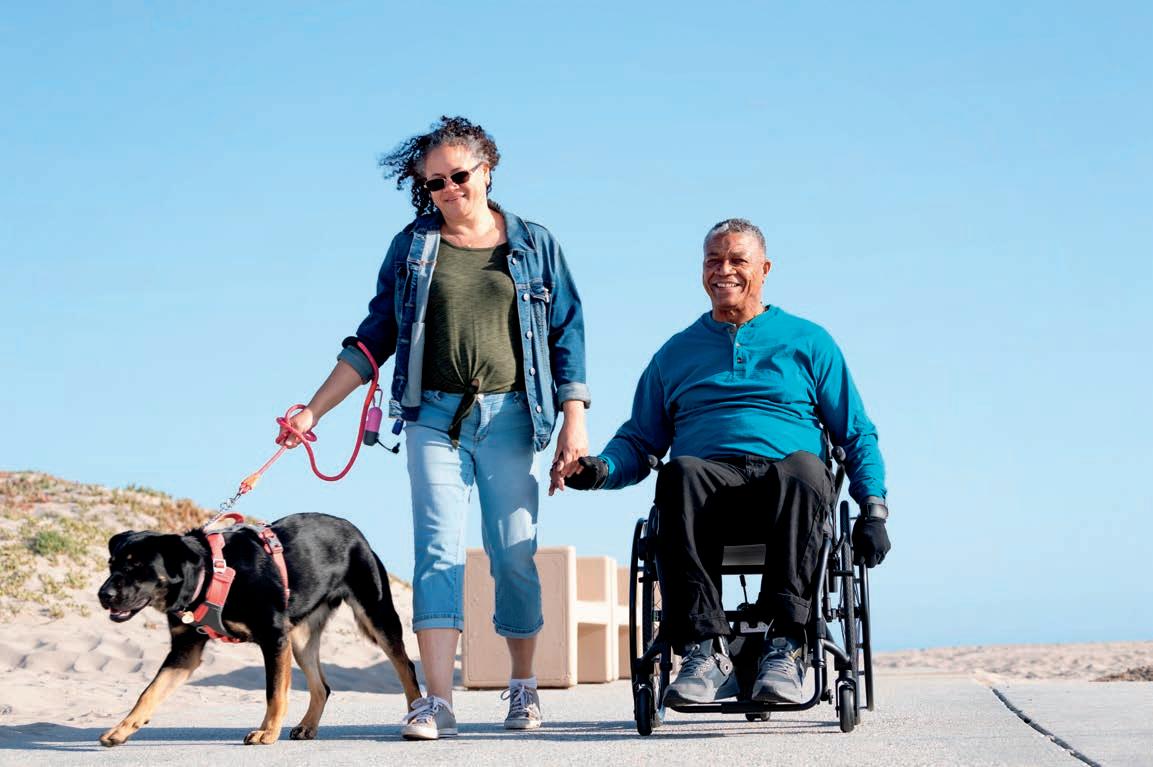Accessible Horizons 2025-26
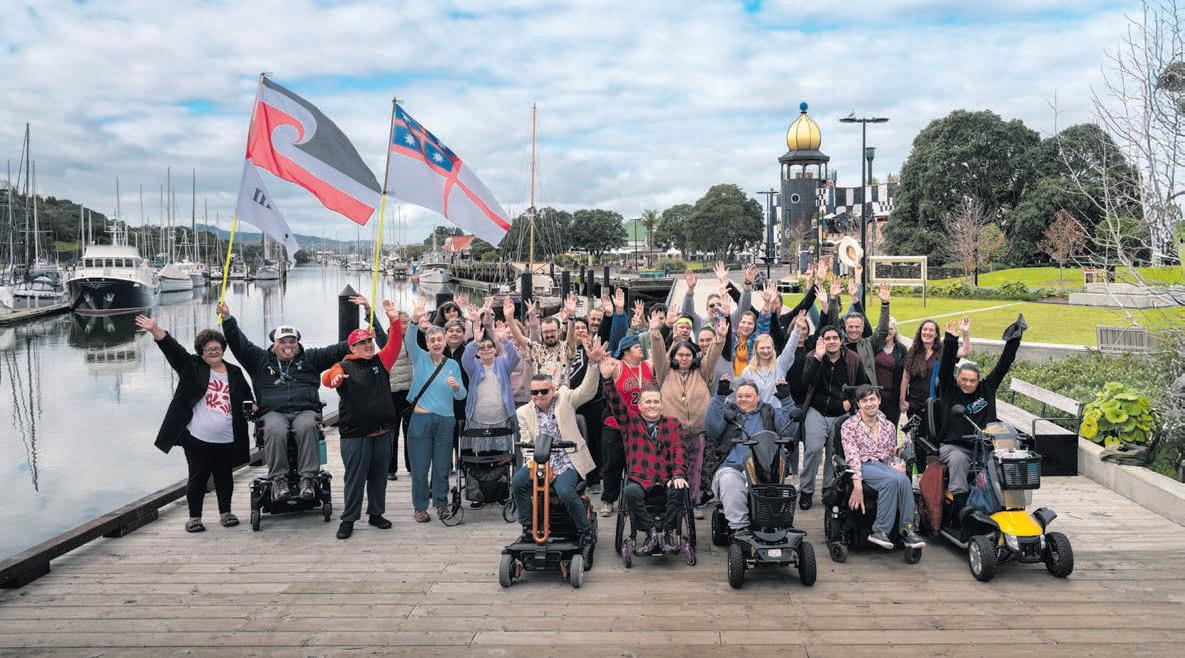















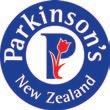

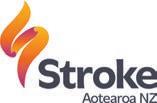
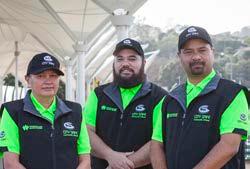





















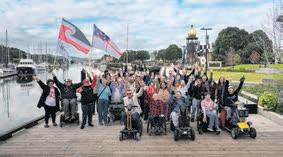










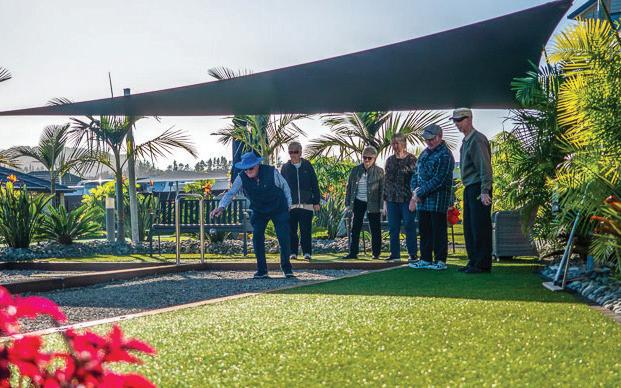
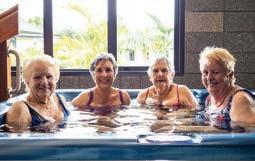
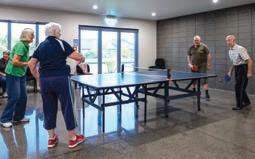
Linking people, families and carers living with a disability to information, advice and support in their community.
Visit www.tiaho.org.nz/support nd out more about what services these organisations provide in Northland.
In Northland, there are a range of organisations providing a Disability Information Advisory Service. These are known as the ‘Northland DIAS Collective’. Tiaho Trust supports these organisations by helping to improve the access to and utilization of their information and services in Northland for you and your families/whanau. Tiaho Trust is your rst point of call if you are unsure who to contact or have any questions, call us on: FREEPHONE: 0800 430 3406.
The DIAS Collective provides various services about a speci c disability, or disability in general, such as:
• Advice and information
• Advocacy
• Community education and awareness
• Support groups and networking
• Home visits
• Access to health professionals
• Referrals and assessments
• Equipment
• Seminars/workshops
• Resources
Together, Tiaho Trust and the DIAS Collective, empower the Northland community by promoting the disabled community as valued citizens who contribute, participate and add to the diversity of New Zealand society.

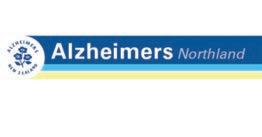



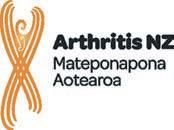








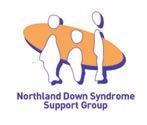



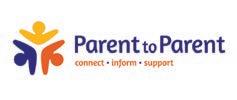


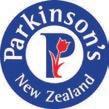
For DIAS contact details please refer overleaf
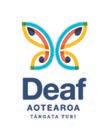


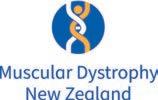

Your A - Z directory of disability support providers:
Alzheimers
www.tiaho.org.nz/alzheimers 112 Corks Road, PO Box 7027, Tikipunga, Whangarei 0144 0800 004 001
Whangarei (09) 438 7771 northland@alzheimers.org.nz www.alzheimersnorthland.org.nz
Arthritis New Zealand www.tiaho.org.nz/arthritis Unit B, 383 Khyber Pass Road, Newmarket, Auckland
Freephone: 0800 663 463 info@arthritis.org.nz www.arthritis.org.nz
Blind Low Vision NZ
www.tiaho.org.nz/blind_foundation
277 Kamo Road, Whangarei Phone: (09) 437 1199
Freephone: 0800 243 333 info@blindlowvision.org.nz www.blindlowvision.org.nz
Brain Injury Association www.tiaho.org.nz/brain_injury 98 Cairnfeild Road, Otangarei Whangarei Phone: (09) 459 5013 northland@brain-injury.org.nz www.brain-injury.org.nz
CCS Disability Action www.tiaho.org.nz/ccs 291 Kamo Road, Whangarei PO Box 8035, Kensington, Whangarei Phone: (09) 437 1899
Freephone: 0800 227 2255 Northland@ccsDisabilityAction.org.nz www.ccsDisabilityAction.org.nz
Deaf Aotearoa Northland www.tiaho.org.nz/deaf_aotearoa 1A Deveron Street
Phone: 0800 332 322 national@deaf.org.nz www.deaf.org.nz
Down Syndrome Support Group www.tiaho.org.nz/down_syndrome Kara Road, RD 9, Whangarei
Phone: (09) 434 6723
Freephone: 0800 693 724 national.coordinator@nzdsa.org.nz www.nzdsa.org.nz
Epilepsy Northland www.tiaho.org.nz/epilepsy Civic Arcade, Level 1
37-41 Bank Street, Whangarei PO Box 1074, Waikato Mail Centre, Hamilton 3240
Phone: (09) 438 5498
Freephone: 0800 374 537 northland@epilepsy.org.nz www.epilepsy.org.nz
Huntington’s www.tiaho.org.nz/huntingtons PO Box 16181, Sandringham Auckland 1351
Phone: (09) 815 9703
Freephone: 0800 432 825 huntingtonsakld@xtra.co.nz www.hdauckland.org
Motor Neurone Disease www.tiaho.org.nz/mnda Yarnton House, 14 Erson Ave, Royal Oak, Auckland PO Box 24036, Auckland 1345 Phone: 0800 444 474
Mobile: 021 230 3038 teamldr@mnda.org.nz www.mnda.org.nz
Multiple Sclerosis Northland www.tiaho.org.nz/ms Civic Arcade, Level 1
37-41 Bank Street, Whangarei Phone: (09) 438 3945
Mobile: 027 539 9883 nthlndms@xtra.co.nz www.msnz.org.nz
Muscular Dystrophy Assoc NZ www.tiaho.org.nz/muscular P.O.Box 300429, Albany 0800 636 787
Phone: 09 415 5682 Mob: 021 824 018 info@mda.org.nz www.mda.org.nz
NorthAble www.tiaho.org.nz/northable 40 John Street, Whangarei Freephone: 0508 637 200 northable@northable.org.nz www.northable.org.nz
Equipment Showroom: 73 John Street, Whangarei (09)430 3469 www.equipmentplus.org.nz
LYNKZ: 0508 637 200 42 John Street, Whangarei
Parent to Parent Northland www.tiaho.org.nz/parent2parent Mob: 027 808 3942
Freephone: 0508 236 236 northland@parent2parent.org.nz www.parent2parent.org.nz
Parkinson’s Northland www.tiaho.org.nz/parkinsons PO Box 11067
Manners St, Wellington 6142
Freephone: 0800 473 4636 info@parkinsons.org.nz www.parkinsons.org.nz
Stroke Foundation www.tiaho.org.nz/stroke
Whangarei & Districts Mid North/Far north Freephone: 0800STROKE (0800 78 76 53) help@stroke.org.nz www.stroke.org.nz

Each y ear Tiaho Trust produce this magazine ‘Getting Out There’ to highlight disability services that are available throughout Northland. Not only do we provide in-depth overviews of 16 disability support organisations, we also profile local individuals who use their services.
This year our magazine theme is “Accessible Horizons-Experience Inclusion”. We have chosen this theme because of our new Tai Tokerau Regional Accessible Strategy that was adopted by the WDC, FNDC and the NRC.
Tiaho Trust is excited by the prospect of an accessible Northland, not only because this would go a long way to make our region non-disabling, but by the potential economic benefits to the region. Having a region that is accessibility connected through both transport and infrastructure, would enable us to become a desirable destination for tourists who are seeking an accessable experience.



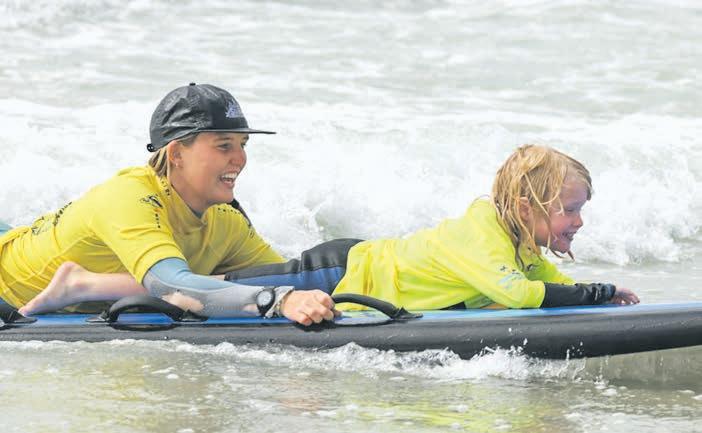
The disability support organizations in this magazine also provide services that are accessible and inclusive. They play a vital role in creating a more accessible and inclusive community by delivering services that actively reduce the barriers disabled people face. Rather than viewing disability as an individual deficit, these organisations embrace the social model of disability—recognising that people are disabled by inaccessible environments, systems, and attitudes.
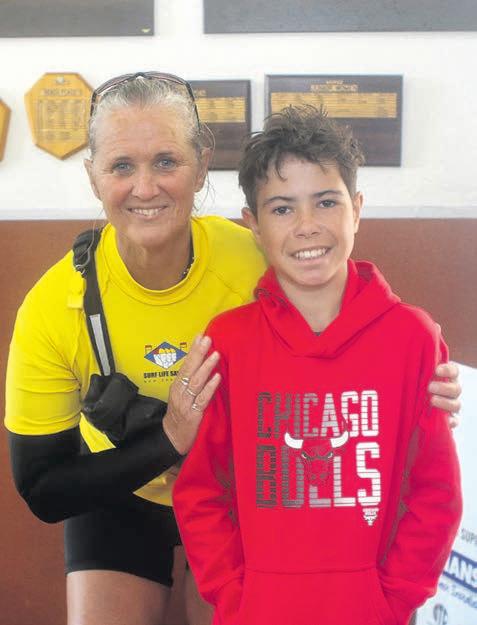
Whether it’s providing information in a way that’s easily accessed, coordinating support groups or ensuring they respect diverse communication styles, the focus is on inclusion and dignity.
Tiaho Trust offers free independent advocacy services to disabled people or their family members. If disabled people or their family members feel like they are being treated unfairly
because of their disability or they feel they aren’t getting the supports or services they are entitled to, they can contact Tiaho Trust.
Tiaho Trust also holds unique events for example our Ruakaka Surf Day which gives disabled people the experience and thrill of ‘catching a wave’ which is usually held in February. The day is supported by surfers, surf lifesavers and wide variety of the community. Everybody involved has a big smile on their face. The day is a great showcase of inclusiveness.
The word Tiaho translated into English means “Shining, radiating light”. We hope that you enjoy the light that this magazine shines on disabled people’s personal stories and journeys.
Tiaho Trust
Ground Floor
Tai Tokerau Maori Trust Board Building 3 - 5 Hunt Street / PO Box 374 Whangarei
Phone 09 430 3406
Freephone 0800 430 3406
Email info@tiaho.org.nz
Web www.tiaho.org.nz
Tiaho TrustDisability A Matter of Perception
E linor was born and bred in Whangarei. I first met Elinor over 25 years ago when I had my first job in the disability sector. It was at the Northland Disability Resource Centre now known as NorthAble. Elinor was in her mid-teens. She was working in the florist shop based there. She, like me, has Cerebral Palsy. I distinctly remember thinking at that time, how challenging it must be to be a female teenager with a visible disability like Cerebral Palsy. Gradually I became aware of a quiet self-contained mana she had about her, that gave off a reserved confidence. Years later Elinor still has that mana although her initial quietness has been replaced by an outspoken nature. She is outspoken about the condition of footpaths, about the pedestrian crossing in Raumanga.
The theme of this magazine is “Accessible Horizons - Experience Inclusiveness “ but after interviewing Dave Ward I knew this piece had to be about resilience. Best selling author Steve Maraboli says “Life doesn’t get easier or more forgiving, we get stronger and more resilient.” this quote is so applicable to Dave.
He has been a wheelchair user since 1987. He was 12 years old when he fell out of a tree which resulted in a spinal injury. He developed Scoliosis in his spine and as he grew older he had several operations involving multiple metal rods being installed into his back to correct his spine.
His career started in telecommunications while he was studying Marketing at the Auckland Institute of Technology (now known as AUT) after four years he was a Team Leader when he was head hunted for a job at IRD being the Operations Manager for the Wellington region. It was there he had his second accident.
He was on the 7th floor and went to the catch the lift to ground floor. He hit the down button. The lift doors opened as usual, he rolled in, the doors shut. But then when
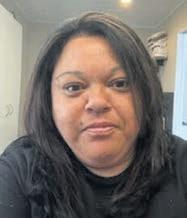
She is outspoken about overgrown trees that block access for people on mobility scooters and she is outspoken about the inaccessibility of the
Hundertwasser Art Centre with it’s undulating surrounding grounds.
Elinor has been on countless Trust Boards and Reference Groups over the years. She is currently on the Mahitahi HauoraCommunity Voice Reference Committee,



and she is on the Board of the Whangarei Accessible Housing Trust.
I asked her “What organisation or business or service do you think is the most accessible and inclusive in Tai Tokerau?” She was emphatic in her response that it was the City Fitness gym opposite the Porowini Marae where she does FAM – Functional Adaptive Movement on a weekly basis.
Elinor’s tireless advocacy of Disabled People’s rights to an accessible environment, an inclusive community and equitable health outcomes are reflected in the profile and mana she holds in our te Tokerau community.
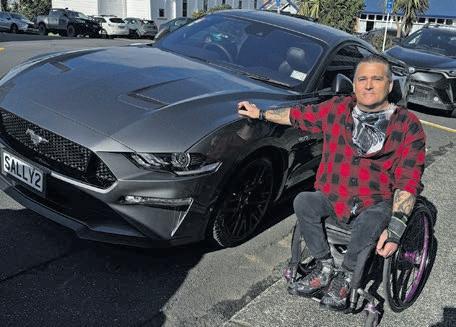
he pressed the ground floor button all hell broke lose. The lift plummeted down so fast that Dave’s head hit the ceiling. When he landed his wheelchair disintegrated, the wheels going at side angles. He said it probably saved his life carrying the brunt of the crash landing. His injuries were substantial, his back was broken in 28 places, all his rods that were put in his back previously, broke.
I asked him how he coped with going in lifts again? He said with a laugh “not good, I was petrified going into lifts and would hold onto the sides. I knew I had to get over my fear so I decided to jump out of a plane at 14000 feet with parachute.
That worked”.
Surely you didn’t have any more accidents after that? I asked. He replied “well after the
lift accident I had a 19 hour operation, ten days later I had to return to have gangrene surgically removed from back where a bed sore that had developed while in hospital due to not being turned regularly by the nurses. The doctors put me on antibiotics after my bed sore operation which I was supposed to be on for 15 days however they kept me on them for 11 years, which resulted in Chronic Kidney Disease”.
He had to go on dialysis for four and a half years for six hours a day. Then he had a kidney transplant from a donor in 2023. The new kidney while not a perfect match has worked well.
Over the years Dave has developed a liking for fast cars. He has had a Toyota Corolla turbo, Nissan Skyline GTT, and now his beloved ‘beast’ a Mustang GT that has an eye watering 600 horsepower.
Dave’s story is an astonishing list of slings and arrows of outrageous misfortune. One thing remains constant throughout, his resilience. Not the kind you read about in self-help books, but the gritty, stubborn, laugh in the face of adversity kind that turns each accident into just another chapter in an ongoing story of survival and success.
Alzheimers Northland supports people with all forms of dementia.
Advisers are based in communities throughout Northland to provide a long-term point of support.
General Manager Trudi Bridges said support is often needed for many years.
The organisation offers one-to-one support over the phone and in person, offering expertise, practical knowledge and support and education.
There are also support groups for carers, where they can share experiences and gain strength in the knowledge they are not alone.
Home carer seminars also help to give caregivers, who are often spouses, further understanding of dementia and tools for coping with everyday challenges.
Day programmes are popular, providing a safe, fun and stimulating environment for the person with dementia as well as giving the full-time carers a much-needed regular break. Once clients have been approved by the District Health Board, sessions are provided free and transport can be arranged.
Social activities include sing-alongs, music therapy, baking and cooking, apple peeling, soup making, science experiments and craft projects.
Activities often involve nostalgia as clients can often recall memories from long ago rather than short-term.
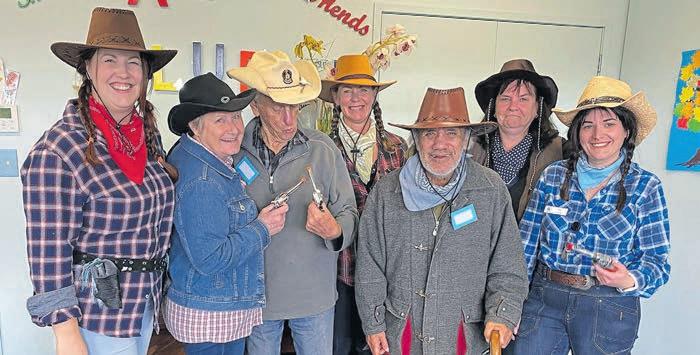
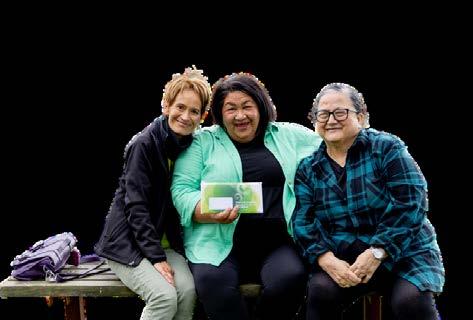

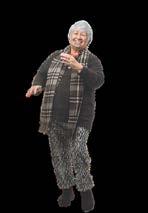

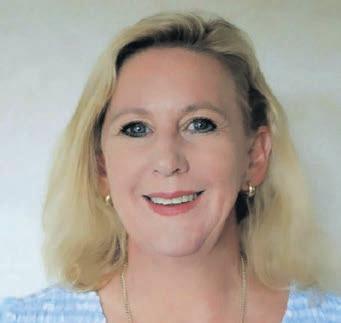
Staff also promote and encourage clients to maintain familiar skills, independence and selfworth by assisting with staff helping set tables for meals, folding washing, drying dishes, helping clean up after lunch, maintaining the vegetable garden, setting up activities and in some cases assisting staff with leading an activity.
Alzheimers Northland also offers education sessions for professional care providers, community groups and businesses that want to be more helpful to people with dementia.
Alzheimers Society Northland Inc Address Whangarei Office, 112 Corks Road, Tikipunga, Whangarei
Postal PO Box 7027, Tikipunga, Whangarei 0112
Phone 09 438 7771 or 0800 004 001 Email northland@alzheimers.org.nz Web www.alzheimersnorthland.org.nz

Free - Do it at home If you’re aged 60 to 74, you can have free bowel screening. A bowel screening test kit will be sent to your home every two years. This simple and easy test could save your life. When you get the test, please just do it! If not for yourself, do it for your whānau!
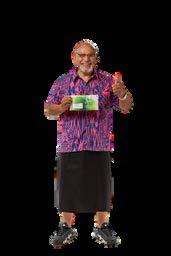
You can either drop your completed kit in your nearest post box or drop it off at any Awanui Lab Collection Centre in Te Tai Tokerau.
Located in Kerikeri | Kaikohe | Paihia | Te Kamo | Kensington | Onerahi | Rust Ave
To find out more go to timetobowelscreen.nz or email Bowel.Screening@northlanddhb.org.nz
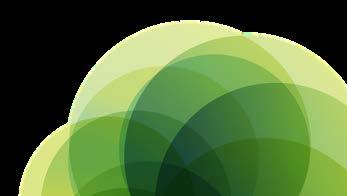
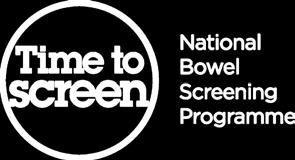
When Juanita met Irishman Bob Cranston, she thought she’d won the lotto. Nearly 40 years of travel, adventures and a dementia diagnosis later, she still does.
Bob was diagnosed last year after years of tests turned up inconclusive results. The pair met in 1986 and married in 1988, having previously been married. They had four kids between them around the same age and the blended family worked well.
Bob, 75, was a great footballer in his day and president of the local football club where they lived in West Auckland. Both golf enthusiasts, their shared hobby would take them on many travels. Bob worked in the super yacht industry pricing and procuring materials for building projects. Then in 2013 he had a heart attack requiring a quadruple bypass. Already a type 2 diabetic, he retired shortly after.
“Our retirement was earlier than expected, we decided to have some good years while we could, enjoying grandchildren, playing golf and traveling when we moved to Whangarei in 2017 to be closer to family” recalls Juanita.
The couple travelled extensively, and it was on a trip in their motorhome in 2018 that Juanita noticed Bob was having problems figuring mechanical things out.
“This was unusual as Bob was ‘Mr Fix-it’, but we made excuses and brushed it off as maybe tiredness, eventually mentioning it

to our doctor who started doing cognitive tests.” explained Juanita.
Because he’d have good and bad days, the tests were inconclusive over the next couple of years. “I’d be in there just willing him to remember five animals and sometimes he could and sometimes he couldn’t,” Juanita recalls.
“2022 was basically trying to understand what was going on, in the wake of Covid, trying to access specialists.
After a South Island trip in 2022, Bob yearned to go back to Ireland. However, their final trip in 2023 was disastrous as Bob became unwell when travelling. When they returned to New Zealand they pushed for more tests.
Finally, in 2024 they were given an official diagnosis of dementia with Lewy bodies

with hallucinations. Lewy body dementia is the second most common type of dementia after Alzheimer’s disease. Protein deposits called Lewy bodies develop in nerve cells in the brain. The protein deposits affect brain regions involved in thinking, memory and movement.
The grandparents to five are glad they moved to Whangārei in 2017 to be closer to family and, last year, joined the ‘Alz Club’ at the Alzheimer’s Society where Bob goes twice a week for five hours each time, which allows Juanita a break.
She regularly attends a carers’ liaison meeting/morning tea where they ‘have a good laugh and, in some cases, have a good cry’.
“One of the main things I’ve learnt is keeping your routine and keeping it positive, otherwise, it’s like a house of cards, it collapses.”
She says Bob has always been upfront about his situation and still has his sense of humour and insight.
“He’s such a sweet and gentle person. Whilst we don’t socialise as we used to as Bob can’t handle the noise, we still have a really good life making the most of what we’ve got.
This morning he had his Manchester United shirt on and he walked into the room and saw me wearing red and said, ‘We’re a team!’ Then he asked for a photo and he never does that!”
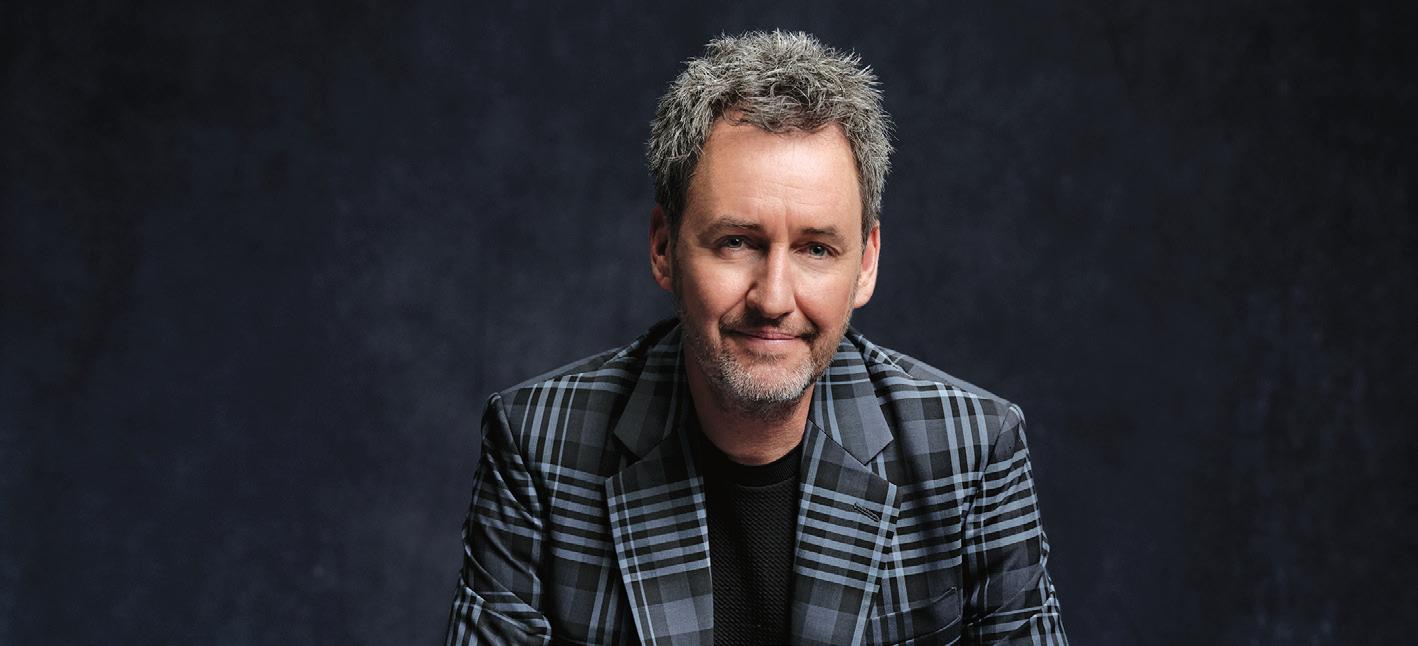
6AM – 9AM WEEKDAYS
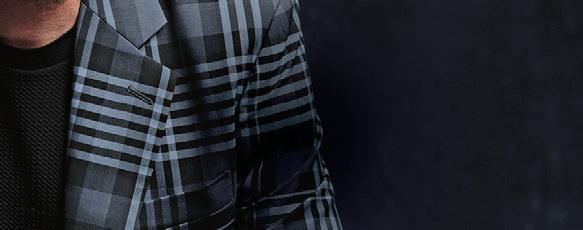
Arthritis NZ Mateponapona Aotearoa provides information and support for all people with arthritis, including gout arthritis. We also support people with fibromyalgia and lupus, as these conditions have some symptoms that affect the joints.
While there is no cure for arthritis, most people can live fulfilling and productive lives with early intervention, good treatment and self-management tools.
In August, we launched a new website, the result of working with people with arthritis to understand their arthritis experience so that we can offer a website that is fit for purpose and meets their needs at the right time during their arthritis journey. In addition to our osteoarthritis and rheumatoid arthritis websites launched in the last couple of years, we are piloting a new initiative revolving around exercise and movement. If these pilots are successful, they will be rolled out later on.
Nearly half of all people with arthritis are of working age and experience difficulties in trying to earn a living. They may have problems getting time off work to go to specialist appointments. Workers may have to use up all their sick leave or take
leave without pay when coping with a ‘flare’. Sometimes it’s the physical demands of the work itself (standing or lifting) that are difficult. Or it may be the negative perceptions of work colleagues that add to the stress.
Therefore, flexible hours, modified equipment, and empathetic colleagues and managers who take a positive lead can ensure that workplaces are suitable and welcoming for people with arthritis.
We can help people with arthritis in the workforce navigate these challenges by advocating for them at the government level and providing guidance and advice on how to talk to employers or access other support that might be available.
Anyone of any age who has arthritis can contact Arthritis Assist on 0800 663 463 or info@arthritis.org.nz during business hours. People with arthritis can request a free consultation and/or information pack tailored to their needs, covering understanding their arthritis, treatments, pain management, nutrition, mental health, employment issues, and access to other support services. This information pack can be posted to your door or emailed.

An active arthritis support group in Whangarei and water-based exercise classes are run independently at the Aquatic Centre.
We look a bit different this year.
We were gifted a tohu to incorporate as our logo. The tohu was designed by Manukorihi Winiata (Ngāti Raukawa, Te Ātiawa, Ngāti Awa, Ngāti Tūwharetoa) and captures a sense of lightness, freedom, movement and connection through a free-flowing abstract figure. This brand evolution is guided by the need to operate inclusively and be accessible to all people with arthritis.
www.arthritis.org.nz
our Facebook page
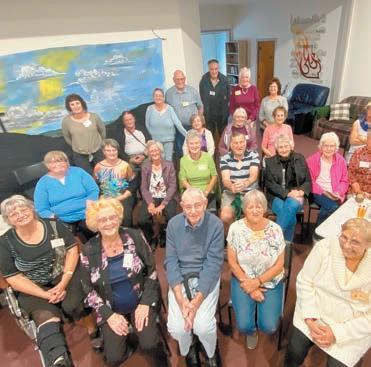

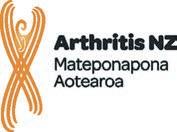
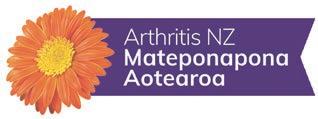
About 40 years ago I had a new grey horse and had signed up for a course of tuition. Sadly, I had a nasty fall at the Apony club and landed on my back on hard clay as hard as concrete. I broke my tail bone and as a result it was too painful to attend the course. It took some time before I felt I could ride again.
Over the next 40 years arthritis developed in the area and I was diagnosed with peripheral neuropathy, it was excruciating painful at first. Life became difficult and I was prescribed Panadol up to 8 tablets a day space throughout the day. They helped me to cope but never got rid of the pain completely. I found walking difficult and limiting in duration and my moods were affected.
I decided to adopted a greyhound. Not knowing much about the breed just liked the idea of saving a life, a female would
be preferrable as they are often smaller than the males. I knew I didn’t want a puppy and racing greyhounds stop racing about 4 years old so would still have some quality life.
I saw an advertisement in the North Shore Times about a Valentines meeting at a local café. There were to be 3 females and 3 males for adoption. All were in foster homes where they were socialised, getting ready to make a change in their lives and were ready for their forever homes.
The female I chose was named Ninja Spirit and was not four but seven years old. I hadn’t owned a dog since I was 21 had chosen instead cats and horses instead but the latter was not an option anymore. I decided Spirit didn’t seem to know her name and since she so lovely natured, fun, smart and happy I’ve renamed her Darling.
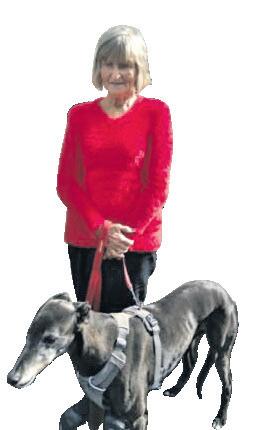

At The Palms Lifestyle Village, you’ll find a vibrant community where modern design meets customisable spaces. Here, hassle-free living is a given, allowing you to enjoy life to its fullest.
Our world-class Community Centre extends your home with a wealth of amenities:
• Residents’ Lounge
• Library
• Cinema
• Gym
• Spa
• Indoor Swimming Pool
• Activities Room
• Hair Salon
• Landscaped Gardens
• and more
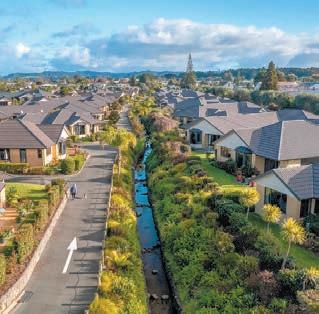
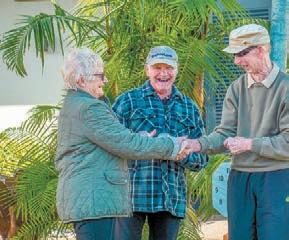
She has been helping me to walk much better so I’m lucky to have her as my companion. For 16 months we have walked up to 2 hours daily, I know she’s helped me to improve and walk more comfortably and with confidence, life has changed for me, from being withdrawn and in pain I am now more social and outgoing. Going to Arthritis Support Group has been fun as I can take my dog with me and everyone loves her.
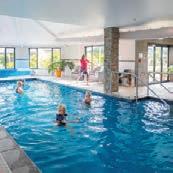
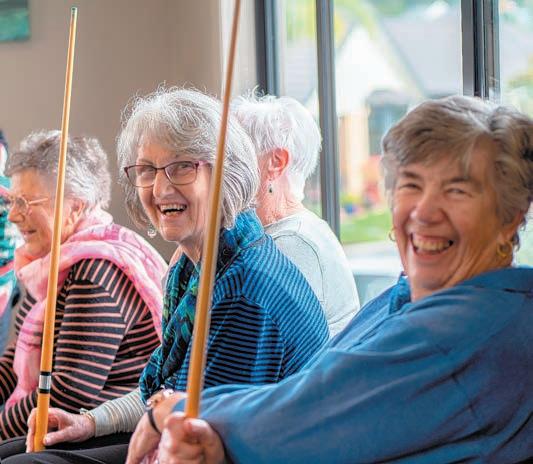



avinglivedalmost15yearswith a guidedog, Stevesaysthatguidedogs arehislife.
any people believe that sight loss is rare. But anyone can experience blindness, deafblindness, or low vision at any stage of life. It might happen to you or someone you love.
Stevedidn’talways feelthis waythough.He saysheinitially“rebelled” to theideaofgetting aguidedog,due to acceptinghisvisionloss.
When Stevewas 16yearsold,he was diagnosedwithglaucoma.Hesayshedidn’t paymuch attention to ituntilabout15years agowhenhisvision started toget worse.
As New Zealand’s population gets older, age-related eye conditions are on the rise. That’s why looking after your eye health and making sure support is available when it’s needed matters more than ever.
Agoodfriendofhissuggestedheget aguide dog.It took alot of convincing togetSteve to beopen to theidea. Now hesayshewouldbe “deadinwaterwithout aguidedog”.
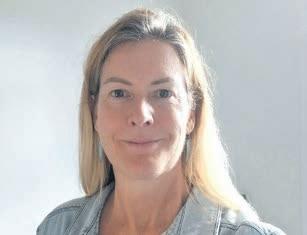
At Blind Low Vision NZ, we speak up for accessible, inclusive communities. Everyone should be able to move through public spaces, access information, and work towards the life they want without unnecessary barriers.
Steveandhis guidedogshavebeengoing to andfromhisplaceofworkatInland Revenue inWhangāreifor manyyears.Theytravel frequentlyonplanes too.
As an active person, Stevesayshe wantsto beout walking ever ydayuntilhe can’twalk anymore.Hisguidedog, Archie,makesthat possible forhim.
We work to raise awareness, drive change, and make sure people with sight loss have the same opportunities as everyone else.
BeforeArchie, Stevehadtwootherguide dogs, CasperandHadley. Heexplainsthateach guide dogserved adifferentpurposeinthat pointinhislife.
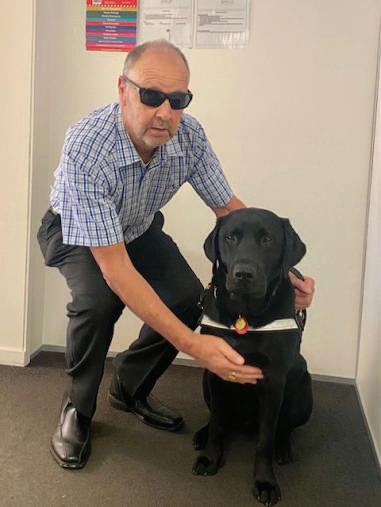
we’ll meet you where you are—at home or in one of our local offices.
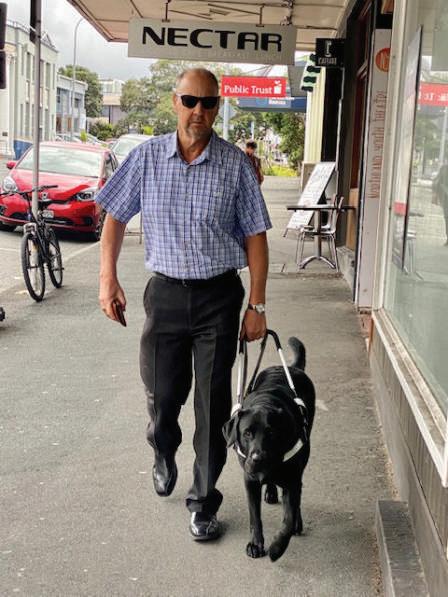
The four most common eye conditions that cause blindness or low vision are:
• Age-related macular degeneration.
• Diabetic retinopathy.
• Glaucoma.
• Cataracts.
Stevedescribeshowhefindsitdifficultin betweenguidedogsandhas to go back to using awhitecane.Thattransitionperiod inbetweencan be toughasheissoused to having aguide dog.Hesays nothing compares to having aguidedog.
“Idon’t want to bewithoutaguide dog ever” Steveexclaims.
We support people who have reduced vision, even with the best glasses or contact
Our services are free. We can also help connect you with other funding, including:
• The Total Mobility transport subsidy.
• OphthalmicEyeExaminations
NotonlydoesArchiehelp Steveget around safely.Archiealsogives Steveaconfidence boost. Having aguidedoghaschangedthe person Steveis.Having asenseofsecuritythat Archieprovides himwithallows himtomove throughspaceswith confidence.
• Job and study support funds.
• Discounted St John Medical alarms.
• Hearing aid funding.
StevesaysthatArchieis aver ysocialand playfulpup.
“Whenhehashisharnessonheiswellbehaved,withouthis harness he’sanutter”
• Some people experience both vision and hearing loss. If that’s you, or someone you know, our deafblind services are here professional.
Guide dogsare likefamily,Steve saystheir companionshipand their relationshipishard to explaininwords.
• CataractExtractionandlensimplant
• Pter ygiumExcisionplusconjunctivegraft
• Injection forwetagerelatedMacularDegeneration
• Glaucomatreatment • Cataractsurgery


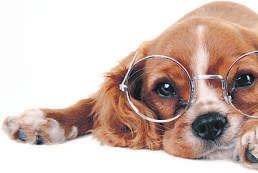


OFTHEEYE




“For aseriouslyvisuallyimpairedperson, aguidedogislikehaving acar.Puttingthe harnessonisliketurningthe ke yina car, it givesyou mobilityand you canessentially goto most places.The differencebetween having adogandnothaving adogisasbig astheocean.”
Got questions? Call us on 0800 24 33 33 or email info@blindlowvision.org.nz You will find us at: 277 Kamo Road, Whangārei, 0112. Phone 09 437 1194 Office hours Monday – Friday 9am to 2pm. Website blindlowvision.org.nz












Phone:09-9727022
12 Ke nsington Ave,Whangarei Email :p ceye s@xtra.co.nz
We bsi te :w ww.bit.do/EyeCent re



“There’s always someone I can talk to”
A story of small tools, big changes, and kind people along the way.
For a long time, Jan thought it was just age catching up with her.
Her vision had slowly changed–first it was trouble seeing in the dark, then trouble spotting the cursor on her computer screen. Reading became hard. Writing, too. Night driving was out of the question.
“I used to love crosswords and playing mahjong,” she says. “But I stopped. I just couldn’t see enough to carry on.”
It wasn’t until about four years ago that Jan reached out for help. She called Blind Low Vision NZ and spoke with Otto. That first phone call made all the difference.
“He was so kind,” she says. “He listened. And he helped me take the first step.”
Soon after, a staff member visited her at home. They showed her some of the small tools that would soon become part of her daily life–like a liquid level indicator for making a cup of tea, and bump-on stickers to help her find things in the kitchen. “Truly amazing,” she says. “Everyone has been lovely.”
She’s especially grateful for the little plastic signature guide–just the size of a credit card. It helps her sign her name in the right spot when she needs to. “So simple, but it really helps me feel more confident.”
The support she’s had along the way has made a real difference. Like the time she visited the Blind Low Vision NZ office and met Craig Jessop. He gave her a talking pedometer–fresh battery included. “He even brought it from home.
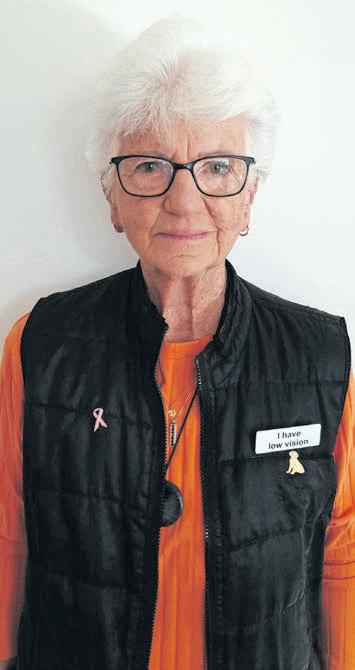
A profile photo of Jan wearing an orange long sleeve shirt with a black vest over top. She’s sporting three badges on her vest, a ‘I have low vision badge’, a golden guide dog, and a pink ribbon for breast cancer awareness.
I was blown away by that. And he wouldn’t take anything for it–just said he was happy to help.”
When Jan’s near a Blind Low Vision NZ office, she often pops in to say hello. “They’re so kind and welcoming. Sometimes I just stop in for a little chat.”
Kylie and Craig stand out to her the
most. “They always make you feel like you matter,” she says. “Nothing is too much trouble.”
Jan is a full-time carer for her husband, who lives with Alzheimer’s. She has recently started wearing a low vision badge when she’s out–especially helpful when catching the bus or visiting the supermarket or bank. “It lets people know I might need a little help. Most people are really considerate.”
At her retirement village, she still finds ways to stay connected. “On Fridays, we go for little day trips. If we’re out for lunch, my friends read the menu to me. It means a lot.”
She believes changes like highcontrast stair markings should be standard everywhere. “It would make life so much easier–and safer–for people like me.”
Recently, a visit to Specsavers confirmed she has cataracts. The hospital let her know that removing them won’t improve her vision much. Her central vision will slowly fade, but for now, her peripheral vision is holding on.
Even with those challenges, she feels supported. “The best thing is knowing I’m not alone. There’s always someone I can talk to.”
If you or someone you know could benefit from our services, call Blind Low Vision NZ on 0800 24 33 33 or use the Make an Enquiry form on the Blind Low Vision NZ website’s Contact Us page.
Website: blindlowvision.org.nz
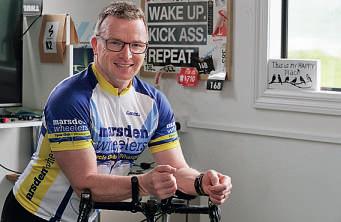
Wthey promote and run educational sessions with Schools, Government Departments, Hospital staff, private businesses and community groups around ‘What is Brain Injury?’ and’ How to understand living with the effects of Brain injury’.
Iwasinvolvedin aseriouscaraccidentin 2006.Followingtheaccident Ispent6 monthsintheBrainInjuryUnitatRoyal RehabinSydney.
Our office is open from 9.00am to 2.30pm, Mon to Fri.
eventandwewerethefirsteverinternational Para-crewtoenterthe event. Through rowing ImetsomeParacyclists,whowereexPara-rowers,and theyencouragedmetogive roadandtrack cycling atry.Ididand Ilovedit. Ihave competedincompetitivecyclingevents, longenduranceeventsandtrackevents andenjoythemall.Unlike rowing,cyclingis somethingthat Icandoonmyownandin agroup,andthere’salwaysthecoffeeand chatwithmatesattheendoftheride.
The Brain Injury Association Northland
Thebestthing aboutdiscovering rowing,cyclingand yogafollowingmyaccidentisthattheyare healthythingstobedoingtokeep my mind andbodyactive.
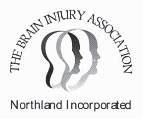

Support Group Meetings: We provide monthly support group meetings where we have speakers/workshops targeted at improving health and wellbeing of the people who attend. These are free meetings offering support, time to share, seek advice and information. A shared morning tea is provided for all in attendance. These are
NowI’mlivinginWhangarei,I’mdoinga lotofcyclingwiththe localclub“Marsden Wheelers”andpracticeyogaatTheLoft Studiowith Tim. Ihaven’tdone alotof rowingsinceshiftinghere,but IknowI canattheWhangareiRowingClubwhenI choosetodothat againsometime.
Ihave not beenableto retur ntoany formofemploymentduetomybraininjury buthavebeenabletoparticipatein rowing andcyclingandthishasgivenme asense ofpurposeandachievementaswellas enablingmetomeetmanynewpeopleand makenewfriends. Ialsodoyogawhichisa greatwaytobalanceouttheveryphysical sportingactivitiesthat Ido.
The Brain Injury Association Northland Incorporated (BIAN) staff travel throughout Northland. They are working alongside individuals who have brain injuries, their families/whanau and communities. These individuals, families/whanau and groups can access our services and receive advice, information, support and practical help for free. We produce a newsletter which we circulate relevant information, send out to our members and other agencies.
The Liaison team also attend various medical and specialist appointments to ensure that the rights of clients and their families are being adhered to.
Ifirststarted rowingin2010whenI wasstilllivinginSydney. Itwas reallyhard atthebeginningbuttheworstthingthat happenedwasthat Igotwetonthecouple ofoccasionswhen Ifelloutoftheboat. While rowingwasfun, Ialsoenjoyedthe competitivesideand rowedin alotof events.Rowinggavemetheopportunity in2013to rowintheinfamousHeadofthe CharlesRegattainBoston,aspartofan AustralianPara-rowingcrew.Wewonour
The role of the Liaison Team is to travel throughout Northland to support clients and their families. The Liaison team hold regular support groups each month in Whangarei, Dargaville, Kerikeri, Kaitaia. In addition,
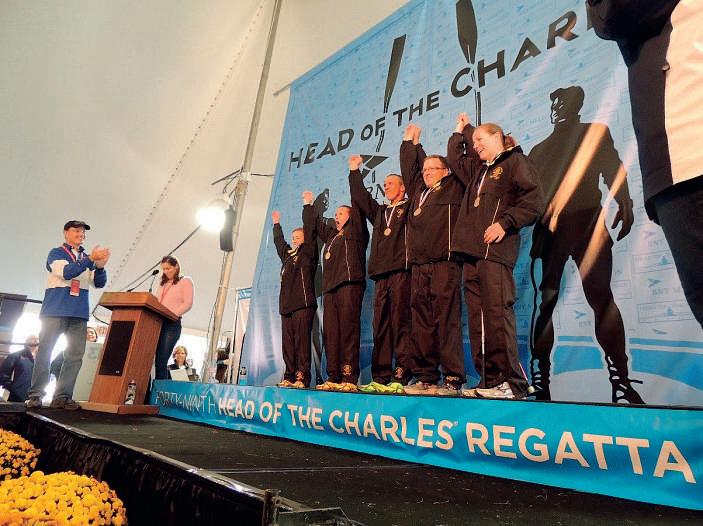



In December 2001 I was racing a Midget at speedway Western Springs.
In December 2001 I was racing a Midget at speedway Western Springs.
My Midget flipped and I was hit by another vehicle.
My Midget flipped and I was hit by another vehicle.
I sustained a serious Brain Injury and I spent some time in Cavit rehab.
I sustained a serious Brain Injury and I spent some time in Cavit rehab.
Pre Injury I owned my own business in West Auckland doing Furniture finishing and Super Yacht interiors.
Pre Injury I owned my own business in West Auckland doing Furniture finishing and Super Yacht interiors.
As I was no longer able to manage this, I sold the business and moved to Northland for a new lifestyle.
As I was no longer able to manage this, I sold the business and moved to Northland for a new lifestyle.
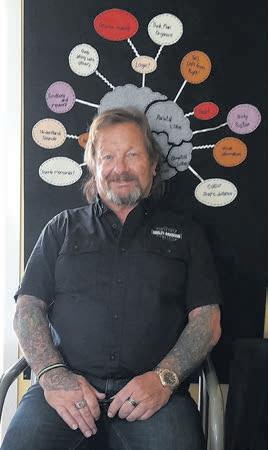
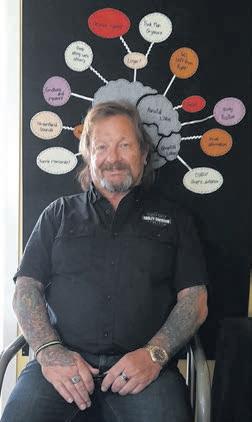
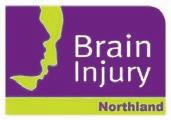

During my recovery I discovered writing, something I had never done before and didn’t think I was capable of.
During my recovery I discovered writing, something I had never done before and didn’t think I was capable of.
I love it, writing provides me with a way to express myself and get rid of the things that are ruminating in my brain.
I love it, writing provides me with a way to express myself and get rid of the things that are ruminating in my brain.
Vikki from the Brain Injury Association Northland motivated and encouraged me to write. The support group I attend has made me realise I am not on my own and we are all there for each other.
Vikki from the Brain Injury Association Northland motivated and encouraged me to write. The support group I attend has made me realise I am not on my own and we are all there for each other.
My life is very different, however, I’m alive and life is good.
My life is very different, however, I’m alive and life is good.
All of a sudden without any warning my whole life changed
All of a sudden without any warning my whole life changed
Shame, guilt, fear and anger are what I was feeling
All of a sudden without any warning my whole life changed
with the devil inside my head?
Forever telling me I should be dead
It was here, the black dog was in my world
what I was feeling
Because in my mind it was all my fault
Shame, guilt, fear and anger are what I was feeling
Because in my mind it was all my fault
It arrived so fast that I couldn’t see it
It was here, the black dog was in my world
It was here, the black dog was in my world
It arrived so fast that I couldn’t see it
Then the terrifying feeling of total despair
Why is my life such a mess?
Because in my mind it was all my fault
It’s so hard living with all this stress
Why is my life such a mess?
Why is my life such a mess?
I couldn’t understand it and I couldn’t control it
I had finely climbed the ladder to
I couldn’t understand it and I couldn’t control it
This is not how I wanted to be
This is not how I wanted to be
Fighting the dreams that were living inside my head
Fighting the dreams that were living inside my head
It arrived so fast that I couldn’t see it I couldn’t understand it and I couldn’t control it
This is not how I wanted to be
I was living with the devil in this deep black hole
I was living with the devil in this deep black hole
It’s so hard living with all this stress
Thinking there is only one way out of my nightmare
It’s so hard living with all this stress
Thinking there is only one way out
To finally be dancing with the angels
Thinking there is only one way out of my nightmare
To finally be dancing with the angels
Hoping he hasn’t already taken my soul
Hoping he hasn’t already taken my soul
Forever asking myself what did I do to deserve this?
Forever asking myself what did I do to deserve this?
Fighting the dreams that were living inside my head
Not being able to tell anyone because they would never understand
Not being able to tell anyone because they would never understand
I was living with the devil in this deep black hole
They see me laughing on the outside
They see me laughing on the outside
But can’t see my screaming on the inside
But can’t see my screaming on the inside
Hoping he hasn’t already taken my soul
The silent sound of fear is all that I could ever hear It became my never ending agonising nightmare
The silent sound of fear is all that I could ever hear It became my never ending agonising nightmare
Forever asking myself what did I do to deserve this?
What did I do to deserve this living with the devil inside my head?
What did I do to deserve this living with the devil inside my head?
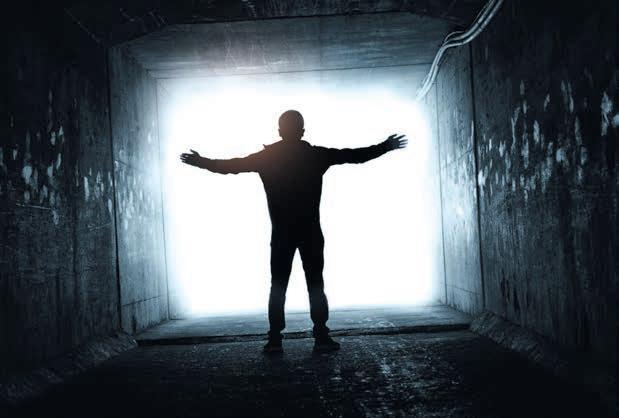
Forever telling me I should be dead
Forever telling me I should be dead
Not being able to tell anyone because they would never understand
They see me laughing on the outside
Then the terrifying feeling of total despair I had finely climbed the ladder to freedom out of this deep black hole
Then the terrifying feeling of total despair
Only to find it’s far too short
Then the breakthrough I had by looking through my eyes
Then the breakthrough I had by looking
To finally be dancing with the angels
when I wasn’t wearing the devils disguise I knew that decision wouldn’t be wise I was finally feeling like I don’t have to hide I was coming out the other side Safe, secure and happy
when I wasn’t wearing the devils disguise I knew that decision wouldn’t be wise I was finally feeling like I don’t have to hide I was coming out the other side Safe,
These are the feelings I never thought I would ever again find
These are the feelings I never thought
Then the breakthrough I had by looking through my eyes when I wasn’t wearing the devils disguise
I knew that decision wouldn’t be wise
and incredibly dangerous ride
After going on such a long and incredibly dangerous ride
So always remember never give up
So always remember never give up
I was finally feeling like I don’t have to hide
Have faith in yourself and in your future because, There is way out I know, I found it
I was coming out the other side
Have faith in yourself and in your future because, There is way out I know, I found it
Safe, secure and
freedom out of this deep black hole
Only to find it’s far too short
I had finely climbed the ladder to freedom out of this deep black hole
Only to find it’s far too short
But can’t see my screaming on the inside
Then hearing the devil roaring with laughter because, Once again, he’s got me caught
The silent sound of fear is all that I could ever hear It became my never ending agonising nightmare
What did I do to deserve this living
Then hearing the devil roaring with laughter because, Once again, he’s got me caught I was being held a prisoner inside my own head
Always thinking I’d be better off dead
Shame, guilt, fear and anger are
I was being held a prisoner inside my own head
Then hearing the devil roaring with laughter because, Once again, he’s got me caught I was being held a prisoner inside my own head
Always thinking I’d be better off dead
Always thinking I’d be better o dead

CCS Disability Action is a disability support and advocacy organisation.
CCS Disability Action Northland covers from Care Reinga to Wellsford. We support disabled people and whānau of all ages and all impairment types. We partner with disabled people, their families and whānau to enable them to have choice and control in their lives. Our vision is to see every disabled person and whānau hauā interwoven into the lives of their whānau and community.
Our services
Our services include:
• A range of respite options designed to provide a break for families and a positive and rewarding experience for your child.
• Community Support Coordinators who provide advocacy and support to remove any barriers to accessing the quality education of your choice.
• Connecting you with paid and sustainable employment by providing individualised support for potential employees and employers.
• Ongoing vocational support to assist disabled people to participate in training, work, or community activities.
• Providing support, information and options for young people preparing to leave school for further study or employment.
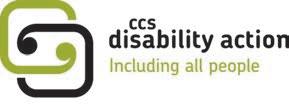
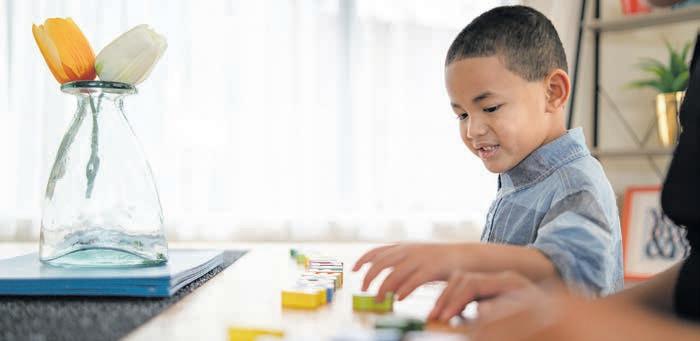
• Working in partnership with disabled people to support them to lead independent lives. We provide community-based support and work with people who would like to move from residential care into their own home.
• A Karanga Maha group who support people of Māori and Pacific Island descent to engage with their own cultural identities and develop leadership.
• Administering the mobility parking service in Northland, supporting people to park in accessible spaces in the community.
• We also offer a nationwide Library and Information service. This provides a wide range of resources on disability
CCS Disability Action supports disabled people and whānau of all ages and all impairment types.
Our friendly and helpful team work across Te Tai Tokerau and we offer a wide range of free services. Self-referrals are welcome.
Get in touch today
09 437 1899 or 0800 227 2255
Northland@ccsDisabilityAction.org.nz www.ccsDisabilityAction.org.nz
and the wider disability sector. Anyone can use the Information Service free of charge, no matter where they are in New Zealand.
We welcome-self referral and can support you to access the right pathway for the supports you need.
Get in touch
We would love to connect with you.
CCS Disability Action Northland
291 Kamo Road, Whangarei 09 437 1899 or 0800 227 2255
Northland@ccsDisabilityAction.org.nz www.ccsDisabilityAction.org.nz
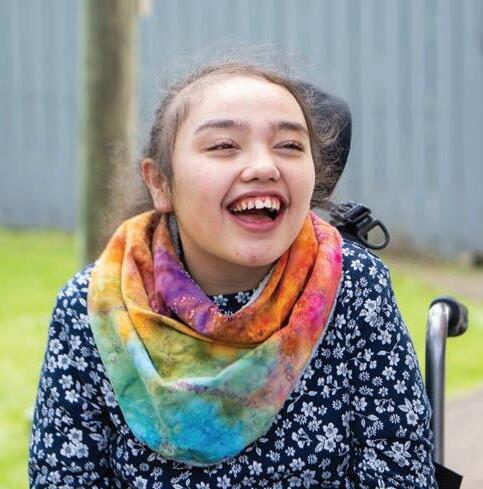
For 26-year-old Denise Cameron (Te Paatū, Te Rarawa, Te Aupōuri), life in rural Kaitaia is full of connection, creativity, and community—thanks to the support of her whānau, CCS Disability Action, and the GoodLife Projects.
Denise, who has a learning impairment and communicates through sounds and gestures, lives independently with her brother on their family property. While communication can be a barrier, her Community Support Coordinator, Kieta Kake, immediately saw Denise’s strengths. “I understood her straight away,” says Kieta. “She’s an awesome communicator.”
Denise chose Kieta herself, and the two quickly formed a strong bond. Together with Denise’s mum Hazel, they’ve worked to build meaningful connections in the community. While local options for disabled people are limited, Denise enjoys outings to the beach, shops, and especially her time at GoodLife Projects—a local trust offering vocational programmes for disabled people.
At GoodLife, Denise tends her own garden plot and participates in a new art studio, where she creates and sells her artwork. The space, founded by Pam and Doug Clarke in memory of their daughter, is a place of belonging. “Denise has good


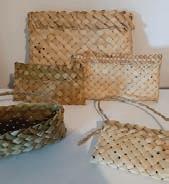
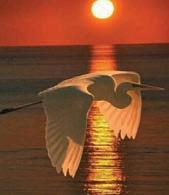


Kieta’s dual role means she also helps ensure Denise receives the funding and support she’s entitled to. But more than that, she’s a trusted companion. “It’s not work for me,” says Kieta. “It feels like my purpose.”
Looking ahead, the hope is for more opportunities like GoodLife Projects across


CCS Disability Action is working to grow its support network in the region, including expanding Karanga Maha—connecting disabled Māori with their culture and each other.
For now, Denise continues to thrive in a place where she’s seen, heard, and valued.
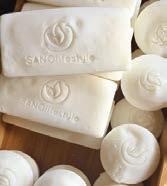
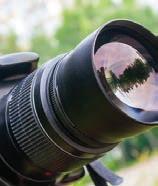

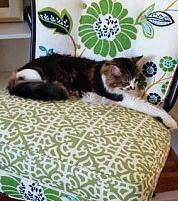

Deaf Aotearoa is the Disabled Persons’ Organisation representing the voice of Deaf people in Aotearoa New Zealand.
Deaf Aotearoa advocates for the Deaf community, engaging with government departments and other agencies to improve access for Deaf people. We are the national service provider for Deaf people and their whānau. We are the New Zealandrepresentative member organisation of the World Federation of the Deaf (WFD).
Deaf Aotearoa’s services are available from 14 offices nationwide, including Northland. These services include:
Our First Signs service supports families with Deaf and hard of hearing children aged 0-5 years to develop NZSL and an understanding of being Deaf in Aotearoa, in the comfort of their home with whanau and community. Our Youth service supports families and young people as they develop their Deaf identity.
We support Deaf people aged 16yrs (not in full-time school) and over, in a variety of ways: pre and post-employment, Needs Assessments, 1:1 support, advocacy and representation, service co-ordination, access to assistive equipment and Adult

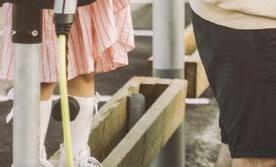
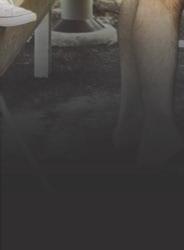




Community Education (ACE). We also provide a Disability Information Advisory Service (DIAS) to the Deaf community and public with Deaf-related enquiries and support.
Our nationwide interpreter booking agency.
Translation
We work with government departments and other organisations to translate their documents, resources and videos into NZSL.
We support organisations to develop their understanding of the Deaf community and NZSL. We aim to make Aotearoa a
more accessible and inclusive place to be.

Every May, Deaf Aotearoa organises NEW ZEALAND SIGN LANGUAGE WEEK – a celebration of one of the country’s official languages. NZSL Week is a chance for the Deaf community to stand proud as Deaf, and to celebrate their language and culture. It also works to break down barriers, fears and misconceptions. NZSL Week lets Deaf New Zealanders put their hands up and be seen! Our vision for NZSL Week is to increase awareness and understanding of NZSL and the Deaf community, and to empower and strengthen the Deaf community.
Deaf Aotearoa is community focussed and surpluses go back to the Deaf community by way of sponsorships and donations.
Deaf Aotearoa
Freetext - 8223
Address 1A Deveron Street, Whangarei
Open Monday to Thursday 9am-4pm and Friday by appointment
For other methods of contact go to our Contact Us page on our website: Contact Us – Deaf Aotearoa
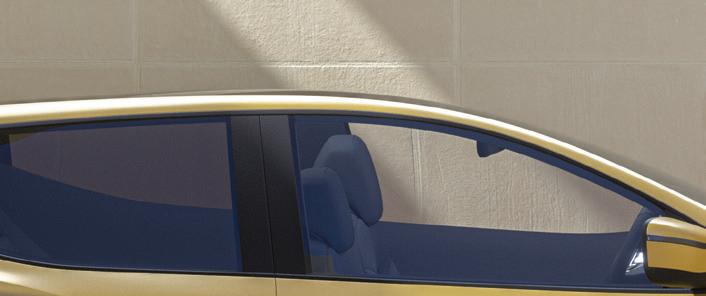
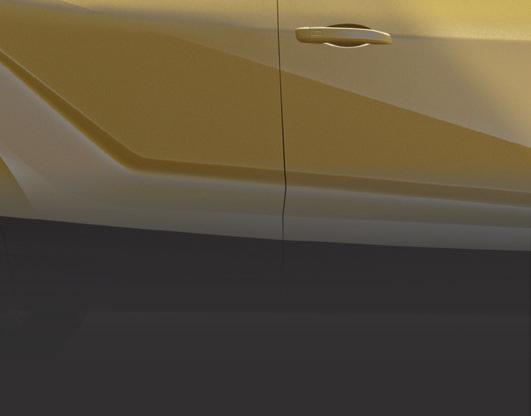












Do you know how many NZ Sign Language users are there in Northland? You would be surprised to find out who is using it. NZ Sign Language is not just for Deaf or hard of hearing. We do have hearing people using it! They might have learnt it in their job or know someone Deaf but some will have learnt it because it’s a beautiful language!
In Northland, a range of hearing people use NZ Sign Language (NZSL) and they codeswitched from English/te reo to NZSL when they encounter deaf. Waitresses, medical staff, bus drivers, baristas, community service staff and many different people in the community can sign. This might not be commonly seen, but they are there.
We have a NZSL Club for people to learn sign language or to engage with others using NZSL. Again, I don’t mean only deaf people, we have hearing people who enjoy using NZSL with other hearing people. This is where most hearing people in our community have learnt NZSL. Check out Whangarei NZSL Club website if you want to join the movement of learning NZSL.
We have a Deaf club, Te Tai Tokerau Deaf Society Club, we get together every month
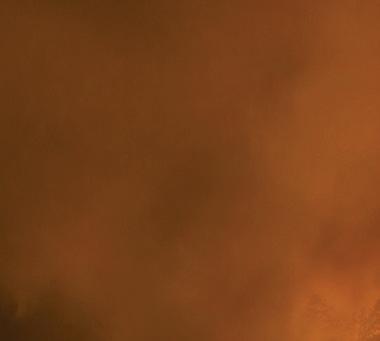


and socialise. I have been in the club for around 30 years, so I know many people around Northland and other regions of NZ. Our deaf club also has a facebook if you want to come and meet me or to learn NZ Sign Language while socialising.
My name is Vicki Carter. I am a NZ Sign Language user and you can view my name being fingerspelled on this page. My favourite activities are going to the cinema, watching a show, socialising with my friends and babysitting my beautiful grandchildren.
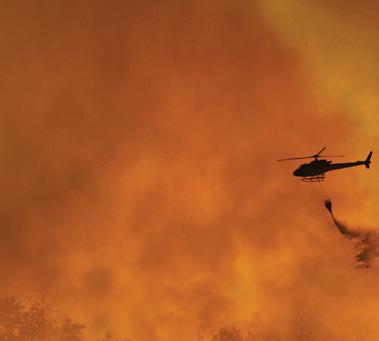


ONEONESIX puts on shows that have NZSL access, and they seek funding annually for this. They also worked hard in making some of our Whangarei Fringe Festival events to be visual and NZSL accessible for the Deaf community. I enjoy attending their events that they have put on and promoted. By making the accessibility clearer, they also encouraged a wider range of disability people to attend and enjoy as well.
Whangarei Event Cinema provides movies with open captions weekly and they also provide foreign movies with English captions so I can attend the cinema with my friends and grandchildren to enjoy movies with popcorn.
I have seen a gradual improvement to NZSL access in our community over the years and it is very important that we, Deaf community, are inclusion in any services and community entertainment that Northland has. I hope you will think about learning NZ Sign Language to make this happen.
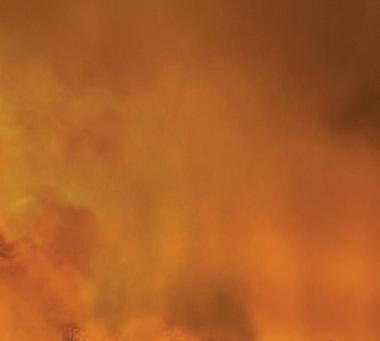

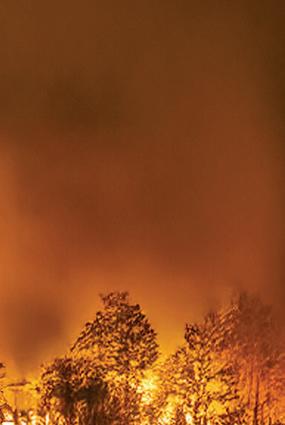

AFdiagnosis of Down syndrome whether during pregnancy or birth can be a shock.
We are available to chat if you have had a recent diagnosis. We are non-judgmental, supportive listeners.
iveyearsago, GayeChaplinknewlittle aboutAlzheimer ’s Disease so shenever wouldhavepredictedhercurrent role asan Alzheimer ’s communityadvisor.But aftertravellingthetumultuousjourneywith herbelovedmother,she wanted to puther newfoundknowledgetowardhelping othersso underwent aradical careerchange.
“Ihelpedmumwhenshehad Alzheimer ’s andshe came to livewith us,” saysGaye. “We had ahardjourneywithit,aswedidn’tknow anythingaboutituntilweweregoingthrough itwith afamilymember.
We can help parents begin to understand the implications that having a child with Down syndrome may have for their family and to connect them with other families if they wish.
“Whenmum passed, Ithoughtitwouldbe really good to usetheknowledgeIhad gained to helpsomeoneelsewiththeirjourneythat they’re about togo through.”
Coordinator, Kathy Sadgrove, says, Down syndrome can sometimes come with extra challenges that parents might not be expecting. Around 40% of babies with Down syndrome are born with some form of heart condition that may range from mild to severe.’ Thankfully, things have changed considerably for the better since her son had his heart operation 30 years ago.
Gaye’s mumUnaMoirleadanextremely activelife.Themotherof four oftenhad fosterchildrenandGayeremembersthere oncebeing15living at their house.So hen she startedshowingsigns ofslowing down, Gayethoughtshe deserved thebreak.
The support group uses a range of different media to keep in touch.
Its Northland Down Syndrome Support Group Facebook page is a good way for parents to connect with each other, as well as being valuable resource with up to date information on Down syndrome.
“Mumhadareallybusylife andshe wasalwaysgiving to otherpeople.Onceshe got intohersixtiesand started notwanting to dothings,like givingupdealingwith banking, insurancecompaniesand anything to dowiththephone,I thought,right,I’m going to stepup andhelp,anddidn’tthinkmuchofit.
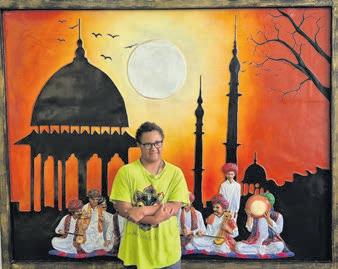
UnaMoirandGayeChaplin
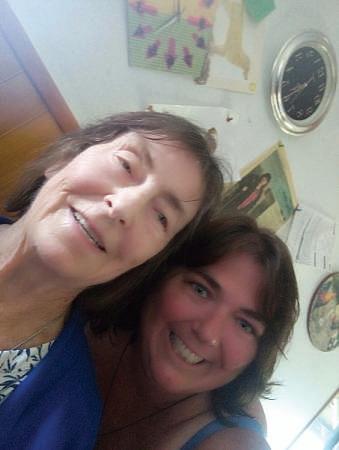
adults meets fortnightly for social outings such as Ten Pin bowling, dinners, arts and crafts and games nights, Ruakatari msic sessions.

A monthly gym session held at the Whangarei Academy of Gymnastics are also popular for all family members of people with Down syndrome. The children and their siblings enjoy the activities and the parents enjoy the social networking opportunities and sharing successes.
Thingsbecame moreapparentwhen Unawouldget halfway througha sentence andforget what she wastalkingaboutso ok he he doctorwhereshe was 72,withAlzheimer ’s entually Una went to livewith Gayeandherhusbandand sons at uralhome,ina purposebuilthouseontheirland. wasstillworking then,” saysGaye,whose roleshave iouslyinvolvedadmin, unting and payroll.
“However,itbecame really apparentthattherewasno way ork. Igave upmyjoband becamefulltime carerfor mum.”
NDSSGT have a wide range of educational books, reading programmes and numeracy resources to

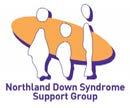
Gayedescribesthe followingthreeyearsas an“isolatingjourney”.
loan for parents, schools, ECE centres.
Our Northland families celebrate World Down Syndrome Day (21st March).
This year we held a get-together dressing in orange and purple with shared food, fun activities at the Whangarei Cruising Club.
“Everyone’s journeyisdifferentbutit’savery isolatingjourneytogoonfor acarer.Some daysyoudon’t even getto have ashoweror doanything foryourselfasitisjustfull-on.But, evenif IhadknownwhatIwas about togo throughfromthe start,Istillwouldhavedoneit asmymum wasamazingandit wasaprivilege to lookafterherinherlateryears.Andwedid havefun at times –we’dhavelots oflaughs withher.”
We also have our annual Christmas gettogether in December. This is a time for our community to come together have fun, meet new families, enjoy the activities and eat the most amazing burgers provided by the Rapid Relief Team.
UnalivedwithGayeandher family forthree years,spendingherfinalmonthsinfulltime care,beforeshe passedawayin Februar ythis year,aged76.
Beyond supporting individuals and families, NDSSGT advocates for positive attitudes in the wider community, to promote the rights and inclusion of people with Down syndrome and to raise public awareness.
Gaye,meanwhile,hadbegunasa communityadvisorwithAlzheimer ’s Northland to help other familiesonsimilarjourneys
“I’dbeenthroughthepracticalsideso can empathisewiththem,”saysGaye,addingthat shehasalso partakeninmanytraining courses.
Contact details/General enquiries
Kathryn Sadgrove, NDSSGT Coordinator
“A lotofmyclientsare husbandandwifeand Iknowit’sdifficult forthemasthey’rewatching theirlifepartner fadeaway.Iknowit wasmy mumbutshe wasthewoman Irespectedthe mostinlifeand Iwatchedmymum fadeaway forfiveyears.Wewerereallyclose,I’ve got somany goodmemoriesofmumso Itry and focusonthose.
Phone 0210 814 3744
Email ksadgrove@xtra.co.nz
Schools enquiries 021 0822 4584 (Jo Morrison)
Email NorthlandDSSG@gmail.com
Web www.NorthlandDSSG.org
Facebook Northland Down Syndrome Support Group
“Ilovemyjoband Ilikehelpingpeople –I’m probably abitlikemumlikethat–soIcansee myselfbeingherefor awhile.It’sprobablymy foreverjobnow.
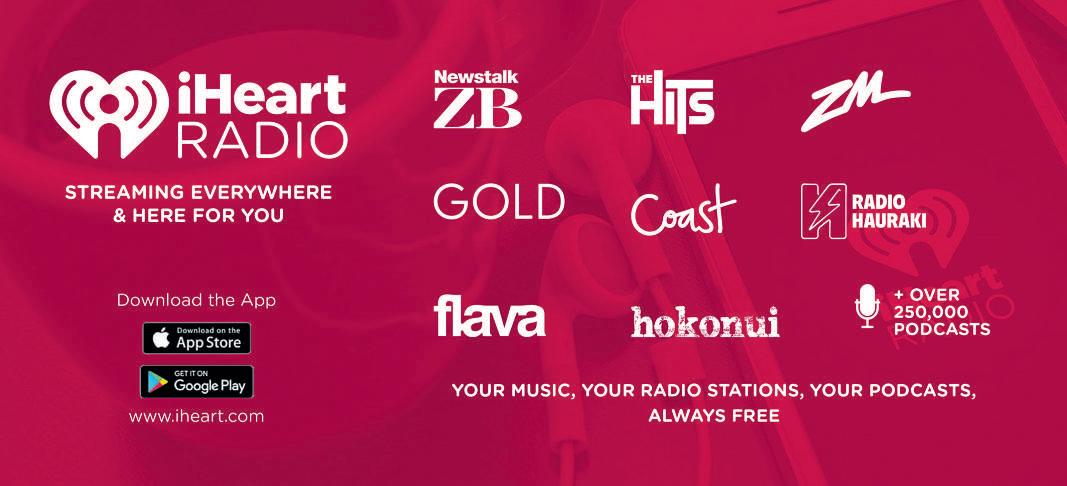
When we gotm

MOn the outskirts of Whangārei, in beautiful Northland, lives Arlo Lyford, a bright, adventurous young boy who loves exploring the world around him. He shares his home with his loving whānau: mum Kerry, dad Brent, and older brother Mason. Arlo also has Down syndrome—a part of who he is, but just one part of a vibrant life shaped by inclusion, support, and community.
otorNeuroneDisease(MND)is commonly regardedasoneofthe mostchallengingdiseases to livewith. Itis adegenerativedisease,wherethemotor neurones,thenerve cellsthatcontrolvoluntary movementofthemuscles start towasteaway. Whilethisis atragicdisease,Judy,wholives withMND, stillseesthebeautyandpositivity inherlife.
Thisisher stor y.
What makes Arlo’s life more accessible and inclusive is the strong network around
Judy wasdiagnosedwithMNDinJanuary
shenoticed.Judylovesbikeridingonher E-Bike,butnowsheisunable to get herlegs overthebiketogoriding,andthedisease hasprogressedsoquicklysheisnowina wheelchair.She cannotpickthingsup,oropen bottles,andhastroublewithherspeech.Judy saysher conditionhasdeterioratedquickly sinceJanuar y.
Judynow reliesonherhusbandof27years, Bill forsupportandhelpwith basic tasks.Bill hashadmedicaldifficultiesofhisown,buthe
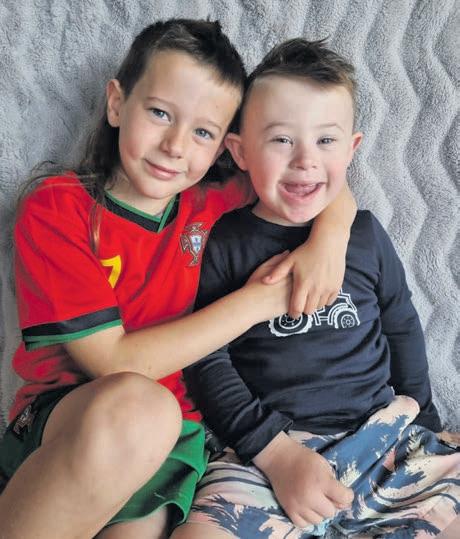



JudyandBillMcCoid

of“world-class”MarsdenPointare someofthemanyambitions gionaldealapplication.underpinningNorthland’sreThefinerdetailsofthe“ambitious”applicationsubmittedtotheGovernmentaspart ofitsinitiativetoboostlocaleconomieswere sharedyesterday.Northland’sproposalisexpectedtohike businessandhouseholdincomeandreduce unemploymentintheregion. Theapplicationexplainedhow prioritisingfutureenergy,marinemanufacturing,primaryindustriesandtourismcould boostNorthland’sGDPby$977millionand exportsby$877m,aswellascreatemore than6000jobs.JointRegionalEconomicDevelopment CommitteechairmanandFarNorthcouncillorJohnVujcichbelievedNorthland’s planwasambitiousbutachievable. “SmarterinvestmentiscrucialforNorthland’sgrowth,andcollaborationwithcentral governmentisessentialtoprovideahealthy
Judysayssheis fortunateto havelots of help,hersister-in-lawand cousinvisitonce aweek,andsheonlyhas to askifshe wants anythingdone forher.Butshedoesnotwant to encroachonpeople’s lives,yetsheknowsthey arethereifsheneedsthem.
development. For Arlo, it’s more than fun—these sessions help him strengthen speech and communication, build fine and gross motor skills, boost confidence, and support social interaction. Music has become a joyful tool in his journey, offering a unique way for him to express himself and connect with others.
BeforeherMNDdiagnosis,Judyloved volunteering at herlocalHospiceShopwhich shedid for11.5years.Judywould cycleinto Whangareifromherhome to workthere. She startedout re-arrangingtheshopand sortingtheinwards goodsandwhenshe was unable to dothat, shemoved to Antiquesand Collectables,whichsheloved.Althoughshe missesherworkandfriendsthere,sheloves to catchupwiththemwhenshe can,describing themas agreat bunchofpeople.
Judywould tellanyonewhohas recently received adiagnosisofMNDthattheymustbe positive.MNDis adeathsentence,butthereis nopointin gettingupsetaboutsomethingyou cannotfix.
Every year on March 21st, Arlo and his family celebrate World Down Syndrome Day—a global recognition of inclusion and diversity. Arlo is surrounded by love and encouragement from his personal cheer squad, Team Arlo, who mark the day with pride. It’s a joyful reminder of how far inclusive efforts have come and a celebration of the possibilities still ahead.
Arlo’s story is just one, but it powerfully illustrates what can happen when tamariki are welcomed, supported, and celebrated for exactly who they are. With inclusive education, meaningful therapy, strong family ties, and a connected community, Arlo’s life is rich with opportunity—and he, in turn, enriches the lives of those around him.
Judyhas afulllifeasabusyGranandwife. Describedas apositiveand can-dopersonwho likes to help others,Judyis anotableexample ofsomeonewhoalwaysseesthelightandlove intheworld,nomatterthesituation.
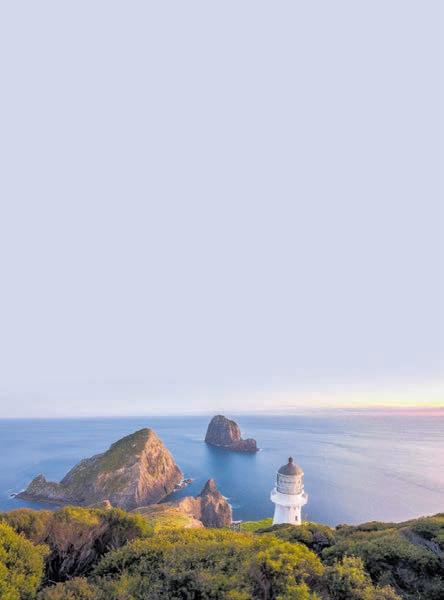
economic,socialandphysicalenvironment wecanpassontofuturegenerations.” Vujcichsaidthedevelopmentopportunitiesidentifiedwithintheproposalcould doubleNorthland’seconomy,whichwas saidtohaveweakened.Inflation,highinterestrates,lower commodityprices,fewerinternationalvisitors,additionalCovid19lockdowns,stormsandthe closureofMarsdenPoint— NewZealand’sonlyoilrefinery—wereallsaidinthe proposaltohavehurtthe economy. Tomoveforward,theregionneededtoprioritisethe foursectorsidentifiedasthey wereimportantcontributorsto theeconomy. Theprimaryandassociatedmanufacturingsectoraccountedfor13%ofNorthland’s GDPand77%ofexports.Butthesectorneededtocontinueits effectiveproductionandexplorationofnew anddifferentproducts,suchasthesuccessfulpeanuttrial.
Northland’saquaculturesectorwas entrepreneurialinthewayitexploitedthe region’snaturaladvantages,accordingtothe proposal. ExamplesgivenwereNewZealand’s musselfisheries’dependenceonNorthland spatandtheglobalexpansionof Niwa’sRuaka¯ka¯kingfishfarm. Tourismwaslabelledanimportant“exportearner”that providedjobopportunities withintheregion.Visitorspendinghad shownsignsofgrowthpost-
Who we are:
Epilepsy New Zealand is a registered charity, we work to promote the welfare and interests of people living with Epilepsy and to increase public awareness and to provide free, confidential support as there is around 50.000 people that have Epilepsy and the numbers are growing.
Who we work with:
• Individuals
• Family/Whanau
• Community Groups
• Pre-schools, Schools, and educators.
• Workplaces.
• Health Agencies.
• Other professionals.
We train and educate health professionals, schools, community workers and workplaces and help them put plans in places such as Seizure Management plans, Risks, Safety, Triggers.
Community awareness and epilepsy seminars and talks.
What we can provide:
• Home visits
• Face to face appointments with clients and their whanau.
• Seizure Management advice and plans to be put in place.
• Information on managing anti – seizure medication.
• Total Mobility assessment.
• Support to appointments.
• Advice and referrals for our services.
• Anyone can contact us directly.
Online Support Group
On the 1st Monday of each month we host an online support group via Teams. If you would like to be part of this support group or just want to check it out, contact Reokore via email below and she will email you the link.

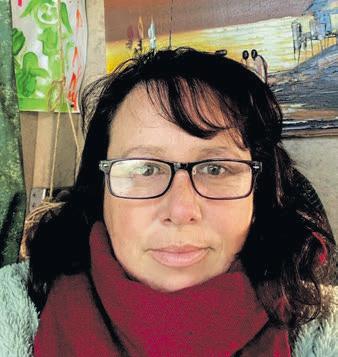
Contact Details Northland Educator Reokore Johnson (Kore) is only a phone call away on 027 291 6869
Freephone 0800 37 45 37
Hours 8.30am – 4.30pm MondayFriday
Email northland@epilepsy.org.nz Web www.epilepsy.org.nz


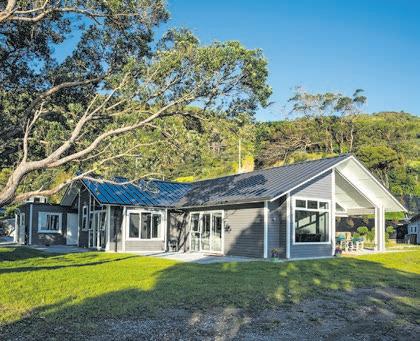
When Kobie Schutt had his first seizure, aged ten, while staying at his grandparents’ it was thought he’d had a stroke.
There’d been nothing out of the ordinary leading up to the event, which took place last year, while having a holiday at his grandparents for the weekend, and was completely out of the blue, says mum Tracee.
“They didn’t quite know what was happening. He had just woken up and could taste a metal taste in his mouth. Then the left-hand side of his face started drooping and he began slurring his words.”
At first Tracee thought he must have Covid because Kobie could taste metal the multiple times he’d been struck with the virus.
“When he gets sick he gets sick and does slur his words so I drove up from Auckland but then I saw his face was drooping so I took him to White Cross.”
White Cross staff believed Kobie was having a stroke and he was sent to Whangārei Hospital where it was confirmed he was having a seizure. That first seizure lasted four hours and the paediatrician diagnosed it as SeLECTS epilepsy which is characterised by focal seizures that usually start in the face and mouth and are more likely to happen during sleep.
But despite a 3,000 Guardian Solution sleep mat which detects nocturnal seizures, Kobie’s have occurred during the day. They are triggered by noise, crowds, excitement and flashing lights and involve drooping of his eye and lips, followed by fatigue.
“He has only gone into spasm once,” says Tracee. “Even now, some days I don’t recognise that he’s having one.”
Kobe often doesn’t remember having a seizure and loses some memory of events leading up to it.
He was put on medication but Tracee

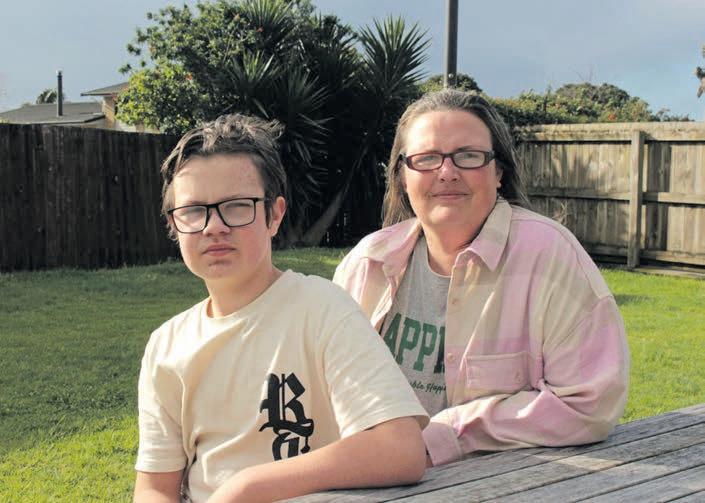
believes it caused ‘cluster seizures’ of up to four a day and she was advised to take him to hospital from where they reside at Ruakākā with each seizure. Things escalated to Kobe having a full catatonic seizure and being ambulanced to hospital so, earlier this year, Tracee made the call to take him off the medication.
After a four-month run of no seizures, he returned to school but had one on the second day. He was put on a medication that is, so far, working, enabling the 11-yearold to return to school at Bream Bay College for four half-days a week.
Times have been tough for the family; only five weeks ago, Kobie went through the trauma of witnessing his nana, Tracee’s mum, pass away and, only two weeks after that, Tracee underwent intense surgery. However, they are learning to manage Kobie’s epilepsy and monitor him around crowds; during the funeral proceedings surrounded by lots of people, Kobie took himself off to a quiet place.
Sadly, he has also had to give up his beloved BMX racing which was the only
A source of light has been Epilepsy Northland. “The lady from Epilepsy Northland is amazing. They, not only meet with people, but they go into the school to discuss all types of seizures and what they’d need to do as a school.”
Tracee says she’s learnt a lot about a topic she knew little about one year ago and would like epilepsy to be talked about more. She has also been campaigning for funding and awareness.
“There is no funding here in New Zealand for epilepsy and that is one of the struggles because the Ministry of Education don’t really support epilepsy so we can’t get a teacher aide. I tried to get my child into Northland Health School but they don’t take kids with epilepsy because children with epilepsy can still carry on with their life.
“Don’t be afraid of epilepsy and speak up. Epilepsy is so frowned upon and people are so embarrassed of it that they don’t speak up.”
The Huntington’s Disease Association (Auckland) Inc is currently working with over 900 people living with symptoms or at risk of developing symptoms of Huntington’s Disease in the Auckland and Northland regions. Through the hard work and dedication of Nurse Practitioner Jo Dysart, Support Worker Cheenee Mandawe, and Jenna Dysart, they support carers, Whānau/ family members, GPs, medical specialists, and other agencies in aiding people with Huntington’s.
Our professional staff are Huntington’s Disease (HD) specialists who help families and professionals respond to the unique challenges of HD. The clients of the Individual and Whānau/Family Services program include the person living with HD, their caregivers, and Whānau/family members, including those at risk.
The staff provide services which include:
• A ssessing people’s needs through oneto-one consultations
• Educating clients about HD
• Providing information about community services
• Finding sources of support
• Facilitating appropriate referrals and following up
The service can involve setting goals with clients, strategizing, and solutionfocused problem-solving, either working individually with clients or in groups.
For over 30 years, we have been providing information about Huntington’s Disease to those living with HD, their carers, support agencies, and medical professionals. Information ranges from the symptomology of HD to how to manage the symptoms.
Huntington’s Disease is a hereditary neurodegenerative disorder caused by an expansion in the IT-15, or Huntington’s gene, on chromosome 4. Each child of an affected parent has a 50% chance of developing the disease. Most people with HD develop symptoms in their forties and fifties,


although around 10% of patients have onset of symptoms before age 20, and 10% have onset after age 60.
Huntington’s is a genetic disorder. About six in every 100,000 people have HD. It is not discriminatory and can affect both sexes and any race. Primarily, HD affects adults, with symptoms usually appearing between the ages of 35 and 45, but there is Juvenile HD, which appears in children, and late-onset HD in adults in their 60s.
There are three main types of symptoms in Huntington’s Disease: physical symptoms, including involuntary movements and diminished coordination; emotional symptoms, including depression, irritability, and obsessiveness; and cognitive symptoms, including loss of ability to recall information, loss of attention, and difficulty with decision making.
We are privileged to work alongside clinical experts and DHBs, offering a multidisciplinary team approach to individuals and Whānau/family affected by HD. Along with this, we have strong links with the Auckland University Centre for Brain Research and our Patron, Sir Richard Faull. We therefore have ongoing updates on clinical research and research to help develop treatments and, one day, a cure.
Contact Details
Address PO Box 80031\Green Bay
Auckland 0604
Phone 0800 432 825
Mobile 027 432 8255
Email huntingtonsakld@xtra.co.nz
Web hdauckland.org

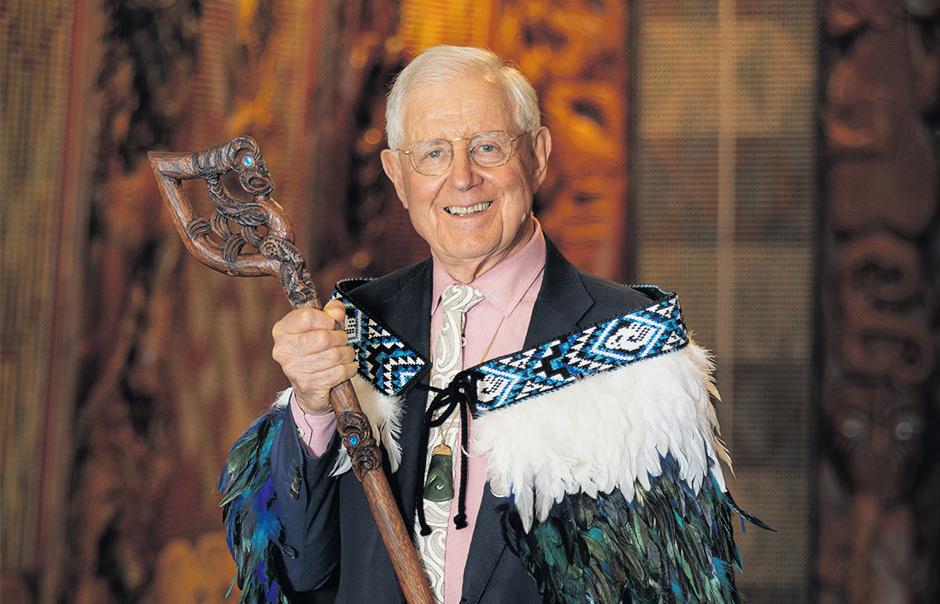
Sir Richard Faull is a proud patron of our organisation, and we are deeply grateful for the unwavering support and dedication he continues to give our community. His passion for advancing brain health and his commitment to research have made a lasting impact on many lives.
After a lifetime dedicated to brain research, Distinguished Professor Sir Richard Faull (Ngāti Rāhiri, Te Āti Awa) has been honoured by the University of Otago – Ōtākou Whakaihu Waka, with an Honorary Doctor of Science.
Sir Richard, an Otago Medical School graduate (MB ChB 1970), is a pioneer
in neuroscience both nationally and internationally. He describes the honour as an “extraordinary honour of a lifetime” and says it has filled him with “enormous humble pride.”
His passion for brain research began at Otago, where he completed a Bachelor of Medical Science in 1967. He later earned a PhD from the University of Auckland and completed postdoctoral work at MIT and NASA’s Ames Research Center.
Returning to the University of Auckland in 1978, he became Director of the Centre for Brain Research – Te Huinga Hinengaro – and in 1994, established the Neurological
Foundation Human Brain Bank. These initiatives have advanced research into conditions such as Huntington’s, Parkinson’s, Alzheimer’s, epilepsy and motor neuron disease.
A significant part of Sir Richard’s legacy is his discovery that stem cells remain in the adult brain and can regenerate new cells, challenging long-held beliefs and opening new possibilities for brain repair. His transformative work has had global impact.
His accolades are numerous: Fellow of the Royal Society of New Zealand, Gluckman Medal recipient, Liley and Rutherford Medals, and a Knight Companion of the New Zealand Order of Merit. In 2023, he received a korowai and tokotoko in recognition of his contributions to brain health for Māori and other communities in Aotearoa.
Reflecting on his time at Otago, Sir Richard recalls being inspired by the legacy of Te Rangihīroa – Sir Peter Buck – the University’s first Māori medical graduate. A pivotal year of research as a third-year student sparked a lifelong passion.
Sir Richard credits Otago for shaping his career and hopes his honour will inspire today’s students. Vice-Chancellor Grant Robertson called him “an outstanding graduate” whose contributions to science and leadership reflect immense credit on the University.





























































Muscular Dystrophy Northern (MDN) is a small, not-for-profit incorporated society that provides a broad range of services designed to support, advocate for, and inform our members living with Muscular Dystrophy/Neuromuscular Conditions, their families, and carers in the northern region (Kaitaia to Taumarunui).
We are a member-led organisation established by New Zealanders with lived experience of Neuromuscular Conditions and those who support them. Our national entity has been in operation since 1959, and the Northern Branch was established as an Incorporated Society in 1988 to better address the local needs of members. Muscular Dystrophy Northern provides support for more than 60 different Neuromuscular Conditions. These conditions are mainly inherited, affect both males and females of all ages, occur across all ethnic groups, and often more than once in a family. Currently, there are limited treatments available in New Zealand.
Our Vision is to promote and enhance the well-being of people affected by neuromuscular conditions - fostering an inclusive and supportive community. Our work is guided by our values: Sustainable – Toitūtanga, Empowering –Whakamanatanga, Proactive – Kōkiritanga,
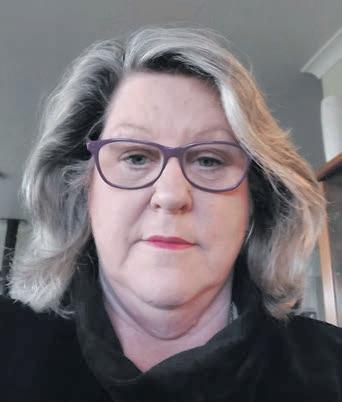
Lynn Williams, Northern Branch Fieldworker for Muscular Dystrophy New Zealand, supports individuals and families affected by neuromuscular conditions across the region.
Connected - Tūhonotanga. Providing an outreach community-based service is important due to the barriers physically disabled people face in accessing transport. These conditions can be devastating to those newly diagnosed and their families and our organisation plays a vital role in providing support and professional advice through our Field Worker Service.
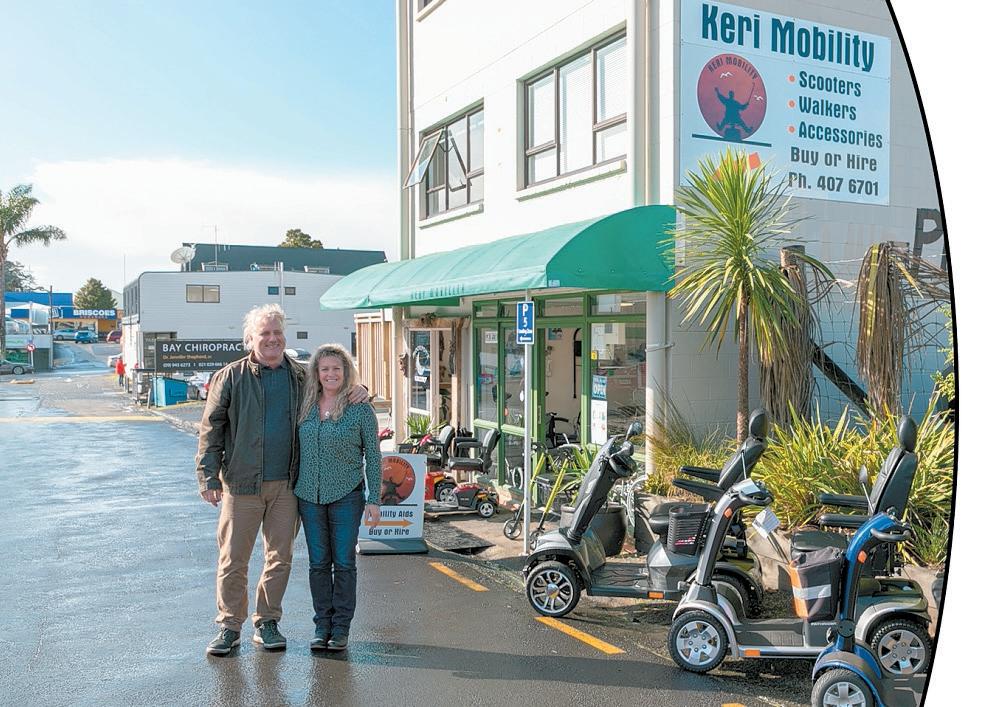
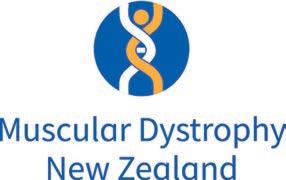
This is provided free to our members, and includes:
• Home-based visits/Zoom meetings
• Support for new diagnosis
• Referrals to appropriate agencies
• Advocacy and support
• Liaising with other services to coordinate client’s needs
• Information and knowledge on neuromuscular conditions
• Facilitating social contact with others
• Attendance at multi-disciplinary clinics
• Annual Family Camps
• Regular newsletters and emails
Fieldworker Northern Branch Contact
Lynn Williams
Phone 021 704 227 Email Lynn@mdn.org.nz
MDANZ National Branch Contact
Phone 0800 800 337 (MDN Support) Email info@mda.org.nz Website www.mda.org.nz
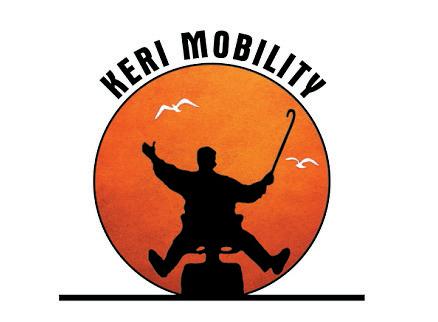

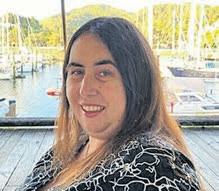
Life for Shanti Sich (Shaw) was quite normal until she was around ten years old. Then her older brother Jason’s hands began to close up and at the same time her sister had low muscle tone and then we were taken to the paediatrician for genetic testing.
Further tests revealed Jason and Shanti, along with their younger brother, had type 1 myotonic dystrophy – the most common form of the genetic muscular dystrophy, and their younger sister had the more severe. Their mother, unaware she had the condition, was also type 1. More relatives turned up positive tests.
“We were all diagnosed at once,” recalls Shanti.
Shortly after, she began noticing signs, such as not being able to open her hands after squeezing something and having to prise her fingers open. She also remembers having pain and issues with her calf muscles, leading her to walk around on her tip-toes.
“So I taught myself to walk on my tip-toes until I had an operation on my Achilles tendon to fix it.”
Muscular dystrophy causes progressive muscle weakness and loss of muscle mass leading to loss of mobility and independence. Abnormal genes interfere with the production of proteins needed to form healthy muscle. Symptoms can vary widely, affecting multiple organ systems and can appear at birth or much later in life.
The severity of myotonic dystrophy varies widely among those who have it, even among family members. The weakness and muscle wasting that occurs slowly progresses to the point of disability. Usually, disability does not become severe until 1520 years after symptoms appear.
People with the condition often have prolonged muscle contractions (myotonia) and can’t relax certain muscles after using them. The most common signs of muscular dystrophy include: clumsiness, walking on tip-toes, leg pain, tripping and falling frequently, trouble climbing stairs, facial weakness, arm and shoulder weakness and difficulty closing eyes. It is also common to develop cataracts at an early age.
As well as suffering weakness in her neck and vision problems, helped by an artificial lens, Shanti is prone to falls.
“I fall over a lot and injure my knees. I fell over at a client’s house for my caregiver job and the ambulance had to come and pick me up. Last week, I fell over in the car park and, the other day, I fell over at the gym and a big muscly man came and picked me up. I go bright red, like a tomato.”

However, the worst symptom for her has been the learning disability.
“The learning disability has been the biggest thing I’ve had to struggle with throughout – I really struggled with maths.”
Shanti believes her lack of mobility has led to weight gain and she recently had gastric bypass surgery enabling her to lose 32kg so far. She is a regular at Kensington Fitness for both weight loss and muscle strength.
While the rest of her family’s symptoms have progressed at a slower rate, Jason’s fast-tracked.
“He is very hunched over and can hardly talk, his hands don’t work at all and he needs feeding,” Shanti describes.
“I worry all the time about what’s in the future. If I could do anything to help my brother, then I would. That’s why I lost weight because if they ever wanted to use me for a trial drug, then I wanted to be prepared.”
However, Shanti is quick to stress that no one is to blame for their condition. “I’ve got a life to live and I’m not going to let muscular dystrophy stop me from reaching my potential. Don’t judge me for what I can’t do, only judge me for what I can do.”









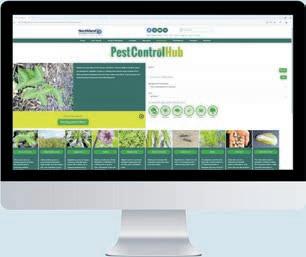
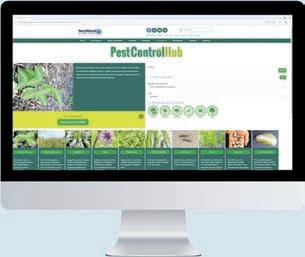
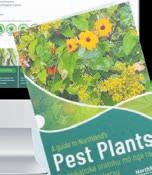



Motor Neurone Disease New Zealand is the only charity focused on improving quality of life, funding research and campaigning for people affected by motor neurone disease (MND) in Aotearoa New Zealand.

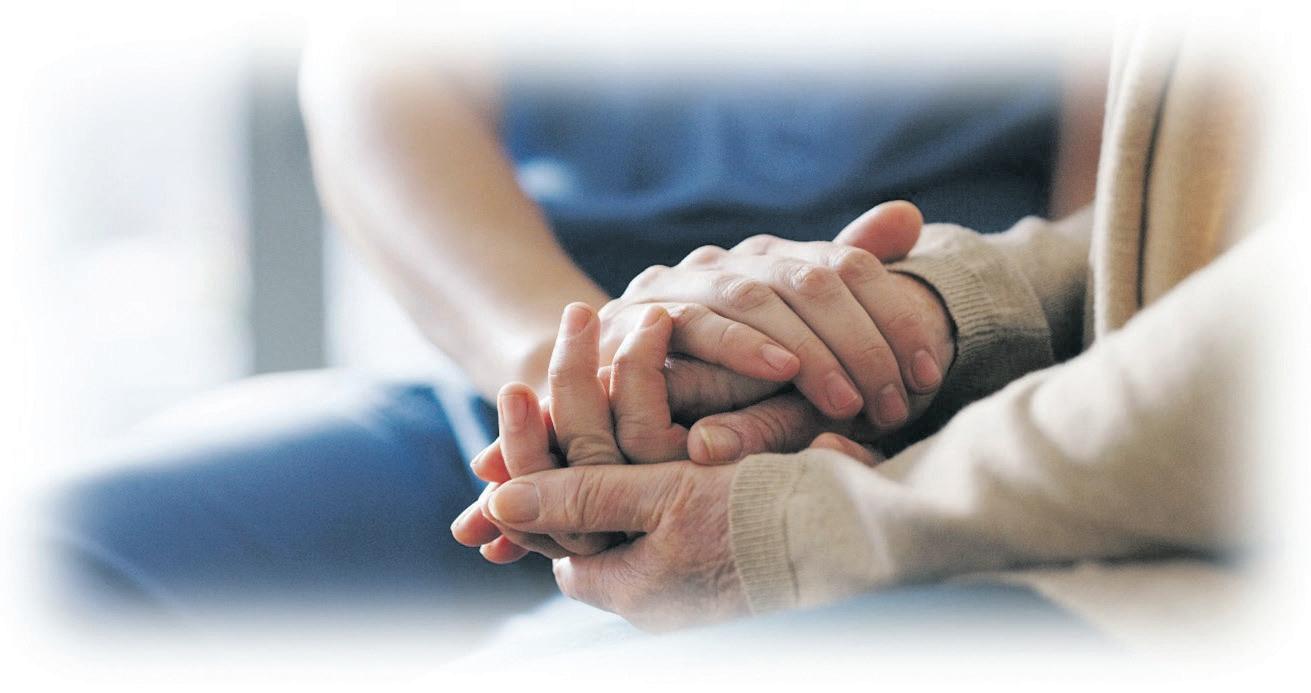
What is motor neurone disease?
Motor neurone disease (MND) is a fatal, rapidly progressing neurodegenerative condition that robs people of their ability to move, speak, swallow and eventually breathe.
What we do
We provide support for families currently affected, helping to make time count by providing tailored support in a meaningful way that answers questions and solves challenges quickly
We support promising research in Aotearoa New Zealand that delivers improvements in quality of life, as well as global research efforts identifying potential causes and effective therapies.
Here for you
“Thank you so much for your kindness and love to my dear wife and to me. You provided support, expert advice and willing ears throughout the trauma of her illness”.
K – MND NZ client
“I can’t thank you enough for all the help and all the support you gave. You were always so kind and caring with mum and most importantly you listened to what mum had to say which made her feel better”.
B – MND NZ client
“Rachel, I really appreciated your attendance at my house on Tuesday. I find your attitudes and problem-solving ideas in line with what I’m thinking. You’re very practical and you’ve got so on top of my situation despite the
short time you’ve known me. Thank you for that effort”. D – MND NZ client
Our charity was built on the ethos of helping people affected by motor neurone disease – it’s the cornerstone of all that we do. If you or a loved one has motor neurone disease, we’re here for you.
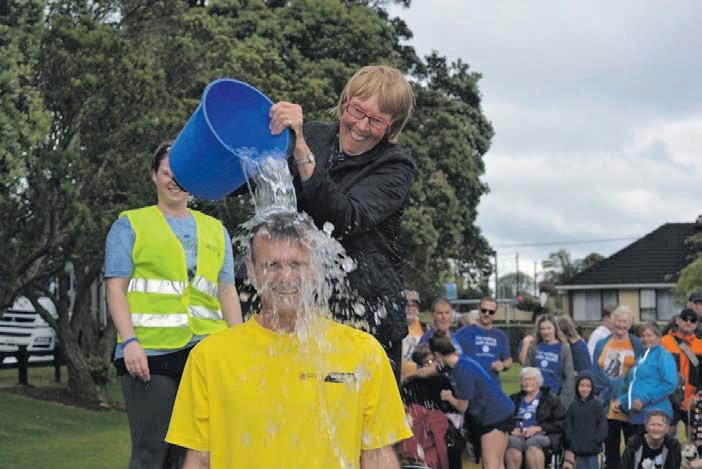
When you’re living with motor neurone disease (MND), time becomes something you can’t take for granted. It’s measured in moments — in movement, in breath, in connection.
At Motor Neurone Disease NZ, our mission is to help people make that time count — not just in days, but in dignity, comfort, and care.
There is currently no cure for MND. As the disease progresses, needs change quickly, and support can’t wait. People living with MND — and their whānau and carers — deserve help that comes when it matters most.
That’s what MND Action Month is all about. Every June, we ask Aotearoa to stand with the more than 400 New Zealanders living with MND, to raise awareness, spark
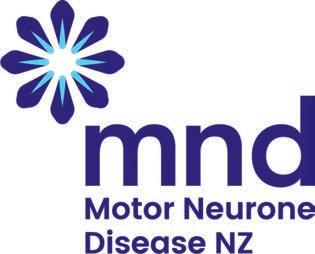
kōrero, and take action that makes a real difference.
Whether you’re tipping a bucket or pouring a cuppa, you’re helping shine a light on MND — and on the people behind every diagnosis.
Two key events lead the campaign: Cuppa Tea for MND — Gather, reflect, and raise a cup for someone who matters.
The Ice Bucket Challenge — Tip a bucket, start a conversation, and honour the cold, hard reality of MND.
Every action counts. Every story matters. Join us this June — and help make time count.
Find out more or get involved at mndactionmonth.org.nz
To find out more visit www.mndactionmonth.org.nz.


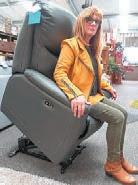

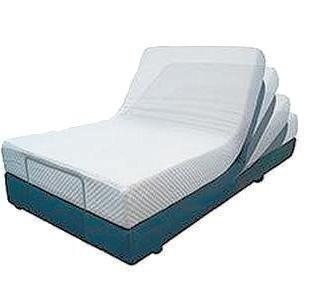
Northland Multiple Sclerosis Society offers a wide variety of services to people with MS, family/whanau members and carers. The Northland area extends from Wellsford, coast to coast to Cape Reinga.
The service provides information, education and support, encouraging a proactive approach to managing this disease. If you have MS the Society provides for you and your family and/or carers:
• A MS Field Worker who is a NZ Registered Nurse.
• Home visiting service. Support and information to you and your family about your condition or in your role as a caregiver.
• Educates you, your family and other health professionals about MS and related disorders.
• Advocates for you with other support agencies and health professionals and informs you of services available in the community.
• Provides education material and books, both available from the MS office.
• Library Books covering all aspects of MS are available to take out on loan
• Holds monthly support groups for those with MS.
• Offers a free weekly MS exercise class
• Bi-monthly newsletter which includes useful information on research and development of MS and advice on staying well.













Multiple Sclerosis is one of the most common diseases of the central nervous system. A fatty substance called the myelin sheath covers the fibres of the nervous system. The myelin protects the nerves and helps the messages move between the brain and the rest of the body.
In MS, the myelin sheath covering the nerves in the brain and spinal cord become scarred in scattered patches. This is multiple scarring, or sclerosis. Essentially this distorts or prevents the flow of messages from the brain and the spinal cord to other parts of the body.
The distortions to the messages travelling through the nervous system cause a range of problems for the people with MS.
Although it is important to note that there is no typical set of MS symptoms, the following are common (in varying combinations or severity): Difficulty with legs, arm and hand movements, numbness and pain, problems with thinking and remembering, blurred or double vision (often only affecting one eye), bladder and bowel problems, loss of balance and co-ordination, fatigue.
At this time the cause of MS is still unknown. However, research suggests it is likely to be a combination of the following: a reaction to a virus, possibly years after





infection; exposure to an unknown environmental agent before puberty; an auto-immune reaction in which the body attacks its own tissue for an unknown reason; or a genetic susceptibility to the above triggers.
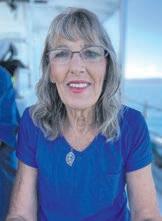
While MS still cannot be cured, much can be done to help manage the condition. There are MS-specific treatments available. These directly target the immune system. A Neurologist determines whether these are relevant for each person. Generally the person with MS works with their GP on the day to day management of the condition.
nthldms@xtra.co.nz
www.msnz.org.nz/ms


































89.2FM











When I was 34, on maternity leave following the birth of our first daughter, I experienced what I would later learn was my first episode of MS symptoms. Approximately 18 months later, shortly after having our son, I again experienced unusual symptoms. This time my GP began a referral process which led to my diagnosis of Relapsing-Remitting Multiple Sclerosis. This was really challenging and with two very young children, suddenly my future felt very uncertain.
My husband and I did some soul searching and decided we would make a move north to Whangārei. It meant a change of employment for him, but the opportunity to reduce our financial commitments, allowing me to delay returning to work. Soon after shifting, we learned our second daughter was on the way. With three children under 5, and our new baby needing two major operations in her first year, things were pretty full on. Without warning I relapsed and ended up in hospital, paralysed on my left side. After large doses of steroids calmed the relapse down, I slowly but surely began to regain my mobility. I began weekly Interferon injections to dampen down my immune system and discourage it from attacking me further. Luckily, I responded well to the treatment. I changed to Fingolimod a couple of years ago, to reduce side effects, and have not experienced further significant relapses, touch wood!

Once back on my feet, I really appreciated the gift of mobility, and wanted to get stronger. I announced to my husband that I would like to walk a half marathon! Despite thinking I was mad, my family took up the challenge with me. We completed every one of the Northland RunWalk events that year and joined Whangārei Athletics. Along the way, our family enjoyed events together, made friends, got stronger, fitter, and made lots of great memories. My daughter and I walked the KeriKeri half marathon together– we didn’t do it fast, but we did it, celebrating each completed kilometer with a jump! It was my first and only only half marathon, but it taught me I had so much love and support around me and that I was still able to achieve a goal.
However, the scarring of my myelin has left me with an MS legacy, most significantly in the form of foot drop, compromised balance, and difficulty in maintaining a normal walking
stride. While I begin a walk with an essentially normal gait, after a couple of kilometers my legs don’t cooperate so well and I had lots of falls. As time went by, I realised if I wanted to lessen my risk of significant injury, I needed to make changes.
My children bought me hiking poles one Christmas, and the support of these extra points of contact with the ground really helped my balance. Belinda the Northland MS Field Worker suggested I make contact with a fellow member of the MS Society who was using a Step Smart brace. She kindly invited me to try her brace out, then supported me in purchasing my own brace from Insightful Products.com. The brace fits inside my shoe and is articulated at the ankle, ‘bouncing’ my foot up as I take a step. Using both the hiking poles and the brace has made such a huge difference – increasing my distance and pace, and reducing my incidence of falls.
When initially diagnosed with MS, I lost confidence that I would be able to participate fully in my own and my family’s life. I have since learnt about the power of partnership with my family and community and renewed my faith in my own ability to persevere and achieve goals, None of us know what is around the next corner, but we can be the strongest we are able to be as we walk along that road!
Our internship is designed to get 15- to 24-yearolds supported into work. The program is individualised to meet interns where they’re at in the way they need to succeed. We partner with businesses throughout Whangarei and beyond, offering support to managers, their interns and whānau. To live your dream, see our website to make an application.
Paerata is new service that takes a holistic approach to support tangata whaikaha. (people living with disabilities) Paerata provides a personalised, integrated support tailored to the unique strengths, aspirations, and needs of tangata whaikaha and their whānau. Our solutions-focused approach places individuals at the centre, creating meaningful plans that reflect their goals and values.
NorthAble DIAS can assist with providing free information and advice to tangata whaikaha (people with disabilities), their whanau, caregivers, providers and the public. Information can be accessed in a variety of formats, including in-person at our office, by phone, website or email.
NorthAble receives funding via MSD Community Connection to support people with disabilities to
make emergency plans for a variety of situations, such as floods, fire and power outages as well as personal emergencies. To access this service, contact our main office via phone or email.
Our facilitation team works with people aged 0-65 who require long-term support due to neurological, learning, intellectual, physical or sensory disabilities. Our Facilitators can also support you with finding the next pathway when leaving school, and if you have MSD Very High Needs funding, we can work with you to develop a holistic plan incorporating all aspects of your great life.
Our LYNKZ program is available to individuals aged between 16-64 who have neurological, learning, intellectual, physical or sensory disabilities. LYNKZ is a community-based service that works with its whānau members to improve their life skills, engage with the wider community and increase confidence. Our main programme operates in Whangārei from Monday-Thursday.
LYNKZ Outreach is an adapted version of our core LYNKZ programme, designed to bring the same meaningful opportunities and support to communities across Northland. We currently have LYNKZ Outreach running in the Hokianga through Hauora Hokianga, and at The Good Life Project in Kaitaia. These satellite programmes deliver accessible, community-driven support while

upholding the values, impact, and spirit of the main LYNKZ programme.
EQ+ is Northland’s largest supplier of rehab, agedcare and disability equipment and products that support people in all areas of daily living. We also have a range of hire equipment and great advice. Service is provided throughout the whole of Te Tai Tokerau, with products stocked at Far North Pharmacy in Kaitaia. We also deliver nationwide so check out the full range on our website at www. equipmentplus.org.nz
Whangarei Budgeting Service is dedicated to offering people advice and support with their finances. Our one-on-one service is aimed for people to be able to independently manage their own finances and create a brighter future for themselves and family. Request an appointment through our website or by phoning our main office. This is a free service and is open to all people, with or without disabilities.
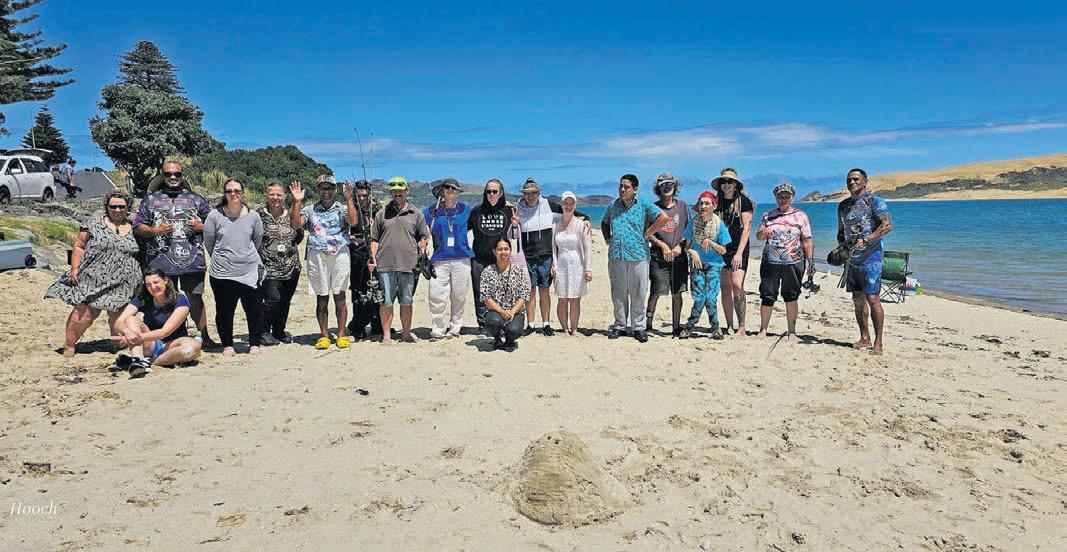
The LYNKZ community participation group supports those with learning, intellectual, physical, or sensory disabilities. Whānau who attend our programme are aged between 16 and 64 and have learning, intellectual, physical, or sensory disabilities and/or conditions. Our daily activities run from Monday to Thursday with everything from classes in cooking to road trips to the zoo, beach or other amazing activities which encourage our whanau to become more confident whilst learning skills as we engage in the community. NorthAble LYNKZ is a community-based service that works to improve the lives and life skills of our
clients whilst also increasing employment awareness and opportunities in Whangarei.
One of the special events that occurred this year was our Whangarei LYNKZ whānau visiting our outreach whānau in the Hokianga when they went for a fishing trip. This trip was particularly special due to the fact the two LYNKZ groups do not usually see each other. This experience created a deeper connection between our NorthAble groups, by giving them a chance to connect when our Whangarei whānau got to fish in the backyard of our Northern whānau. Developing cores skills such as sharing,

community participation, and going out of their comfort zones to discover more is so important for everyone to learn, and when they get to practice these skills in a fun and exciting environment, it makes it that much better! Though the group did not catch any fish (only a stingray), everyone had an outstanding time being able to connect with each other. Forming strong relationships together through Te Tai Tokerau makes the community better and allows everyone to become stronger. If you would like to learn more about the LYNKZ community participation programme, email lynkz@ northable.org.nz or phone 0508 637 200.
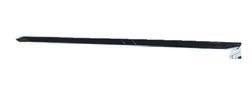

Every year, hundreds of Northland whānau face the unique challenges and joys of caring for disabled, neurodivergent, or health-impaired family members.
With over 40 years in the disability sector, Parent to Parent has become the trusted pan-disability organisation for family support pre-and post-diagnosis. This year, Parent to Parent is celebrating the 30th anniversary of our SibSupport programme. Find out about this unique service in Aotearoa below.
• Tailored information: on any disability or disability-related topic, collated by a team of qualified researchers and information officers with whānau or personal experience of disability.
• Workshops and events: focusing on various community-driven topics—from wellbeing to anxiety to navigating the health, education, and disability systems. Workshops are facilitated by professionals with personal or whānau experience of disability.
• Support groups: held in 12 regions across Aotearoa and facilitated by a Parent to Parent Regional Coordinator, all of whom are family members of disabled people or have professional experience in the disability sector. Parents and caregivers receive current
information on supports and systems, connect with people with shared experiences or concerns, exchange advice and information, offer mutual support, and participate in social activities together.
Our peer-to-peer support model is unique and well-regarded across Aotearoa. Specifically, we offer two forms of peer support:
• Support Parent Network: matches whānau members to a trained volunteer Support Parent who has a child or family member with the same or similar disability or health impairment or is experiencing a similar issue. .
• Sib Support NZ: offers a range of support options to help siblings thrive in their unique family environment. Events include the biennial Northland SibVoyage and nationwide SibShops and SibCamps. The programme is run by SibLeaders who have grown up attending SibSupport and have been trained to facilitate for the next generation. The ‘by-siblings-for-siblings’ environment creates a supportive, judgement-free space to explore all the aspects of growing up with a disabled brother or sister.
Our services focus on the wellbeing of the whānau as a whole and address individual needs within the family context. This includes disabled people, their parents, caregivers,

siblings, and grandparents. We are committed to providing services that align with the Enabling Good Lives principles. Visit our website to learn more and to register for a free and confidential service.
Don Martin is the Regional Coordinator for Northland, based in Ōkaihau. This central location is perfect for providing services to the whole of the Northland region.
Other support services include:
Altogether Autism: providing autismspecific, evidence-based information
Care Matters: web-based resources and a freephone service for family carers. Many of our workshops are funded by Care Matters.
The Wilson Home Trust: providing grants to families with children with physical disabilities aged 0-21. Don is the local Far North representative.
Freephone
Email northland@parent2parent.org.nz
Website www.parent2parent.org.nz
Facebook www.facebook.com/ parenttoparentnorthland
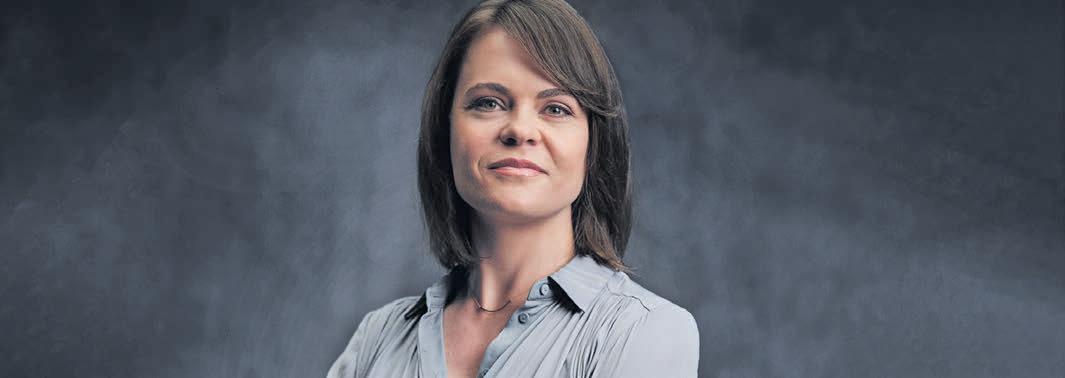
4PM – 7PM WEEKDAYS

Kei wētehi, kei wētehi anō he rerekē, he kanorau tōnā ake āhua, tōnā ake mana, tōnā ake mauri’ - Jessica Hita
Ko Waikowhai tāku taonga takiwātanga.
Raising a Māori taonga takiwātanga girl in The Far North of Aotearoa is a journey guided by aroha, manaakitanga, and whanaungatanga, but not without its challenges.
We value her unique ways of learning, communicating, and connecting, and we uphold her right to access everything in life that reflects her whakapapa, honours her neurodiversity, and empowers her to thrive as Māori and as taonga takiwātanga.
We do our best to honour her whakapapa, her neurodiversity, and her unique way of seeing the world. We do this by focusing on her strengths, reciting karakia, singing waiata, attending wānanga and having an education focused around her taha wairua, taha hinengaro, and taha tinana within kōhanga reo.
Her wairua, language, culture, and identity are nurtured as best as possible alongside her right


to thrive in spaces that understand, respect, and celebrate who she is.
We walk our best alongside her, not to change her, but to ensure she is seen, heard, and valued – as Māori, as takiwātanga, and as her whole self.
As I said, it doesn’t come without its challenges, and as she grows, sometimes so do the barriers for support, but Don from Parent to Parent has always been a constant support throughout all times, the good, the bad, the ugly and of course the successes!
Thank you Don for always being present, for caring and for supporting us as Waikowhai’s whānau, to support her. No hill seems too big to climb when you are right there climbing with us. Ka nui te aroha ki a koe e te Rangatira!
“Ko ia tātou, ko tātou ko ia – he whakapapa. Darnel, Nataria and Waikowhai “
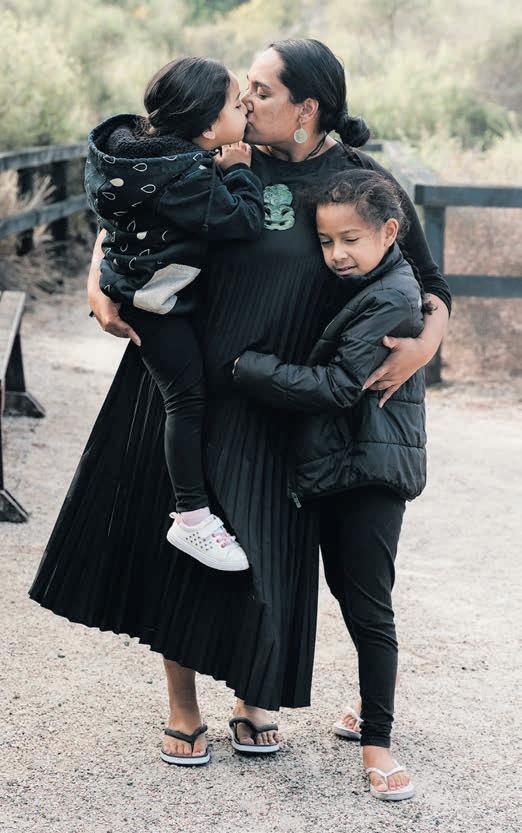

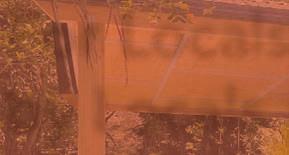
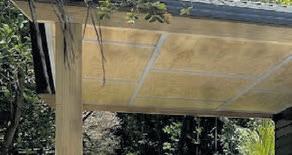
AtVersatile,weareincrediblyproudtohave beencreatinggreathomesandbuildingsformore than40years.Butwe’reevenprouderthatwe’restill 100%Kiwiowned,operated,andfocused. Becausewe’refromhere,we’reforhere.Weknowthelocalconditions andunderstandthelocalregulations.Andaboveall,we’repassionate aboutbuildingbetterforKiwis.
Todiscussyourbuildingneeds, talktoVersatileWhangarei. 3SouthEndAveWhangarei. 094388871.

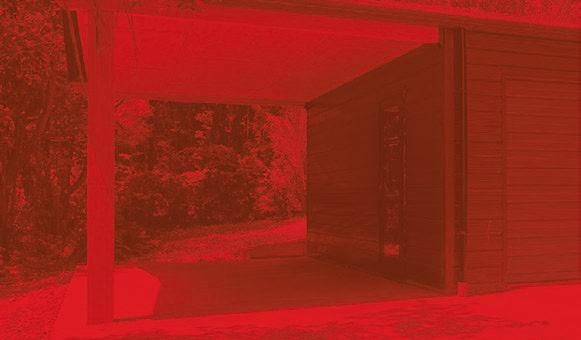
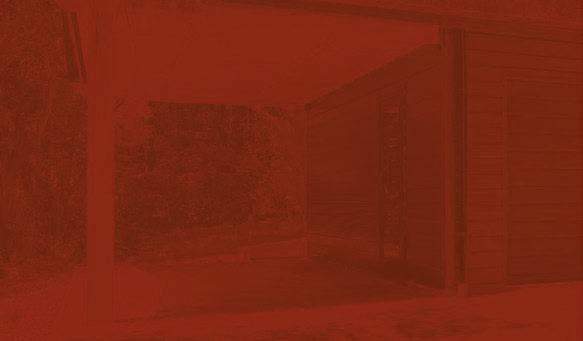
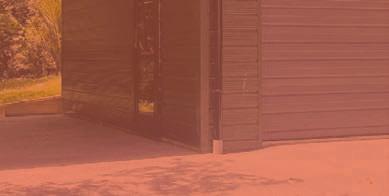
Parkinson’s is the fastest growing neurological condition in the world.
It’s estimated that there are 13,000 New Zealanders living with Parkinson’s and the average age of onset is 59. Parkinson’s is a progressive neurodegenerative condition caused by insufficient quantities of dopamine - a chemical in the brain.
When dopamine levels fall, movements become slow and awkward. The most common physical symptoms are tremor, stiffness, rigidity and slowness of movement. Other symptoms include depression, anxiety or apathy, disturbance of normal sleep, constipation, and trouble swallowing or speaking.
Although there is no cure, support and treatment are available.
We are here to help.
Parkinson’s New Zealand provides high quality information, education and support for all people with Parkinson’s and Parkinson’s Plus conditions living in Aotearoa New Zealand.
This year, Parkinson’s New Zealand is supporting 403 people who have been diagnosed with Parkinson’s or are carepartners in Northland.

To make our service as accessible as possible we offer a variety of options for people. Our Parkinson’s Educators offer home visits, are available by phone and email and can meet online, and our website www. parkinsons.org. nz includes both accessibility and translation features. We offer support groups, educational
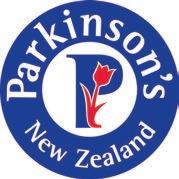
seminars, advocacy and whānau meetings as well as referrals to other health professionals. Our Parkinson’s Educators provide answers to any questions you or your whānau may have about Parkinson’s including medication, treatment and support available.
There are various activities available in Northland including social and exercise groups These can include activities such as walking, hydrotherapy, physiotherapy, voice and movement classes, or Counterpunch groups.
Parkinson’s New Zealand is available for information, education and support for whānau living with Parkinson’s in Northland. If you or someone you know has been diagnosed with Parkinson’s you can get support by registering with us online via our website www.parkinsons.org.nz or calling 0800 473 4636.
Parkinson’s New Zealand charitable trust is reliant on funding from grants, bequests, and donations.
Parkinson’s New Zealand
Free phone: 0800 473 4636
Email info@parkinsons.org.nz
Website www.parkinsons.org.nz
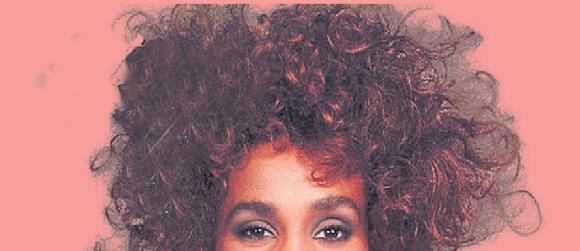
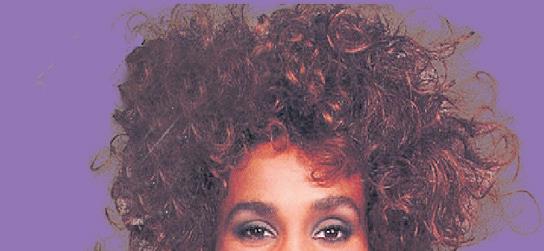








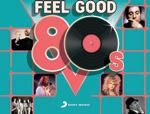




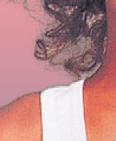

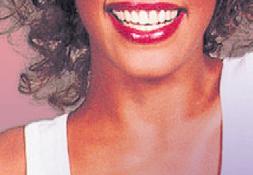



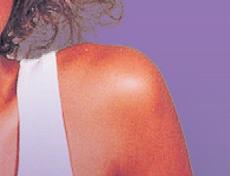

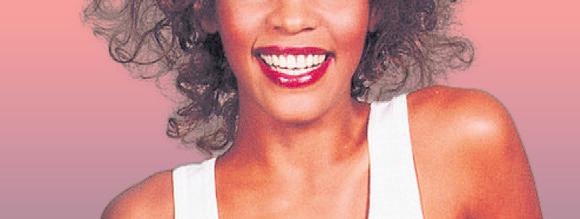


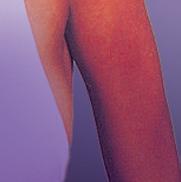
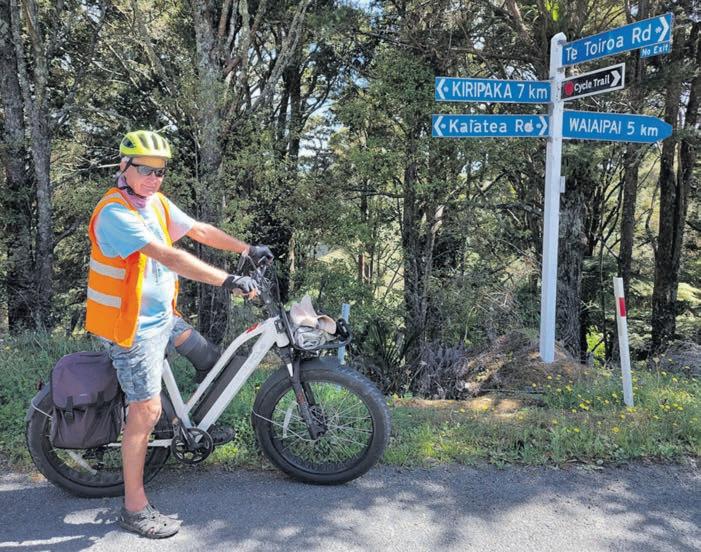
Parkinson’s hasn’t slowed 72-year-old Mike Bell down – he got an E-bike, allowing him, not only freedom but a raft of adventures.
He was 69 and still working in his beloved career as a school counsellor when diagnosed. However, he’d been feeling a bit off in the year leading up.
“I was forgetting my Tai Chi moves. I went there for many years and I just couldn’t connect with it. I was also working two days a week at Whangārei Girls’ High School as a counsellor and my body was becoming hunched, it felt like there was a weight on my shoulders. I also had bradykinesia (slowness of movement), which is when you sort of freeze when you’re turning, you can’t turn smoothly. It’s hard to pin-point it down to things but I just didn’t feel right,” explains the Pataua resident.
Mike says he suspected he had Parkinson’s as both his mother and her mother had it so he recognised the symptoms.
While a family history increases the risk of developing Parkinson’s, only around 15 per cent of cases are thought to be due to genetic mutations passed down from parents. It is believed to derive from a combination of genetic and environmental factors.
Parkinson’s Disease is a progressive neurodegenerative condition caused by insufficient quantities of dopamine in the
brain. It has both motor and non-motor symptoms and, while it cannot be cured, it can be treated. The main motor symptoms of Parkinson’s are involuntary shaking, slow movement, stiff and inflexible muscles and loss of balance. The main non-motor symptoms include depression and anxiety, loss of interest and motivation and sleep disturbances. Other symptoms include loss of smell, fatigue and other cognitive difficulties.
Although he loved his role, Mike worried that his condition would affect his ability to do the job well and retired.
“With counselling, if you’re well, the older you get, the more wisdom you accumulate in life. I always enjoyed the work, even though a lot of it was challenging, but Parkinson’s was the real reason I retired as I wasn’t feeling myself.”
Since then, it has been a slow, steady decline with good and bad days with Mike approaching each day positively. And while some medication helps, his primary approach to well-being is through movement and mindfulness.
“I decided long ago that Parkinson’s was a part of me so I wasn’t going to hate it.”
Although he has an artificial leg below the knee as a result of a chainsaw trauma many years earlier, Mike has always led an active lifestyle, which includes cycling, sailing, diving, swimming and fishing. He still does

all of these in some capacity.
“The beauty of cycling is you’re in control. You can go really fast. Cycling is quite freeing, especially on an E-bike. You can pedal as hard as you like or as easy as you like.”
In April, he took part in the Alps to Ocean Cycle Trail, a breath-taking 300-plus km multi-day journey through the South Island.
“This journey represents more than just a bike ride. It’s about pushing boundaries, embracing challenges, and celebrating the joy of movement. Parkinson’s may be part of my story, but it will never define my limits,” he says.
He also does a lot of walking and swims most days throughout the year.
“Daily exercise is essential to me but I also live by the principles of Te Whare Tapa Whā, a Māori model of well-being that embraces balance in four key areas: Taha Tinana (physical health), Taha Hinengaro (mental and emotional well-being), Taha Whānau (family and social well-being) and Taha Wairua (spiritual well-being).
“These principles guide much of what I do — sailing, gardening, sharing good conversations over coffee, practicing Tai Chi, walking in the bush, meditating, and simply sitting in stillness, noticing the beauty around me. Even with Parkinson’s, I embrace life with curiosity and gratitude. I choose not to see it as an enemy but rather as a teacher, offering me new perspectives and deeper awareness. I guess I just don’t know what’s waiting for me round the corner, as it’s degenerative.”
Mike says one of the greatest gifts from his family and friends is allowing him to remain independent, stepping in only when asked for help. The Parkinson’s New Zealand support group has been another source of strength. “And I could not have done what I did without the love, support and guidance of my partner Anna. She really has been my rock.”
Mike is already planning his next big E-bike excursion. “Life has become a lot less constrained by illness and E-bikes assist with this. You still have to pedal, else the bike stops, but it maintains the freedom I had before and has opened up adventures for me and access to exciting things.”
Age Concerns work hard to reduce the harmful effects of elder abuse. World Elder Abuse Awareness Day (15th June) helps to shine light on this often-hidden issue in our communities. We emphasise that anyone can call us at Age Concern Kaitaia & District with a question about the safety of an older person. Even if you are unsure, you have a hunch, or an inkling that something may be amiss with an older person, we wo uld rather you call us sooner, than wait until you have definite proof. The longer elder abuse goes on for, the more harm is caused, and the harder it becomes to untangle the effects on older people and within their family/whānau.
Age Concern Kaitaia & District works alongside many other agencies such as health services, needs assessment services, the police, banks, residential care facilities, iwi and other community agencies, to ensure the best possible outcome for older people.
What does Age Concern do to prevent elder abuse and neglect?
SHow prevalent is elder abuse?
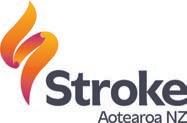
Key messages: Spot the Signs! Elder abuse is harmful.
Malnourishment
Poor
troke Aotearoa New Zealand is the national charity dedicated to stroke. Te Ahi Tūmanako, the flame of hope, connects us and symbolises taking action and advocating for others, ensuring that hope remains alive and thriving in our communities.
Age Concern Kaitaia & District offers free, confidential, specialist Elder Abuse Response Services for all of Northland. (Kaipara District, Whangarei District, Mid-North and Far North District) We work with older people and their family/whānau to stop abuse, reduce the damage caused, and increase understanding to keep all family members safe.
communities, providing advocacy support, building awareness of our services, and delivering face-to-face support when needed to people and their whānau affected by stroke.
Elder abuse affects our society
Include older people in decision-making
Increases in the numbers of cases that elder abuse agencies deal with, does not prove that the rate of elder abuse is increasing, but it shows that it is being reported more often. This reinforces why Age Concern keeps raising awareness about elder abuse and neglect. Anyone in any community can contact Age Concern, to talk through signs that query older people/kaumātua’s safety .
Age Concerns work hard to reduce the harmful effects of elder abuse. World Elder Abuse Awareness Day (15th June) helps to shine light on this often-hidden issue in our communities. We emphasise that anyone can call us at Age Concern Kaitaia & District with a question about the safety of an older person. Even if you are unsure, you have a hunch, or an inkling that something may be amiss with an older person, we would rather you call us sooner, than wait until you have definite proof. The longer elder abuse goes on for, the more harm is caused, and the harder it becomes to untangle the effects on older people and within their family/whānau.
What are the effects of elder abu se?
Similarly, our free Return to Work Service is available for stroke survivors all over Aotearoa who meet the eligibility criteria set by the Ministry of Social Development. This service assists stroke survivors with employment and work-related advice and support, and it has helped hundreds of people to achieve their work goals and confidently re-enter the workforce.
Protect the rights of older people
Signs you might spot include:
• Injuries such as bruises, cuts, or broken bones
• Malnourishment or weight loss
• Poor hygiene
• Symptoms of anxiety, depression, or confusion
As stroke affects people all over Aotearoa, we make our services accessible to people, no matter where they are based or what challenges they may face. Our Community Stroke Navigators (Kaiārahi) work all over New Zealand, ensuring each part of the country has a local representative. Community Stroke Navigators are responsible for developing partnerships and stroke education programmes in
Age Concern Kaitaia & District works alongside many other agencies such as health services, needs assessment services, the police, banks, residential care facilities, iwi and other community agencies, to ensure the best possible outcome for older people.
The personal losses associated with abuse can be devastating and include the loss of independence, homes, lifesavings, health, dignity, and security
How prevalent is elder abuse?
• Unexplained transactions or loss of money
• Withdrawal from family members or friends
Increases in the numbers of cases that elder abuse agencies deal with, does not prove that the rate of elder abuse is increasing, but it shows that it is being reported more often. This reinforces why Age Concern keeps raising awareness about elder abuse and neglect
Anyone in any community can contact Age Concern, to talk through signs that query older people/kaumātua’s safety
What are the effects of elder abuse?
The personal losses associated with abuse can be devastating and include the loss of independence, homes, lifesavings, health, dignity, and security
Alongside these services, we recently launched a free helpline: 0800 STROKE (0800 78 76 53). No referrals are necessary – anyone can call the helpline, including whānau and caregivers, no matter where they are based in Aotearoa. It is staffed by our Community Stroke Navigators who can provide stroke information, practical guidance, service navigation, referrals to services including stroke support groups, clubs and community organisations, and other life after stroke support.
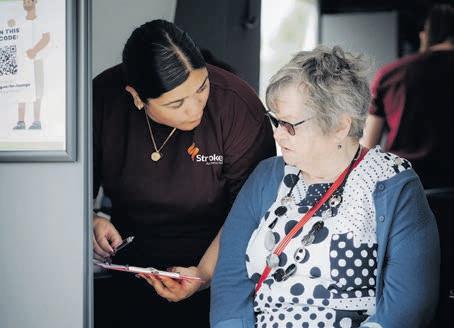
We are dedicated to working closely with stroke survivors and whānau to implement practical solutions for both stroke prevention and support after stroke. We hold hui and workshops based around what people want to learn about, offering information that is useful and practical. We strive to make these events as accessible as possible, by not charging attendees and by being conscious of the venue choice. These sessions are advertised on our Facebook page and through our contacts from local iwi and Māori providers. These sessions are producing real change. In response to hearing from whānau who have indicated that people in the health sector need to know more about stroke, we are providing stroke education for kaimahi and kaiāwhina in Kaitaia, Kaikohe, and Whangārei, and anywhere else in Te Tai Tokerau where there is a demand. To request a visit in your community, email help@stroke.org.nz.
Elder abuse and neglect can be a significant cause of injury, illness, lost productivity, isolation, and despair. Abuse can reduce a person’s independence by undermining their self-esteem and confidence. Elder abuse damages family and whānau relationships, financial security, and mental and physical health, as well as increasing dependency on health and support agencies which may result in the need for residential care . Elder abuse and neglect have a negative impact on the wellbeing and quality of life of older people. But it also detrimental to the image of ourselves as living in a welcoming and inclusive society. Call Age Concern if you spot the signs of older people being harmed.
Elder abuse and neglect can be a significant cause of injury, illness, lost productivity, isolation, and despair. Abuse can reduce a person’s independence by undermining their self-esteem and confidence. Elder abuse damages family and whānau relationships, financial security, and mental and physical health, as well as increasing dependency on health and support agencies which may result in the need for residential care Elder abuse and neglect have a negative impact on the wellbeing and quality of life of older people But it also
Call Age Concern
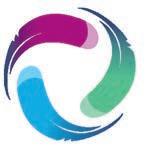

Prevent elder abuse and neglect
Age Concerns around the country see the harm elder abuse causes in eleven new cases each working day , so we are committed to raise awareness to prevent elder abuse and neglect. World Elder Abuse Awareness Day is a great opportunity for everyone to learn more about this global concern that affects New Zealanders too.
Symptoms or • Unexplained of • Withdrawal or Prevent elder Age Concerns the harm new case committed prevent elder Elder Abu opportunity about this New Zealanders We encourage signs to contact question, inkling about being harmed.
We encourage anyone who spots the signs to contact Age Concern with a question, query, concern, hunch, or inkling about an older person/kaumātua
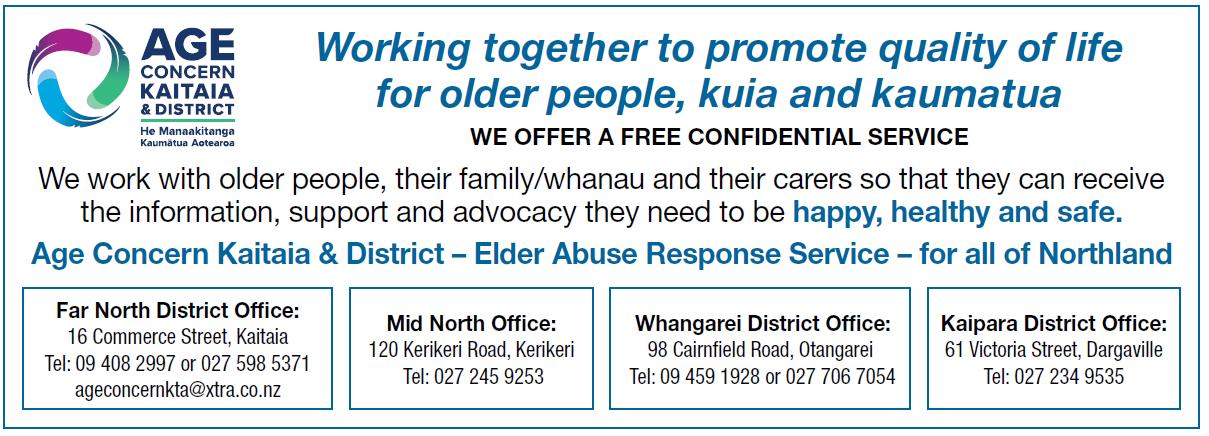
After experiencing a stroke in 2022, Jack Tane thought he lost his smile for good.
Jack first experienced stroke in 2018. Throughout his recovery, he maintained a positive attitude, even teaching himself how to play the saxophone. He attended Stroke Aotearoa New Zealand’s “Life After Stroke” seminars to share his story and inspire other stroke survivors to never give up.
But Jack experienced another stroke in 2022, with far more devastating effects.
As well as developing hemiparesis (muscle weakness on one side of the body) that affected his ability to live independently, Jack also lost his two front teeth.
The loss of his teeth meant that he had to completely change his diet, due to the difficulty of eating. But it affected more than just his diet. Jack felt too self-conscious to perform for others anymore. Jack was a talented musician who loved bringing joy to others through music.
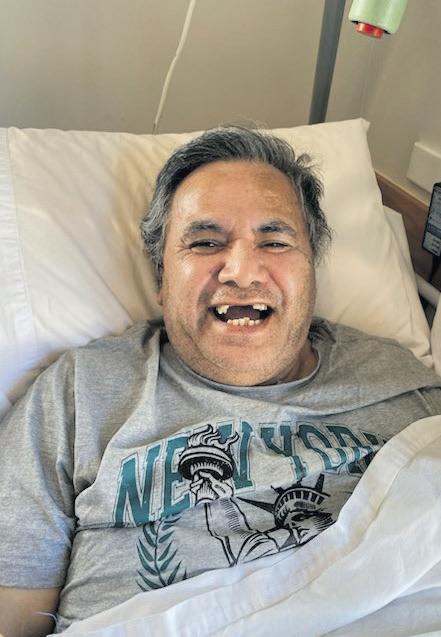

Losing his teeth also meant a loss of identity.
But luckily, Jack had support in his corner. His local Stroke Aotearoa Community Stroke Navigator worked alongside Jack to help him through his recovery. In 2023, she supported Jack’s application to the “Northland Stroke Community Assistance Fund” - a fund managed by Stroke Aotearoa that helps stroke survivors in Northland through funding activities or equipment needed as a result of a stroke.
Jack’s application was approved. And even though his teeth haven’t been replaced yet, his smile is back – as is his passion for performing and bringing joy to others.
If you or someone you loved has been affected by stroke, you can get free support and guidance from Stroke Aotearoa by emailing help@stroke.org.nz or calling 0800 STROKE (0800 78 76 53).
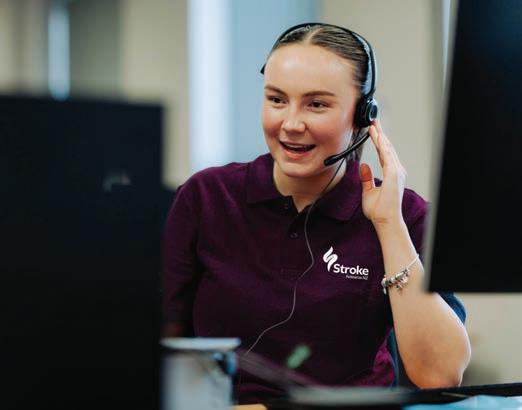
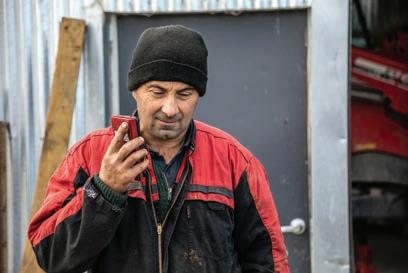
The Northland Disabled Charitable Trust is a non- profit organisation and has been operating the Forget Me Not Adult Day Centre in Tikipunga, Whangarei since 1994. The Centre is a day care service and is available to adults of all ages including those who are young with disabilities, the elderly and frail, those with memory loss, head injuries and/ or other disabilities.
The Centre provides quality day care that enhances the welfare not only of the clients but also of the carers and families who look after their loved ones at home on a 24 hour a day basis.
The Centre has capacity for 40 client visits per day. The Staff are qualified in their respective fields, and are experienced and
caring. Entry criteria is based on you visiting and having a look around to decide if you would like to attend.
There is no huge protocols for attendance other than enjoying and benefiting from attending.
The programme is structured with a variety of activities that provide motivation, education, rehabilitation and fun.
A cooked lunch is provided daily for clients and ‘take home’ meals service is available for clients who require an evening meal. Clients are transported to and from the Centre by the Trust vans.
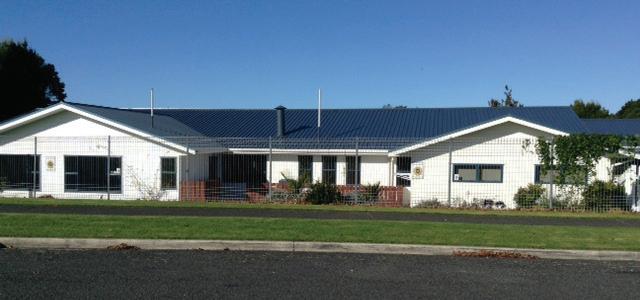


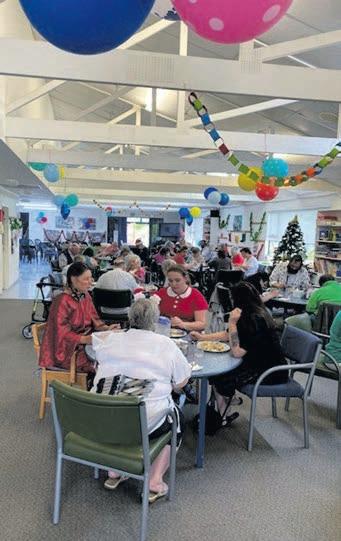
Forget Me Not 110 Boundary Road, Tikipunga WHANGAREI 0112
Phone: 09 4371144 manager@forgetmenot.org.nz www.adultdaycentre.co.nz
To achieve the best quality service to our community the Trust relies heavily on philanthropic funding and sponsorship to keep the service sustainable. At Tikipunga we specialize in all mechanical repairs including; transmissions & general services, WOF, brake and clutch repairs as well as tires. We have the latest technology and diagnostic equipment to diagnose problems in all Japanese and European cars. Come in and see our friendly staff at Tikipunga Automotive today. Here at Tikipunga Automotive, we are dedicated to treating our customers with honesty, respect, and professionalism. We hope that you find what you’re looking for on our website, but please don’t hesitate to contact us, should you require more information, or to book your car in.
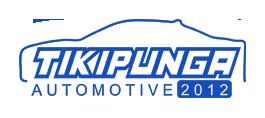

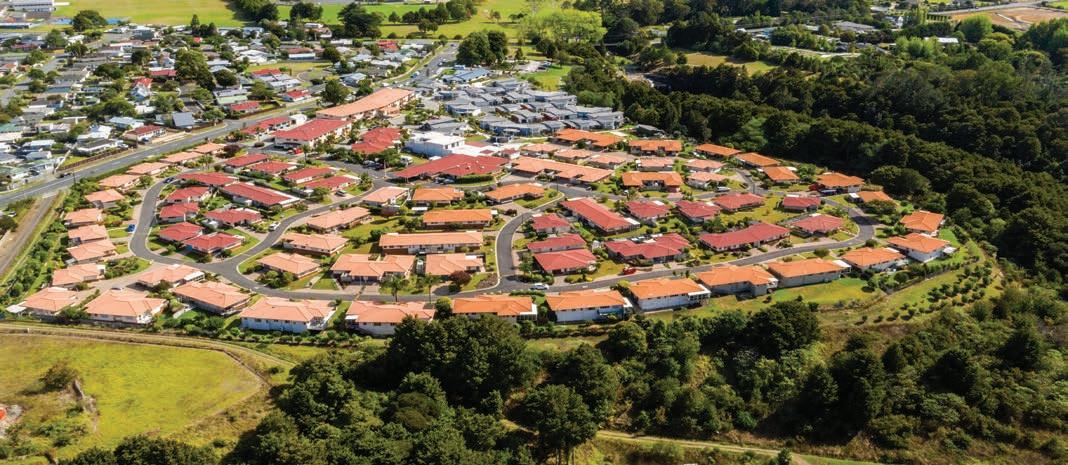
At The Falls Estate, retirement is not about slowing down - it’s about embracing life fully.
Experience the epitome of community living at The Falls Estate Lifestyle Village, where every day is a celebration of vibrant connections and boundless activities. Discover our range of apartments and villas, tailored to your unique needs.
Why wait? Start your new journey with us today, where the entry age is just 65!
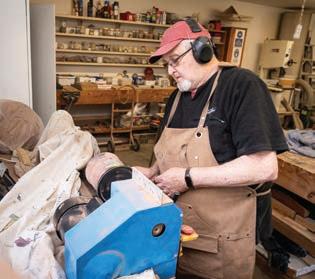
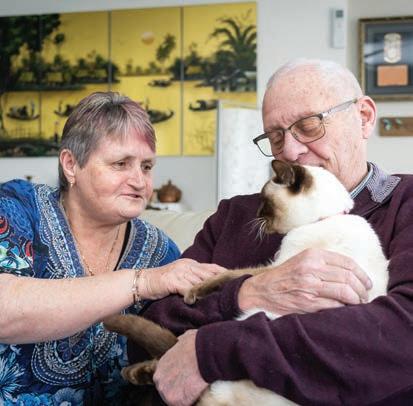
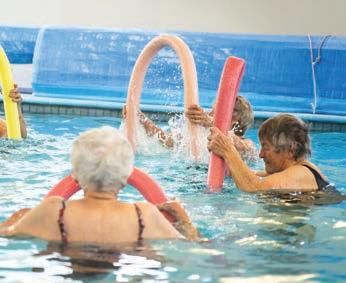
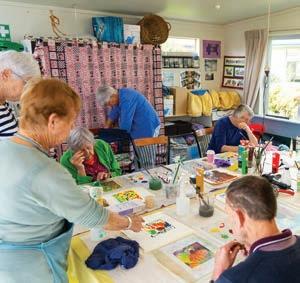
94 Boundary Road Tikipunga, Whangarei 09 437 5844
www.fallsestate.co.nz
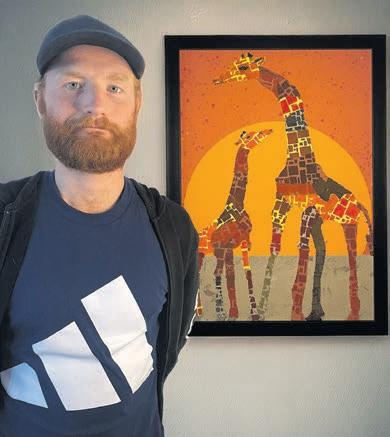
Animals are a favourite subject among our Papermakers, and this theme resonates strongly with them. Abstract art is particularly well-suited to our team, as it allows freedom of expression without the pressure of achieving realism— something that can often lead to unhelpful comparisons with external artists. Abstract art encourages thinking beyond traditional boundaries, which opens up exciting creative possibilities.
To lay the foundation, we’ve been exploring the work of a wide range of abstract artists—from celebrated New Zealand creatives like Robyn Kahukiwa, Rita Angus, and Sofia Minson, to international icons such as Andy Warhol and Pablo Picasso. We’ve also been inspired by the extraordinary work of the late American fibre sculptor Judith Scott, an artist with Down syndrome whose intricate and powerful sculptures challenge perceptions of disability and celebrate creativity without limits. Through these diverse influences, the Papermakers have been developing their own unique interpretations.
In the first half of the year, the theme has inspired individual entries into the annual IHC Art Awards, and we’re eagerly awaiting the results to see if anyone has made it into the Top 30. Looking ahead, the second half of the year will be focused on creating 3D abstract animal sculptures for our annual exhibition in October. To support this sculptural work, we’ve been busy in the papermaking studio crafting specially blended fibre papers— designed to be flexible, durable, and easy to mould—perfect for bringing abstract animal forms to life.
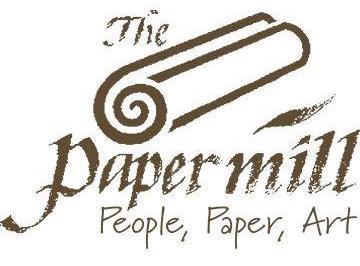
Founded in 1989 by Rhonda RutherfordDunn, The Papermill has long been a sanctuary for artistic expression and personal growth for individuals with intellectual disabilities. Rhonda’s innovative vision established papermaking as a therapeutic medium, empowering participants to build self-esteem and confidence. Today, over 35 years later, The Papermill continues to thrive, fostering a nurturing environment where creativity flourishes, and artwork comes to life.
The Papermill operates as a unique creative space and a small business, following a structured and routine-based philosophy. This approach fosters a strong team environment where everyone’s contribution is valued and each individual’s uniqueness is celebrated. The Papermill’s tag line ‘People, Paper, Art’ perfectly encapsulates priorities.
Visitors to The Papermill can purchase paper, stationery, and paper art, tour the studios, and interact with the artists at work. Papermaking workshops are available on demand, and group visit bookings are recommended.

ith the power to sit, stand, or fully recline effortlessly at the touch of a button, our lift chairs offer unmatched comfort in every position - making life more comfortable for you and your loved ones. They are the perfect choice for those that need a little mobility assistance, as they securely assist you from a seated to standing position.
Choosing the Perfect Fit for You
• Size: We offer small, medium, and large sizes, each with generous seat width.
• Functionality: Do you want features like independent back recline, battery backup, adjustable headrest, lumbar support, massage, heat, zero gravity recline, illuminated buttons, or hand controls with the toggle on the reverse side if you have dexterity and strength issues.
• Health & Wellness add-ons: We offer hospital and high base addons for selected chairs, long handle
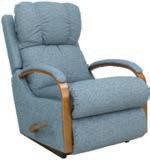
customisation for extra mobility support and a high-performance vinyl covering that is stain and moisture repellent.
• Model: Our lift chairs are offered as bronze, platinum, platinum+ and luxury models – each offering unique functionalities.
thatisstainandmoisture-repellent.
Withthepowertosit,stand,orfullyrecline
effortlesslyatthetouchofabutton,La-Z-Boylift chairsofferunmatchedcomfortineverypositionmakinglifemorecomfortableforyouandyourloved ones.Theyaretheperfectchoiceforthosethat needalittlemobilityassistance,astheyallowyou tocomfortablysit,relaxandrecline,thensecurely assistyoufromaseatedtostandingposition
ChoosingthePerfectFitforYou
•Size:Weoffersmall,medium,andlargesizes, eachwithagenerousseatwidth.
•Functionality:Choosefromfeatureslike independentbackrecline,zerogravity position,batterybackup,adjustableheadrest, lumbarsupport,massage,heat,illuminated buttons,orhandcontrolswithatoggleon thereversesideforthosewithdexterityand strengthissues.
•Model:OurliftchairscomeinBronze, Platinum,Platinum+,andLuxurymodels, eachofferinguniquefunctionalities.
La-Z-Boy offers a wide selection of quality lift chairs across our Bronze, Nordic, Platinum, and Platinum+ ranges— designed to suit every need, lifestyle, and budget. Available in plush leather or fabric upholstery, many models include comfort features like supportive headrests, backrests, heat, and massage. We also offer 2, 2.5, and 3 seater sofas, ideal for families seeking both style and comfort.
•Health&WellnessAdd-Ons:Weoffera hospitalbaseadd-onforselectedchairs, providingadditionalmobilitysupport,andan engineeredhigh-performancevinylcovering
UsingYourLiftChair Enjoyyourindividuallysuited,custom-made,and patentedliftchairatthetouchofabutton.Our quality-madereclinerliftarmchairs notonlylookandfeelspectacularbut arealsobuilttolastandeffortlessto operate.
Experiencethepowerliftwithzerogravitypositioninginourliftchair range.Benefitfromhandcontrols orilluminatedremotecontrolsfor visibilityinanylight,power-adjustable headrests,andbacksupport,along withlockablewheelsandafully enclosedmechanism—evenin maximumreclinemode.
WhyChooseLa-Z-Boy?
Withover95yearsofexpertiseasthe world’snumber1reclinerinventor, weofferacomprehensiveselection ofqualityliftchairdesigns,functions, andsizesacrossourBronze,Nordic, Platinum,andPlatinumPlusranges. Theyaredesignedtocatertoevery need,lifestyle,andbudget.
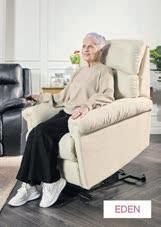
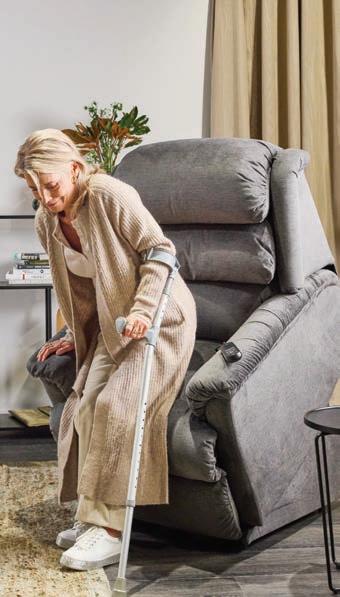






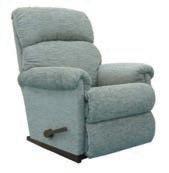






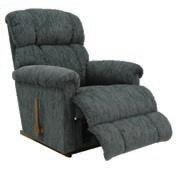
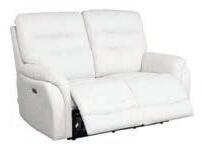
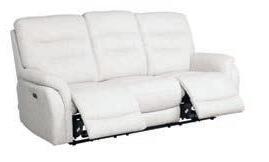

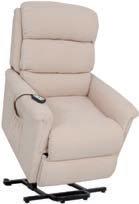

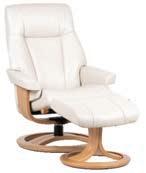
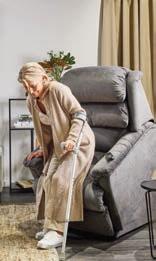
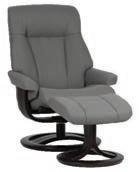
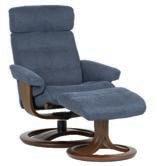
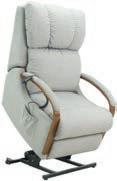
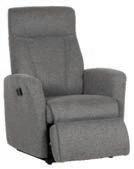
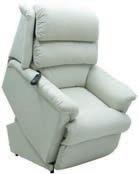
We all want a life that feels like our own. One where we make decisions, follow routines that work for us, and feel like we belong.
But for thousands of disabled New Zealanders, that kind of life isn’t always easy to access. Not because of who they are, but because of how systems, spaces, and attitudes get in the way.
That’s where we come in.
At Spectrum Care, we provide support that starts with the person. Whether that’s help at home, in the community, or with health and communication – it’s shaped by what matters to them.
We’re here to listen, to adapt, and to show up in ways that matter. To back identity. To back potential. And to do the mahi in a way that fits each person’s pace and priorities.
Because good support doesn’t assume. It asks.
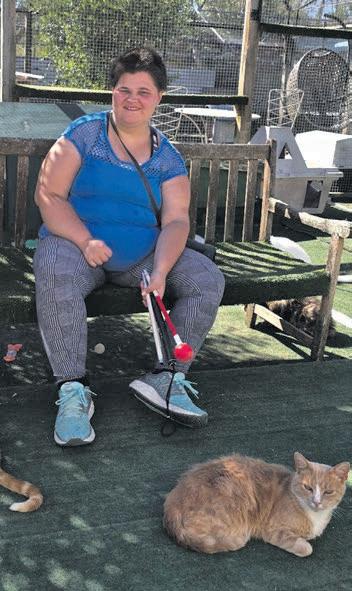
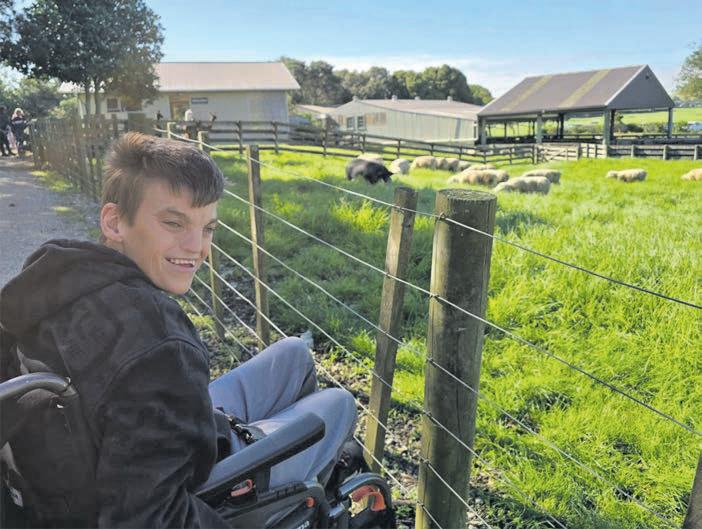

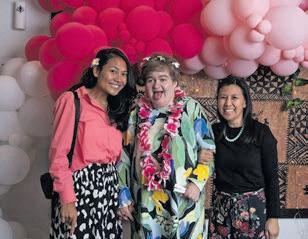
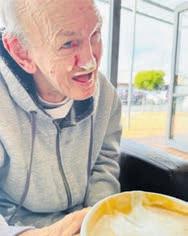
Our Vision
An Aotearoa in which all disabled people have equal opportunity to live good lives.
Our Purpose
To help maximise the potential of the people we support.
Our Values Mana taurite (Equity) – We treat everyone fairly Whakaute (Dignity) – We honour and respect each other Pae tawhiti (Ambition) – We dream big Ka ora (Sustainability) – We do what’s best Contact us today to find out
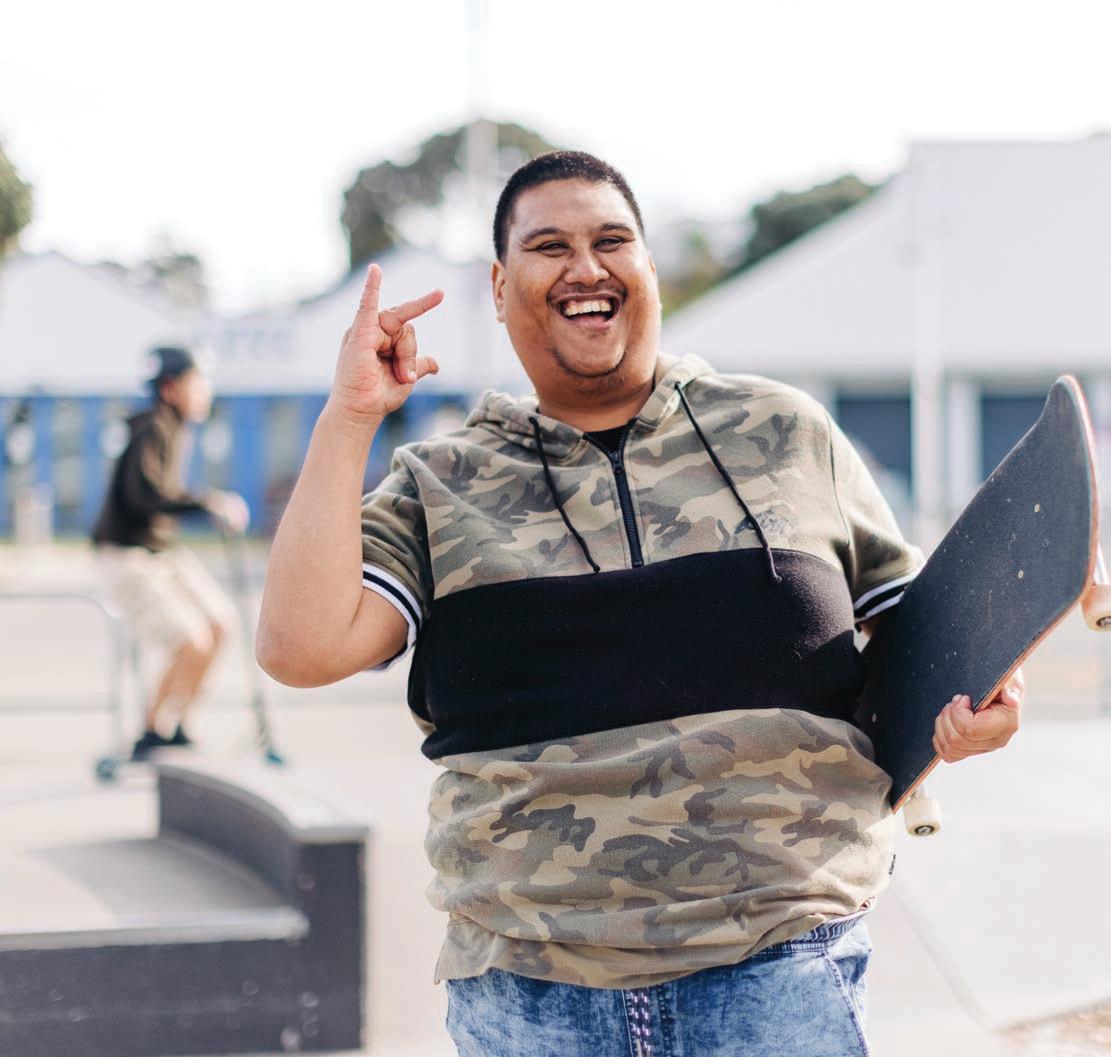
We offer a wide array of flexible support options in the Northland, Auckland, Waikato, Bay of Plenty and Wellington regions, which can be structured to suit each family’s unique needs.
Our aim is to ensure people have choice, control and flexibility in the supports they receive and have the opportunity to co-create their own support options. We also offer a navigator service 0508 NAVIG8 aimed at helping families new to disability support.
Contact us today to find out more spectrumcare.org.nz info@spectrumcare.org.nz 09 634 3790 | 0508 NAVIG8 (0508 628 448)
At tlc4u2, our mission “Together We Care” reflects our dedication to delivering compassionate, collaborative in-home care. We work closely with clients, whānau, and healthcare professionals to ensure every individual receives the highest standard of personalised support.
Proudly serving the Northland, Waikato, and Auckland regions, we offer a wide range of care services – from an hour a week right through to 24/7 support. Whether you are accessing our services privately or funded through ACC or Te Whatu Ora, our experienced team is here to help.
✓ Compassionate, Experienced Team
O ur highly trained support workers are not only skilled but truly passionate about making a difference in the lives of those we care for.
✓ Community-Focused
A s a local provider, we’re deeply committed to the wellbeing of

our communities. We actively promote adaptive opportunities and advocate for improved accessible services, facilities and spaces.
If you or a loved one are seeking in-home care delivered with genuine respect and understanding from a team that truly cares, we’re here to help. Get in touch with tlc4u2 today to learn more about our services or to schedule a personalised consultation.
Visit our website or call us now – let’s talk about how we can support you.
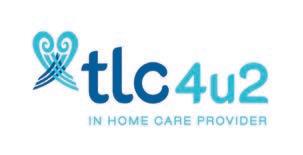
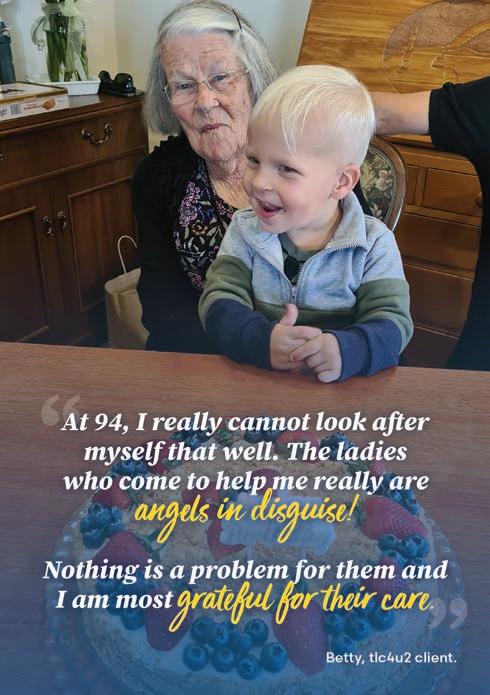
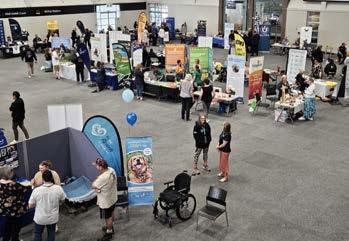
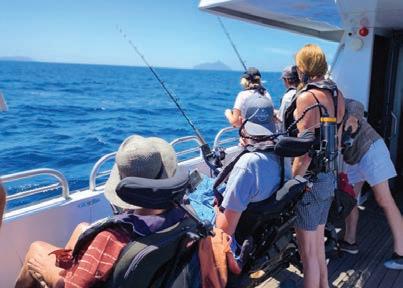
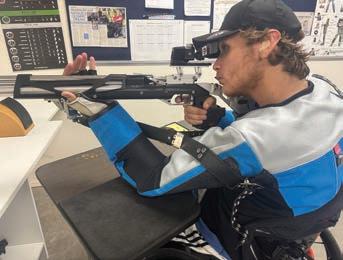
holiday home providing accessible accommodation and respite care
Located in the picturesque coastal suburb of Auckland, tlc4u2 Resorts Beachlands offers accessible holiday, short stay and/or temporary accommodation options in a modern, spacious and peaceful setting.
The Resort features ten fully accessible bedrooms, which provide our guests and their whānau with specific spaces that are tailored to meet the needs.
This ensures that guests have the flexibility to create the type of stay and level of support that works for them. We have qualified support staff who can assist you with all your individualised care needs, should that be required.
Whether you are needing a space to recover, accommodation while your housing modification is taking place or looking to have a weekend getaway. Resorts Beachlands can create a package to suit, including accessible transport on request.
Set in the serene environment of Beachlands, our Resort is just a stone’s throw away from beautiful Surrounding Amenities
seaside walkways and accessible ferry services to downtown Auckland.
The local area is bustling with cafes and restaurants, providing plenty of options for exploring.
Looking for a peaceful getaway that is fully accessible and can be tailored to you? Contact tlc4u2 Resorts Beachlands and discover how we can provide you with the ultimate accessible getaway. Visit our website or call us to arrange your stay.
tlc4u2 Resorts Beachlands – Where care meets comfort.

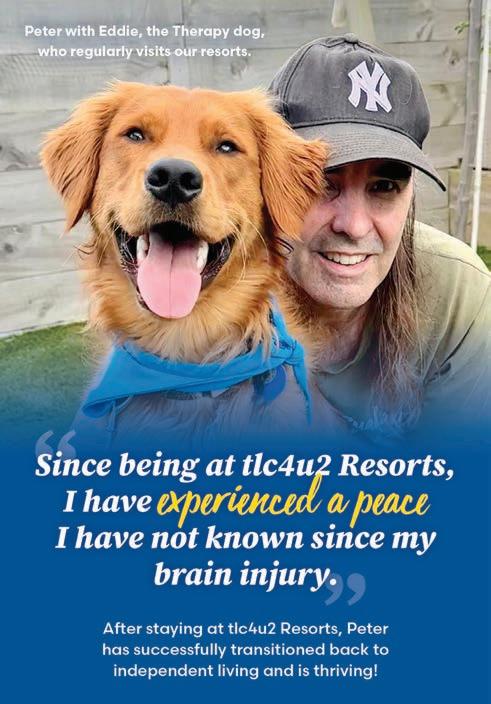
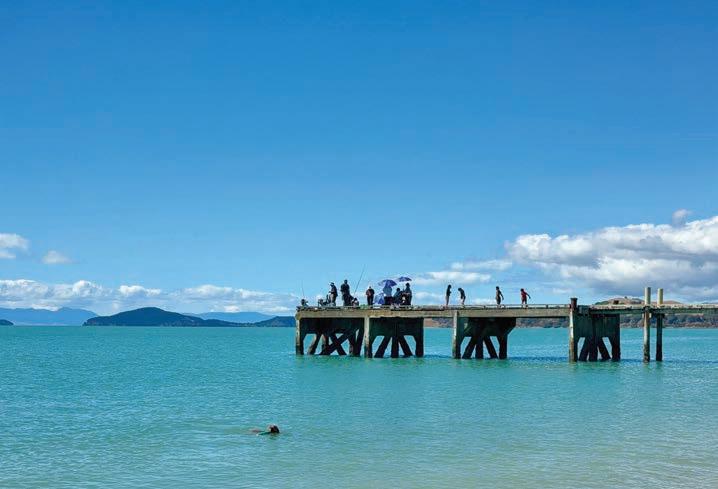
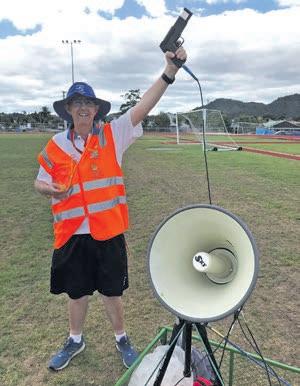
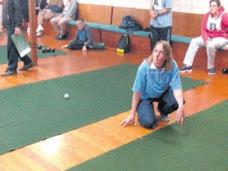
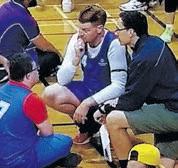
BSpecial Olympics is not just a multi sporting club, ( athletics, basketball, bocce, football, indoor bowls, swimming and tenpin bowling). We are committed to up-skilling our people, and provide chances for them to, not only socialise and to make decisions affecting our club, but grow in confidence to take on their world.

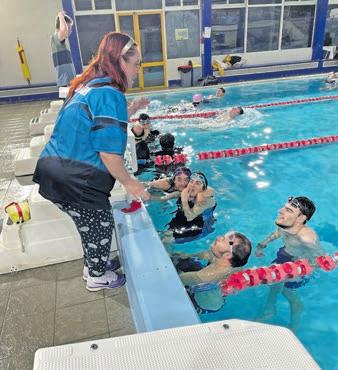
ack in 1933 Jerry Seigal and Joe Schuster created “Superman” a solo hero, to inspire the American People. Batman and Robin became the dynamic duo, Alexander Dumas wrote The Three Musketeers, and Enid Blyton stories featured The Famous Five and The Secret Seven.
However we in Whangarei Special Olympics have The Fantastic Five Dozen. Five dozen, 60 Special Olympians –athletes with an intellectual impairment of some kind, who meet together during the week for sporting recreational a social occasions.





The Fantastic Five Dozen, in Dargaville, and here in Whangarei, have a handful of willing volunteers who coach, and assist our people.
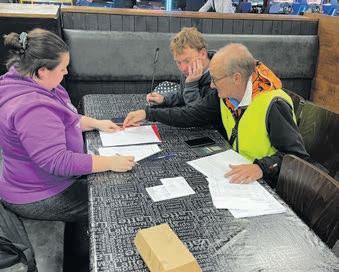
Sporting and recreation opportunities for persons with an Intellectual impairment
We are multisport athletics: equestrian, football, indoor bowls, swimming and tenpin bowling
Athletes from 8 to 80 years old
Developing self esteem — encouraging initiative
Activities developed by the athletes, for the athletes
Special Olympics Whangarei
For all enquires contact Martin Barrie Phone: 021 118 2422 – Like us on Facebook.
However, like every other voluntary organisation, we really could do with some assistance, so if you’re at a loose end, and have a couple of hours a week to spare …..?
Laird Club Coordinator Special Olympics Whangarei
Finally, like many other organisations we’re short of volunteers. If you like getting together with special people, come and join us: Phone: 021 118 2422
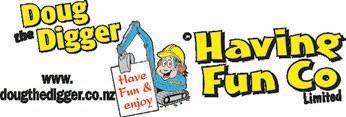


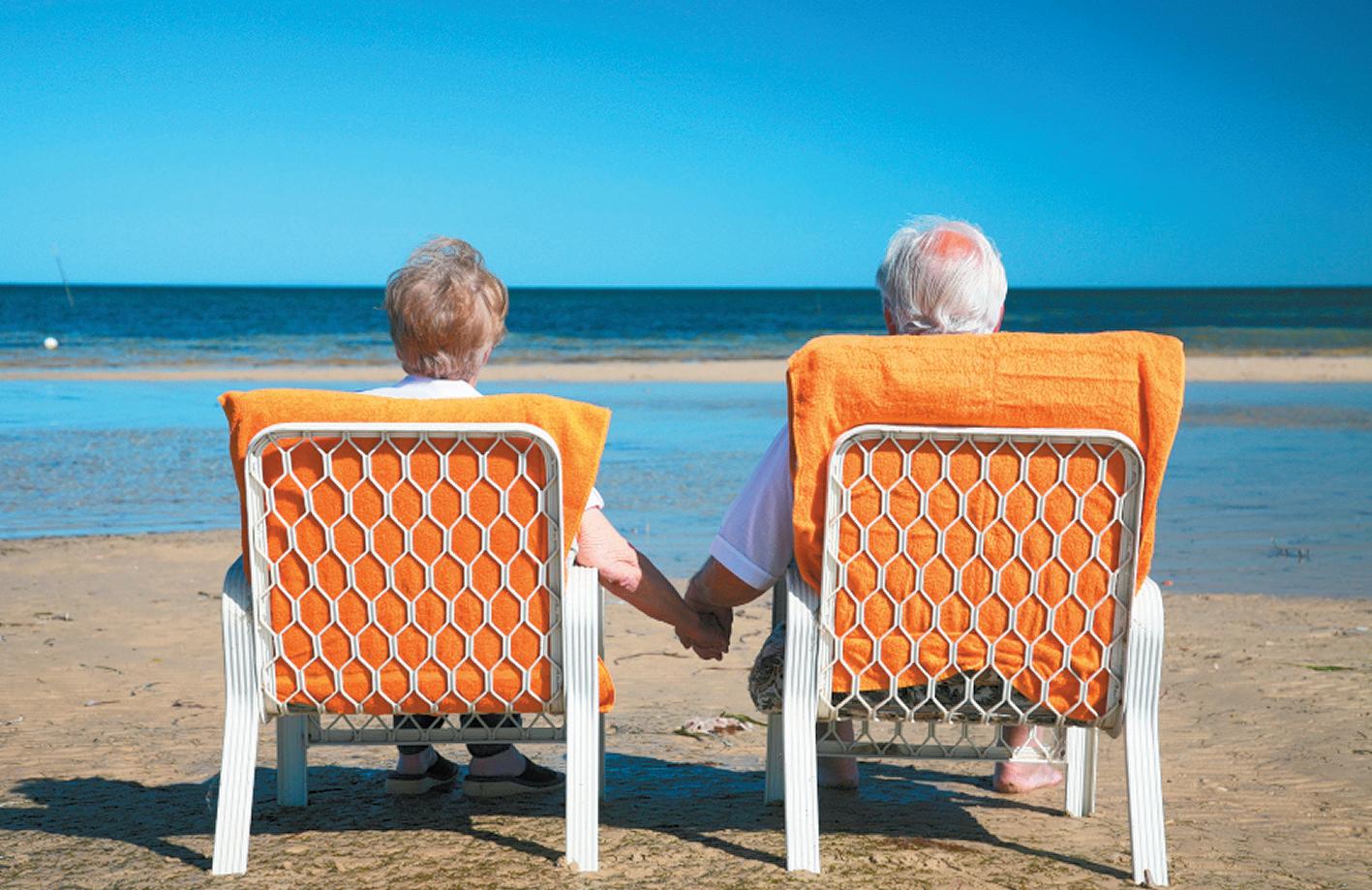
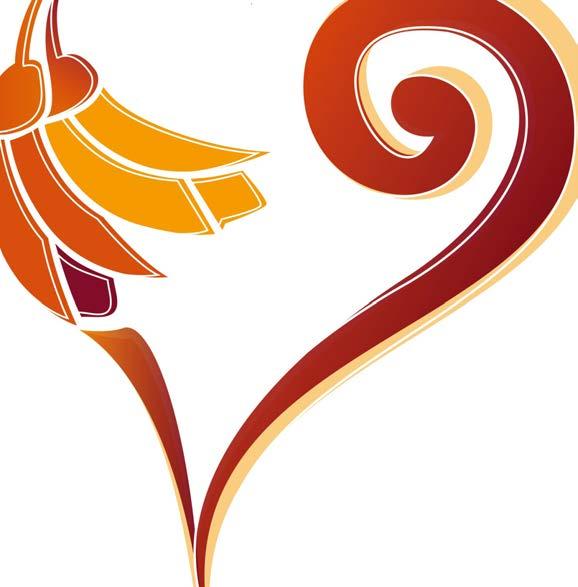

North Haven Hospice offers compassionate care when you have been diagnosed with a life-limiting condition or terminal illness, live in the Whangārei District or south-east Kaipara District and are not expected to live more than 12 months. No matter your age, condition or illness, we are here to wrap a cloak of care and support around you, your family and whānau.
Tailored to your needs, we put you in charge of your living. We encourage you to live every moment as you wish while we support your ability to do that, beyond just the management of physically complex symptoms.
If you think you or a family or whānau member may benefit from North Haven care, discuss our services with your GP or another health care professional, or you can self-refer online at www.northhavenhospice.org.nz.









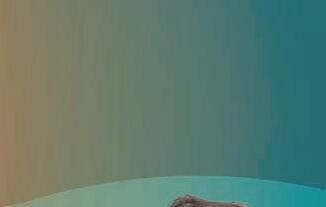















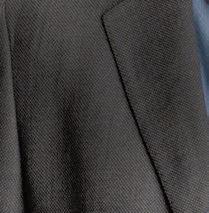






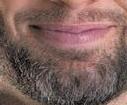










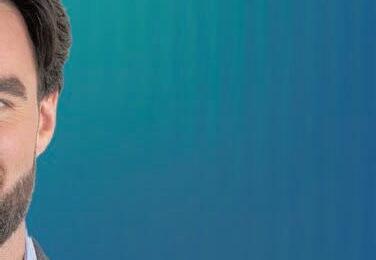















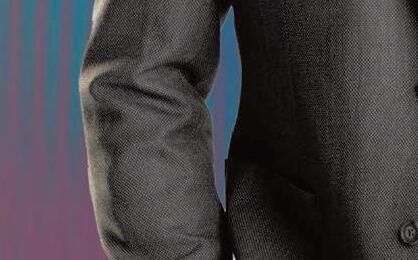



















“Volunteering
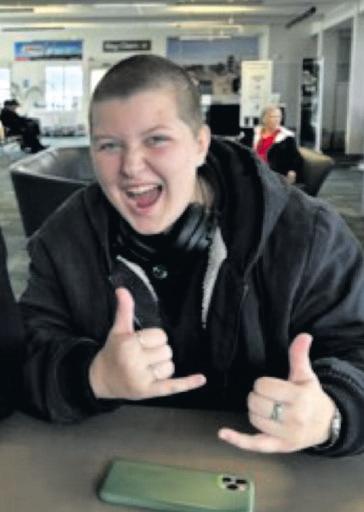
Cay Leggett, 18, born and raised in Whangārei, started volunteering in the community at a young age. Diagnosed with Autism Spectrum Disorder with 15, they found the busy and loud school environment challenging. Their volunteer engagement opened up new perspectives.
Cay started volunteering in the Volunteering Northland office, supporting the team with admin, outreach and design tasks. As one of the founding members of the Whangārei Youth Action Group (WYAG), they played a key role organising youthfocused events with hundreds of visitors. ‘I was drawn to the flexibility the role offered. Due to my disability, my energy levels are hard to control, and it’s important to be able to take time out when needed. I was also very anxious when I started, and the role allowed me to develop my people skills. Now, interacting with customers is one of the favourite parts of my work.’

Engaged Engaged communities communities connected through connected through volunteering volunteering
When they moved to Te Whanganui-aTara, Wellington, they continued their social mission of connecting young volunteers with volunteer roles for Volunteering Wellington’s Youth Impact Group. ‘We went into high schools and talked to students about volunteering. I remember a group of girls who were really interested in helping out, and it was great to be able to make that connection for them. I felt like being part of a beautiful community pyramid scheme.’
As a neurodivergent person, Cay is looking for roles that offer clear communication and flexibility, as well as meaningful, creative tasks and a welcoming atmosphere. ‘I really recommend volunteering. It opens your eyes, and you realise there is actually a lot of good going on here that you can get involved in.’
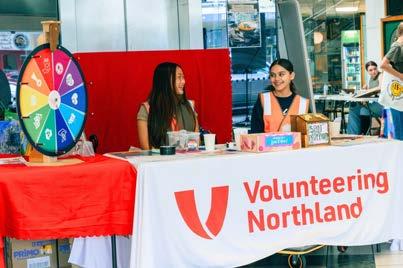


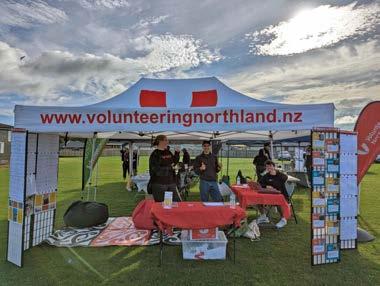
IDEA Services is New Zealand’s largest provider of services for people with intellectual disabilities and their families.
At IDEA Services we will support you to:
• Set goals and achieve them
• Have great experiences and take advantage of opportunities
• Have as much independence as possible balanced with the right support
• Make meaningful connections with others
• Live the life you want
Our Services
The specialist – and sometimes intensive – support we provide for people with intellectual disabilities (including roundthe-clock care) can include the following services:
Supported Living Through Supported Living we can support you to:
• Manage and learn new daily living skills, such as cooking, cleaning and managing money
• Meet new people and make friends
• Keep in touch with family and friends
• Join community activities (e.g. sports and art)
• Look for a job
• Access other community services, such as the doctors or Work and Income
Living with support – Residential
We provide support for people with intellectual disabilities who require a level of care and want to live in a supportive community.
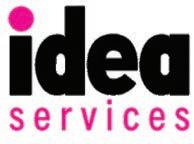
Support is based on what you need If you live with us you will:
• Have your own bedroom
• Live in a home you share with a few others
• Be encouraged to take part in the running of your home and make decisions with others about what happens there
Specialist Services Services for people in compulsory care
IDEA services support people with high and complex needs who have committed an offence.


Residential and Supported Living Services – Enabling Good Lives
Our Team provide support to more than 50 people who live in our community or wanting to transition from home.We also provide support to more than 120 people in 29 residential homes across Northland. Support Workers walk alongside people to plan and set goals, to enable a great life.
At IDEA Services we are all about People. Throughout Te Tai Tokerau we employ more than 230 people to work alongside people that need our support.
If you love people and supporting people to reach their potential, then you should consider working with IDEA Services. Our Support workers are well supported with training and development opportunities that lead to a formal qualification. Contact us on careers.ihc.org.nz

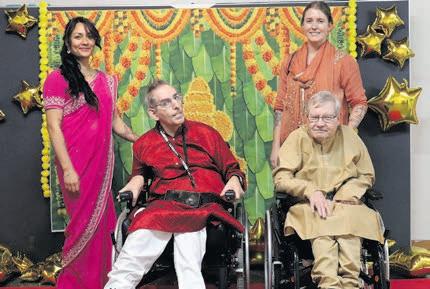
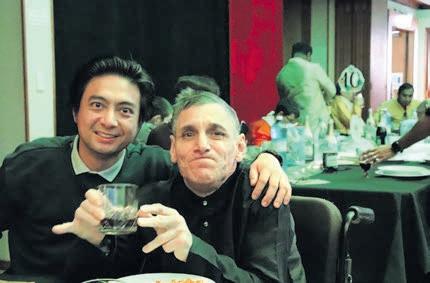
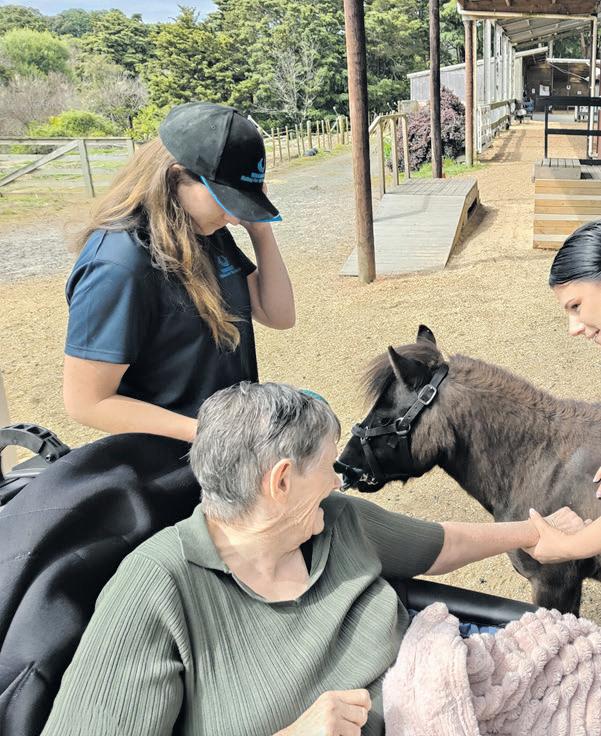
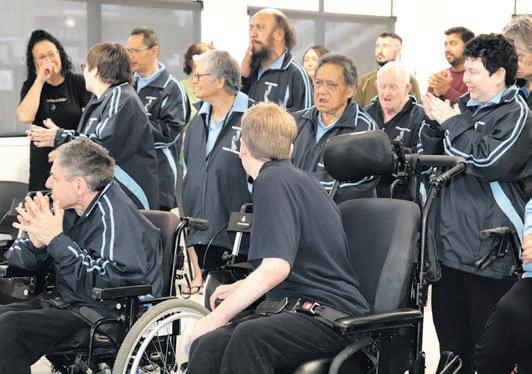


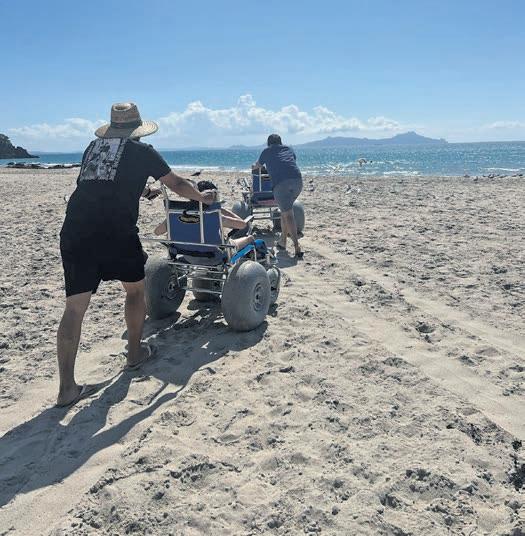
Life is extremely difficult for many young people. The Miriam Centre works with young people struggling with every life issue.
We support and work with each person to find solutions which are positive, less stressful and constructive for each young person & which will ensure their safety & that they can thrive.
Sometimes there are personal or family or school or peer issues which are distressing and absolutely too hard for them & are overwhelming.
Frequently we support young people with issues of anger, abuse, violence, intimidation and neglect and disempowerment, self harm & every other sign of their distress.
Frequently this labelled as a “mental health condition” when looked out & unpicked are all perfectly understandable behaviours that a result of something they are experiencing or living amongst.
The risk in this is that it is the young person becomes seen as ‘the problem’ when labelled with a ‘disorder’ whilst of course needing help & support to work through the presenting issues.

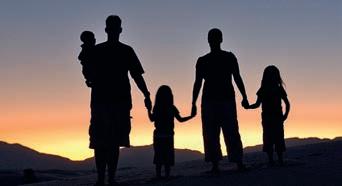
It is the underlying issues …the ‘what is behind’ their behaviours or presentations where the solution lies.
A label of ‘Oppositional Defiance Disorder’ is an obvious example where the label defines the young person as the ‘problem’ when it could just be that it is their courage to fight against the actual problem that is the root cause & holds the solution.
Youth is the growth period where oppositional defiance is absolutely appropriate.
What worries me is that soooo often we as professionals in the mental health field if we focus on the problem we miss what the young person is trying to fight against.
The young person unable to disclose about sexual abuse, other forms of violence, addiction etc within their families…
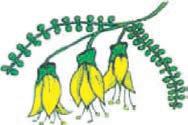
We really need to always come to each situation with a much more open mind….
“A what is going on here for this young person …What do these behaviours arise from…What are they trying to tell us or to want us to pick up” ?
The most vulnerable will not tell us,until they know they can trust us ….Sensibly so because frequently help doesn’t help ….we destroy.. quite unintentionally of course. The old adage I was taught many years ago ….
“I asked you for help- I didn’t ask you to destroy my whole family”.
For many of our young people but thankfully not all…. they are living with drug mis use, particularly meth, crime, violence & many in poverty in their ADULT family members.
Young people who may have been “rescued” removed to “safety” but left bereft, worried & about their siblings, Mum or whoever…..
Young people who are feeling desperately alone even when they are not living in destructive families….but particularly so when living within their families who are a real risk.

















We can all remember those years of our own lives where loneliness even within our warm wonderful whanau … even those young people need our time & wrap around care…
Some solutions young people see as their only option are terribly permanent & absolutely unnecessary.
“Help” can sometimes be unhelpful if we do not listen & work to empower our young people who frequently have no power & experienced by their adults & the system as difficult & the problem when in our experience the source of the young person’s despair is in the adult society & power of those who probably well meaningly impose their view of “best interests” in a structured mainstream way.
It is beholden on us as adults to look at the whole problem, the underlying as well as the immediate obviously reality & reasons & heal all of these….then & only then can we ensure long term positive change for all of us.
Our worry is that unless we do that our young people believe that their situation is insurmountable & risk destroying themselves.
It is up to us as adults to prove to all our rangatahi Maori & Non Maori there is always a way through.
Our multidisciplinary team of men and women, Maori and Non Maori specialist therapists wrap around the young person, their family or whanau, school or Kura &





our hapori , anyone & who ever are seeking our assistance. In order to ensure we work together our mahi must be in collaboration not a competition & empower everyone to identify, face & address the whole problem & to actually make a long term difference.
The Miriam Centre our team , Kaimahi are from the North & therefore across the whole of our rohe which is Te Taitokerau Northland.








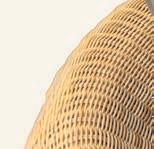




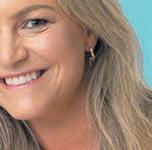
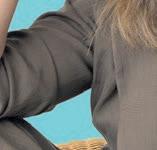

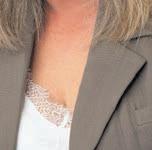

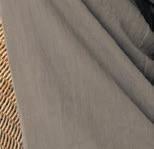







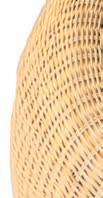



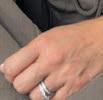












Tucked away in the heart of Whangārei, Kind Hands Respite Care Cottage is more than just a facility — it’s a lifeline for families navigating the challenges of raising medically fragile children or children with disabilities. Purpose-built with compassion at its core, Kind Hands offers a rare blend of early childhood education and 24/7 respite care, tailored specifically for tamariki under six who require complex medical support.
Kind Hands was born from a deeply personal journey. Founder Sharlene Clements, a seasoned nurse and mother, envisioned a place where children with high health needs could thrive in a nurturing, home-like environment. Inspired by her own experiences and her son’s gentle reminder to always use “kind hands,” Sharlene created a space where families could feel safe, supported, and somewhere that they feel included.
Both Kind Hands cottages are designed to feel just like that — a cottage. Warm, welcoming rooms, safe sleeping spaces, and a team of registered nurses, caregivers, and ECE-qualified teachers ensure that every child receives the care they need, whether they’re oxygendependent, technology-assisted, or undergoing a specific feeding regime.
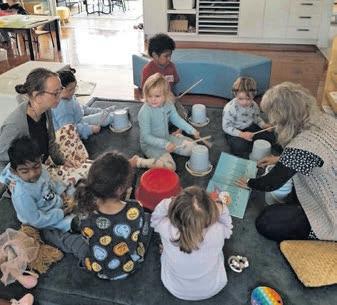
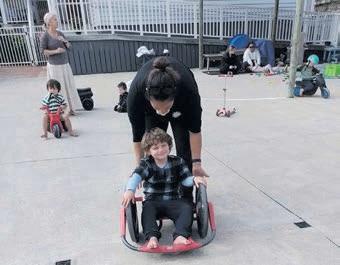
Kind Hands operates two core services:
• Early Childhood Education (ECE): Weekdays from 8:00am to 5:00pm, blending learning with medical care. Taking up to 22 children per day across both houses.
• Respite Care: Every second weekend from Friday 5:00pm to Monday 8:30am, giving families a muchneeded break. Up to 8 children can be cared for over each 24hr period.
Children at Kind Hands aren’t just cared for — they’re celebrated. The team supports a wide range of needs, from Down Syndrome and Autism to neuromuscular disorders and global developmental delays. Therapies like physiotherapy, occupational therapy, and speech-language sessions are woven into each child’s day, guided by individual care plans.
What sets Kind Hands apart is its low child-to-staff ratio, ensuring no child is overlooked. “We stay small so we can stay focused and provide great quality care that the kids deserve” says Sharlene. “Some of our kids are very unwell, and they deserve our full attention. It’s also very important to me that each child at Kind Hands gets to experience the same things as any other child – just because they might have a feeding tube doesn’t mean they can’t play in the sandpit!”
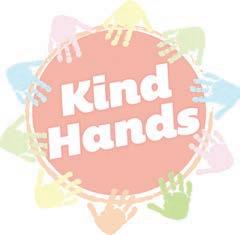
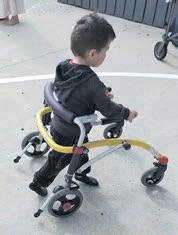

For many families across Northland, Kind Hands is a sanctuary — a place where they can exhale, knowing their child is in expert hands. It’s also a place where children learn, play, and form friendships in an environment that embraces their differences.
As Sharlene puts it, “At this age, children are beautifully accepting. They don’t see differences — they see playmates.”
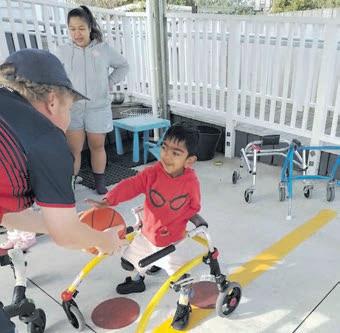
Respite Care Cottage
Address 19 Morningside Road, Morningside, Whāngarei, 0110
Email info@kindhands.co.nz
Phone 09 459 7383
Mobile 021 234 1294
Website kindhands.co.nz
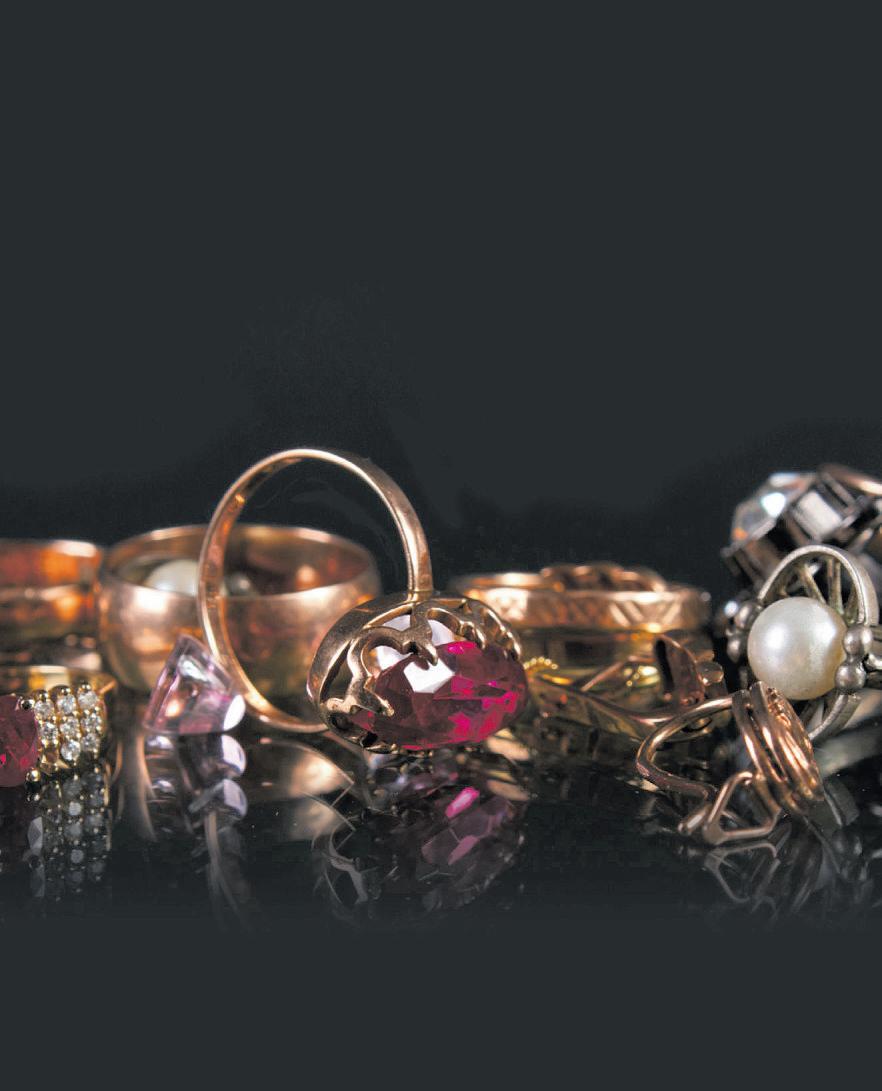
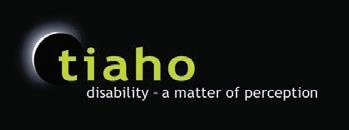


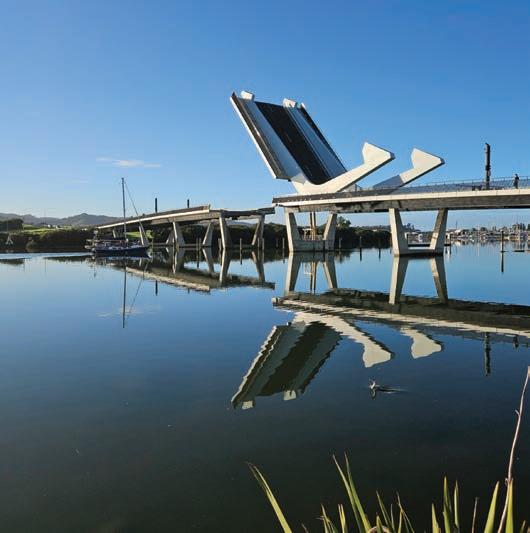

The cost of this service is $140 daily, but you are required to provide your own supports or carers.
The cost of this service is $140 daily, but you are required to provide your own supports or carers.
The cost of this service is $140 daily, but you are required to provide your own supports or carers.
Should you wish to share this facility with another friend, Caregiver and their client than there will be an additional $15 per person. This could be paid for through various sources, such as a person’s Individual Funding Allocations (IF), Very High Needs funding (VHN), or privately. If you don’t have IF, please discuss this with your local NASC.
Should you wish to share this facility with another friend, Caregiver and their client than there will be an additional $15 per person. This could be paid for through various sources, such as a person’s Individual Funding Allocations (IF), Very High Needs funding (VHN), or privately. If you don’t have IF, please discuss this with your local NASC.
Should you wish to share this facility with another friend, Caregiver and their client than there will be an additional $15 per person. This could be paid for through various sources, such as a person’s Individual Funding Allocations (IF), Very High Needs funding (VHN), or privately. If you don’t have IF, please discuss this with your local NASC.
PROPERTY FEATURES:
PROPERTY FEATURES:
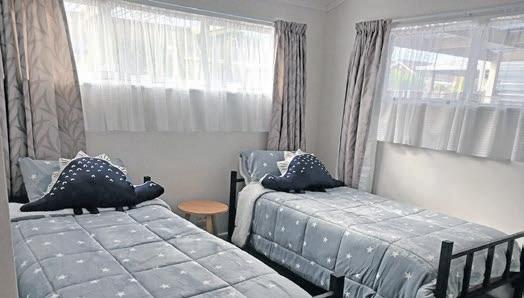
Tiaho Trust and Enabling Good Lives offer a fully accessible home available for shortterm respite care.
Fully accessible home.3 bedrooms with 4 beds.
Fully accessible home.3 bedrooms with 4 beds.
This is an opportunity to have respite care of your disabled family member with your Caregivers at an alternative accessible location.
2 bathrooms (one with a wet-area shower). Fully furnished with TV kitchenware, linen, washing machine, and dryer.
2 bathrooms (one with a wet-area shower).
Short-Term Use | Central Whangārei FOR BOOKINGS OR ENQUIRIES: respitehouse@tiaho.org.nz Text 021 2022 706 @
Tiaho Trust and Enabling Good Lives offer a fully accessible home available for shortterm respite care.
This is an opportunity to have respite care of your disabled family member with your Caregivers at an alternative accessible location.
Tiaho Trust and Enabling Good Lives offer a fully accessible home available for shortterm respite care.
Tiaho Trust and Enabling Good Lives offer a fully accessible home available for short-term respite care.
Fully furnished with TV kitchenware, linen, washing machine, and dryer.
Equipped with hospital bed, hoist (bring additional slings if you think appropriate), and shower/commode chair.
Equipped with hospital bed, hoist (bring additional slings if you think appropriate), and shower/commode chair.
This is an opportunity to have respite care of your disabled family member with your Caregivers at an alternative accessible location.
FOR BOOKINGS OR ENQUIRIES:
Text 021 2022 706 @
This is an opportunity to have respite care of your disabled family member with your Caregivers at an alternative accessible location.
respitehouse@tiaho.org.nz
FOR BOOKINGS OR ENQUIRIES: respitehouse@tiaho.org.nz Text 021 2022 706 @
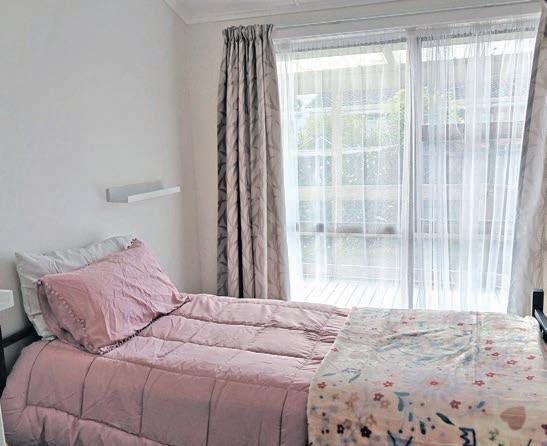

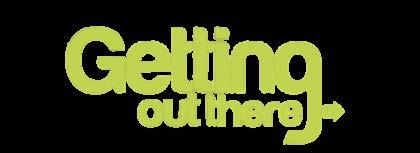
August 8, 2025 Forum North
Tai Tokerau’s premier accessibility and inclusion event
Empowering disabled people and seniors citizens From 9am until 4pm 60 stallholders
Smorgasbord of 50 + stalls Senior & Disability Suport
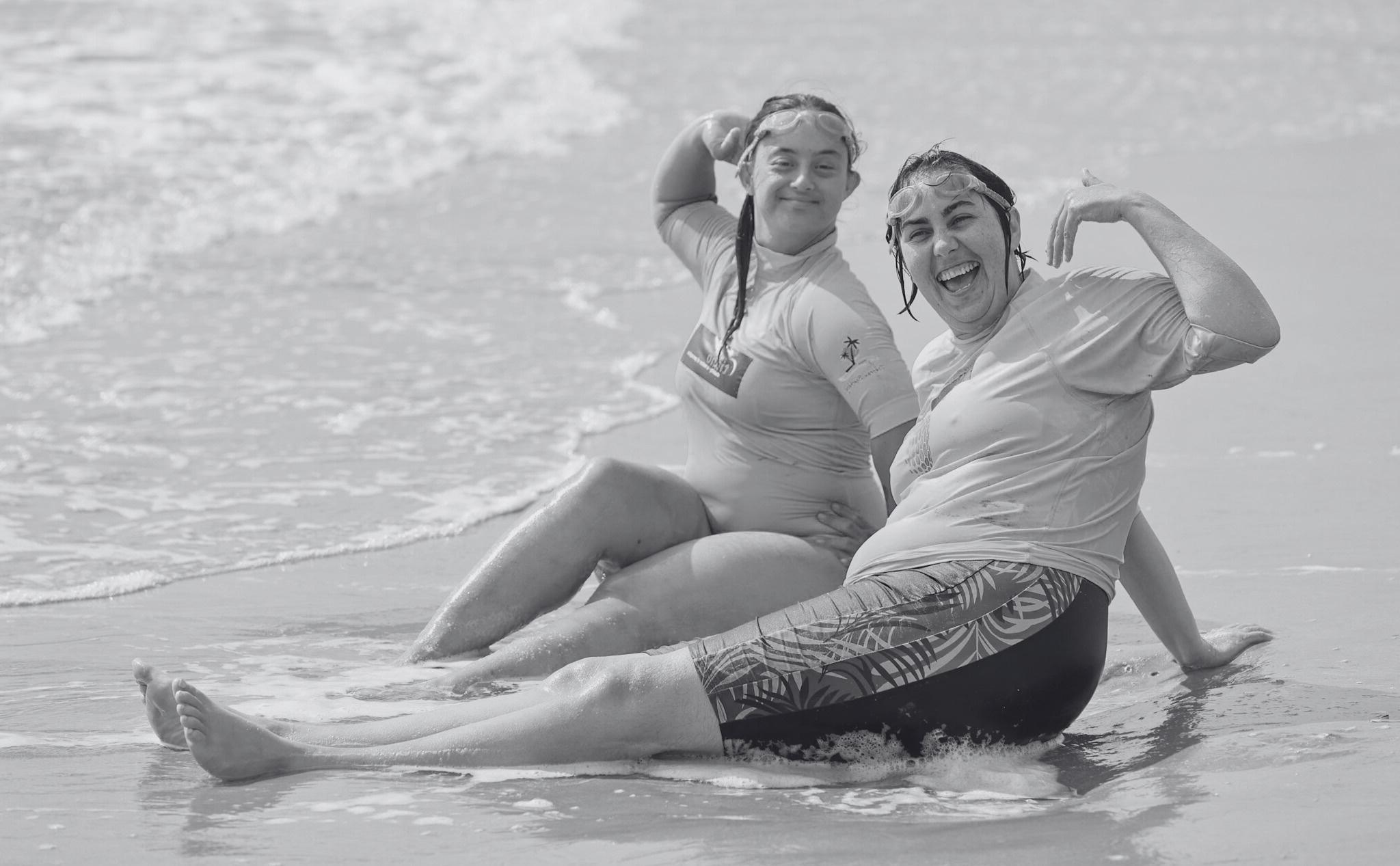

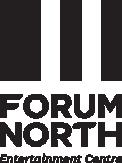
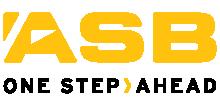
AUGUST 2025
1st -31st
Blind and Low Vision PAWGUST Walk or run to raise funds for NZ Guide Dogs www.blindlowvision.org.nz
8th Tiaho Trust Disability and Seniors EXPO www.tiaho.org.nz
30th Cancer Society Daffodil Day www.cancer.org.nz
SEPTEMBER 2025
1st - 30th World Alzheimer’s Month www.alzhiemersnorthland.org.nz
1st - 30th
1st - 30th
7th
14th
15th
15th -21st
Muscular Dystrophy Awareness www.mda.org.nz
Charcot Marie Tooth (CMT) Awareness Month (part of MDA)
Duchenne Muscular Dystrophy Awareness Day
Alzheimers Memory Walk –Whangarei -Sport Northland Event www.alzhiemersnorthland.org.nz
International Myotonic Dystrophy Day
Multiple Sclerosis Appeal Week www.msnz.org.nz
21st World Alzheimers Day www.alzheimers.org.nz
22nd – 28th
23rd
International Week of the Deaf www.deaf.org.nz
United Nations International Day of Sign Languages
30th Limb Girdle Muscular Dystrophy Awareness Day
OCTOBER 2025
1st - 31st Cerebral Palsy Awareness Month
2nd – 8th Arthritis Awareness Week www.arthritis.org.nz
1st Tiaho Trust/Age Concern Kaitaia Seniors Expo
10th World Mental Health Day www.mentalhealth.org.nz
12th World Arthritis Day www.arthritis.org.nz
10th World Sight Day
29th World Stroke Day www.stroke.org.nz
NOVEMBER 2025
Date to be announced Walk 2 D’Feet MND www.mnda.org.nz
Date to be announced Scoot the Loop for MS www.msnz.org.nz
23rd Northland MS Society AGM www.msnz.org.nz
DECEMBER 2025
Date to be announced International Day of People with Disabilities - Tiaho Trust celebration (to be confirmed)
10th World Human Rights Day www.amnesty.org.nz
JANUARY 2026
4th World Braille Day www.blindlowvision.org.nz
FEBRUARY 2026
1st – 28th Heart Awareness Month
9th Annual International Epilepsy Day www.epilepsy.org
Date to be announced Ruakaka Surf Day www.tiaho.org.nz
28th Rare Disease Day
MARCH 2026
1st – 31st Neurological Brain Awareness Month
1st – 31st Brain Injury Awareness Month www.brain-injury.org.nz
1st – 31st Hearing Awareness Month
21st World Down Syndrome Awareness Day www.nzdsa.org.nz
End of March
Blind Foundation Guide Dog Red Puppy Appeal
26th Epilepsy Awareness “Purple Day” www.purpleday.org
APRIL 2026
2nd World Autism Awareness Day www.autismnz.org.nz
6th Anniversary of NZ Sign Language Act 2006
11th World Parkinson’s Day www.parkinsons.org.nz
MAY 2026
1st May – 31st May Stroke Awareness Month www.stroke.org.nz
4th – 10th NZ Sign Language Week
1st - 31st Huntington’s Awareness Month www.hdauckland.org.nz
10th World Lupus Day
30th World Multiple Sclerosis Awareness Day www.worldmsday.org
JUNE 2026
1st - 30th Heart Kids Month
1st -30th MND Awareness Month www.mnda.org.nz
1st -30th Aphasia Awareness Month
20th FSH Dystrophy Day
21st Global ALS/MND Awareness day www.mnda.org.nz
Parkinson’s Northland SUPPORT GROUPS
Kerikeri- monthly
Kaitaia – monthly
Whangarei – 1st Friday monthly
Dargaville – 1st Thursday
Waipu – 3rd Friday monthly And monthly Carer Support Groups in Whangarei.
Weekly Exercise Groups: Walking, Singing/voice training, Hydrotherapy, Movement for PD Whangarei. Fortnightly Ping-Pong Whangarei. Counterpunch (Whangarei and Kerikeri) Weekly Swim Exercise Group (Kerikeri)
Alzheimer’s Northland Support Groups
Whangarei – 1st Wednesday of the month (1.30- 3.00) And 2nd Thursday of the month (10am-11.30)
Onerahi – 1st Tuesday of the month (10am-11.30)
Kerikeri – 3rd Wednesday of the month (10am-11.30)
Kaitaia – 2nd Wednesday of the month (10am-12)
Mangawhai - 2nd Wednesday of the month (11am-12.30)
Dargaville – 2nd Wednesday of the month (10am-11.30)
Bream Bay – 1st Wednesday of the month (10am-11.30)
Paihia – 2nd Thursday (10am -11.30)
(other areas and groups please contact Alzheimers direct)
Arthritis 20+ Northland Support Groups
Whangarei – 1st Saturday of the month
Hydrotherapy at the Aquatic Centre Wednesdays
Contact Els – 022 6466 405
Brain Injury Association Northland SUPPORT GROUPS
Kerikeri – 1st Thursday monthly
Dargaville – 2nd Thursday monthly
Kaitaia – 3rd Thursday monthly
Whangarei – The last Thursday monthly
Epilepsy Northland
Whangarei- Every second Tuesday 10am-12.30 Civic Arcade
Down Syndrome Support Group
PlayGym at WAGS 10.45 to 11.45 am every 3rd Sunday
GreatM8’s mixed disability social group fortnightly 5.30 -7pm
Stroke Foundation Northland Support Groups
Whangarei – Every Tuesday Hydrotherapy Classes
Every 3rd Wednesday Stroke Club
Young Stroke Survivors Group
Dargaville – 1st Monday of the month Stroke Survivors
Kaitaia – Every Friday Art Therapy
Every Thursday Chat Group
Multiple Sclerosis Northland Support Group
Whangarei – First Thursday of the month
Mid North/Kerikeri – Fourth Thursday of the month
